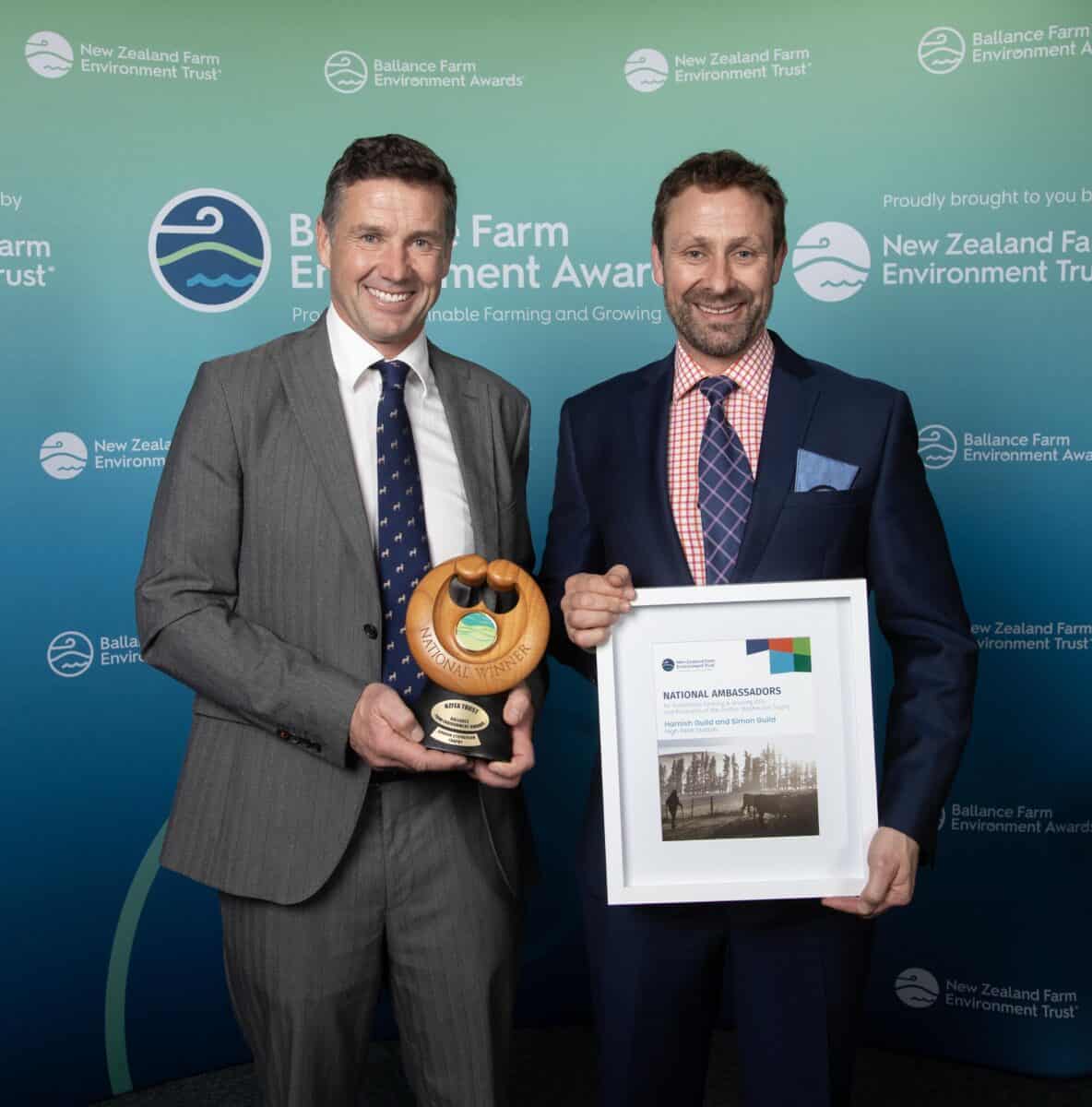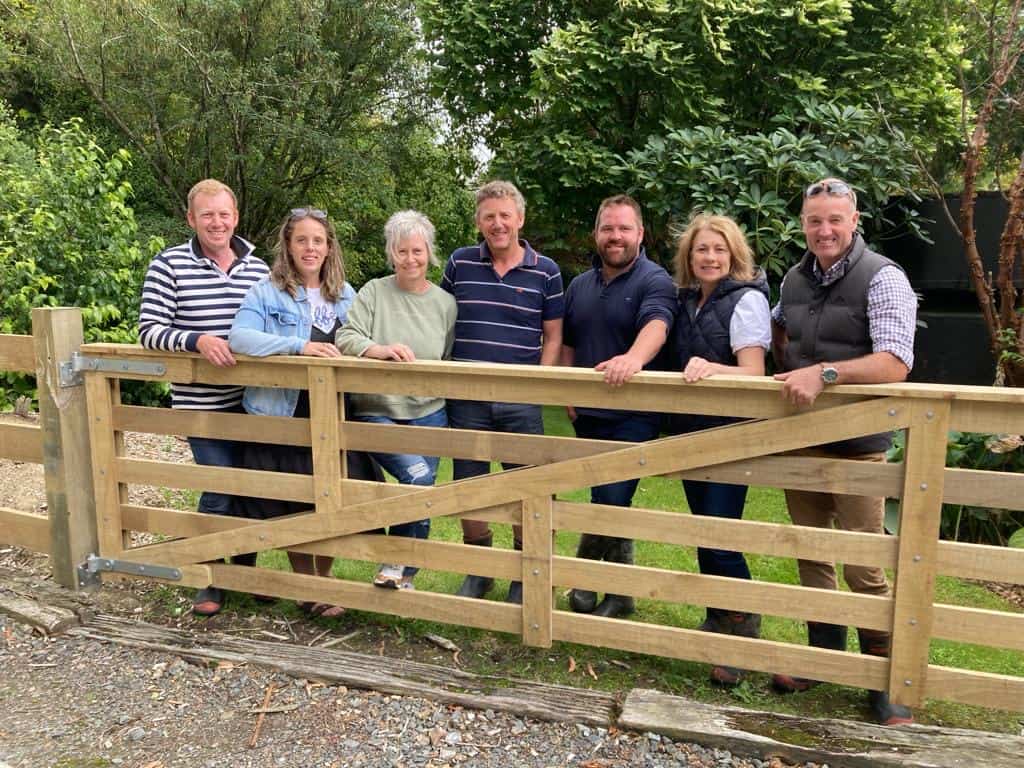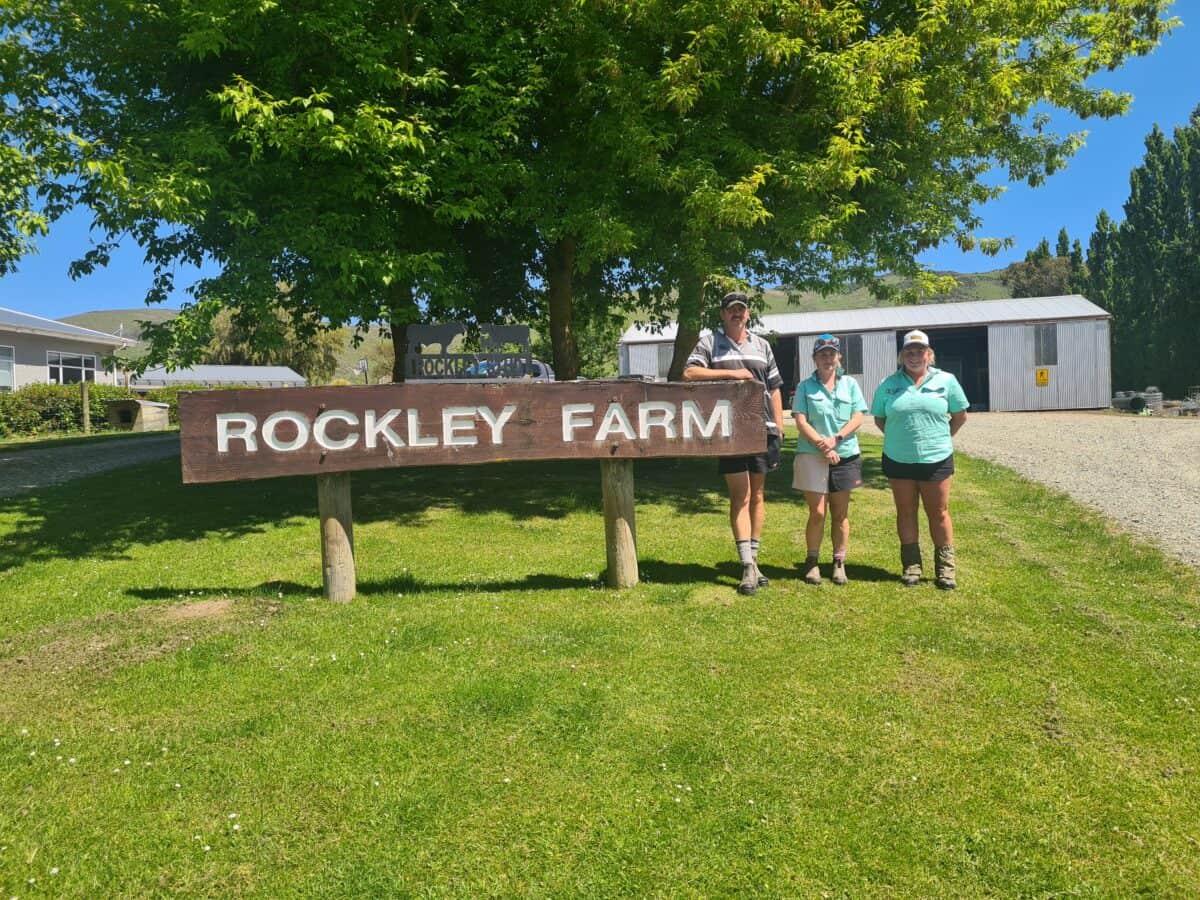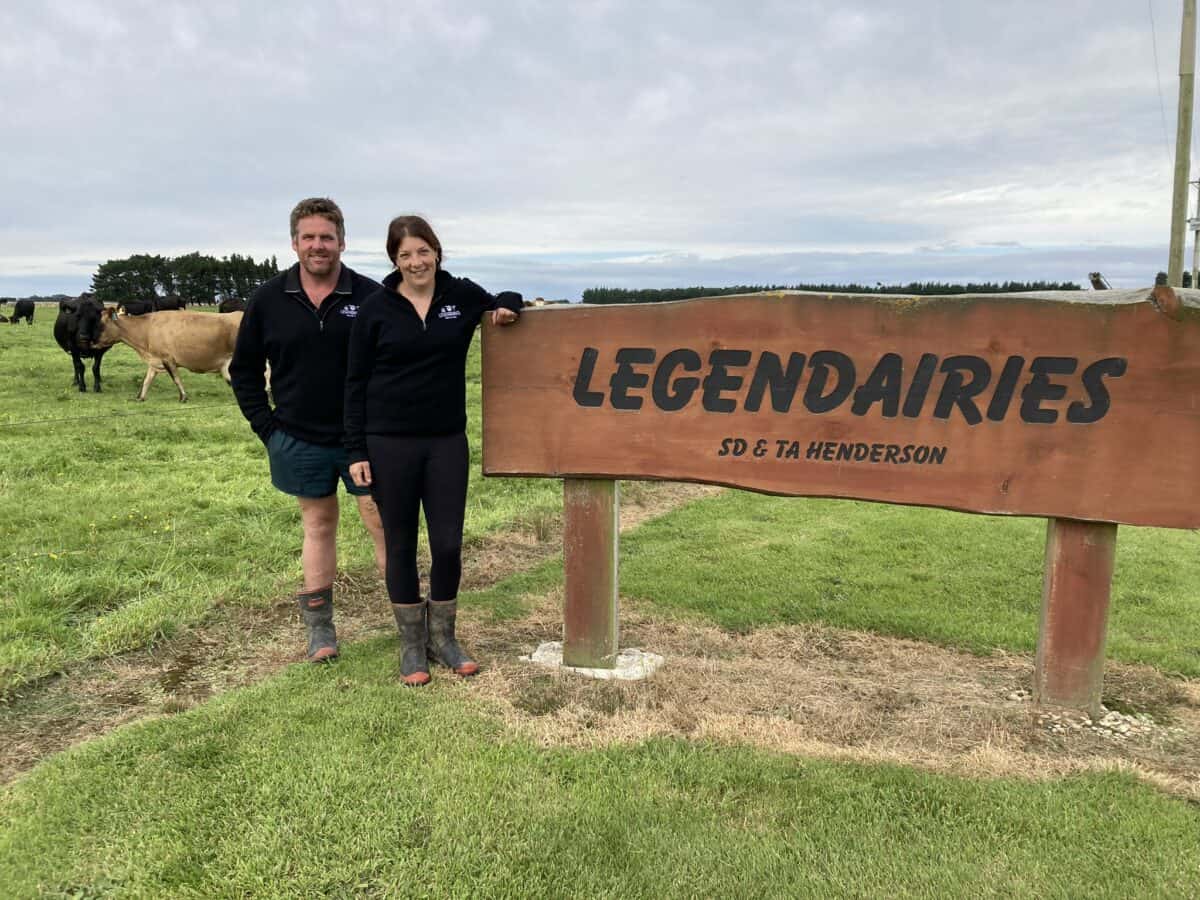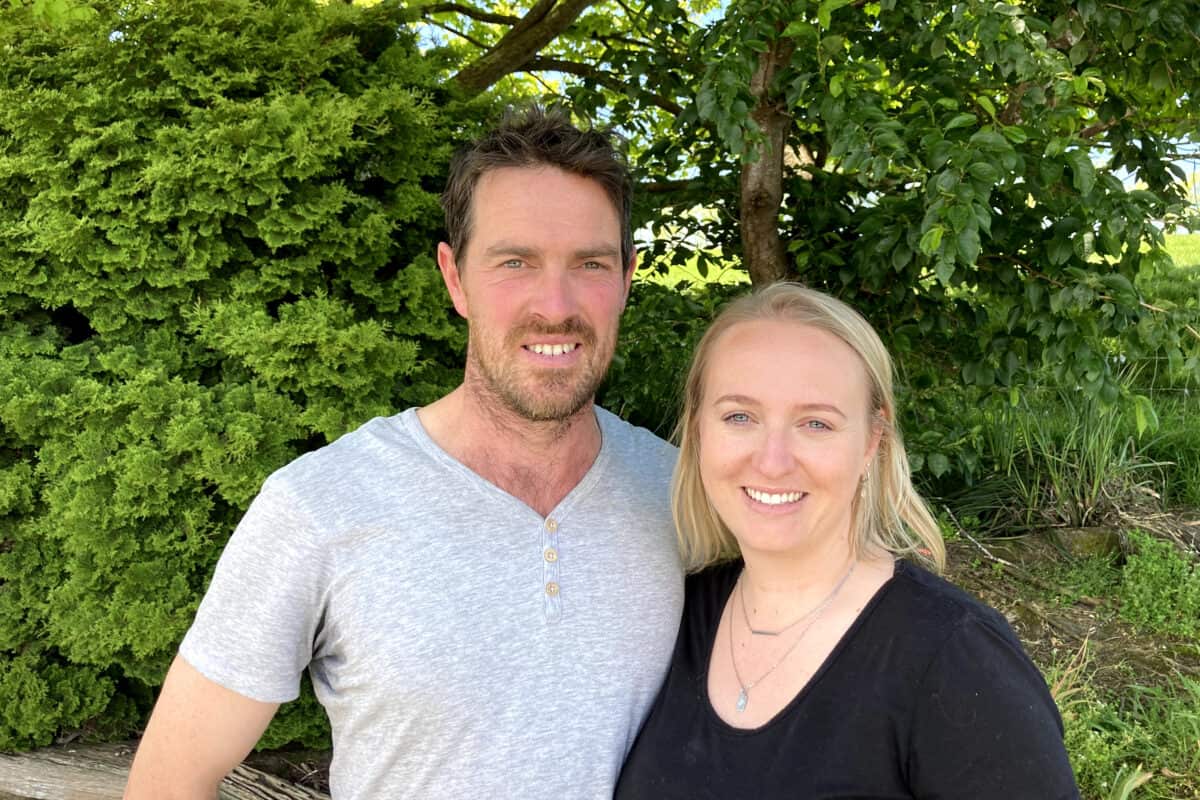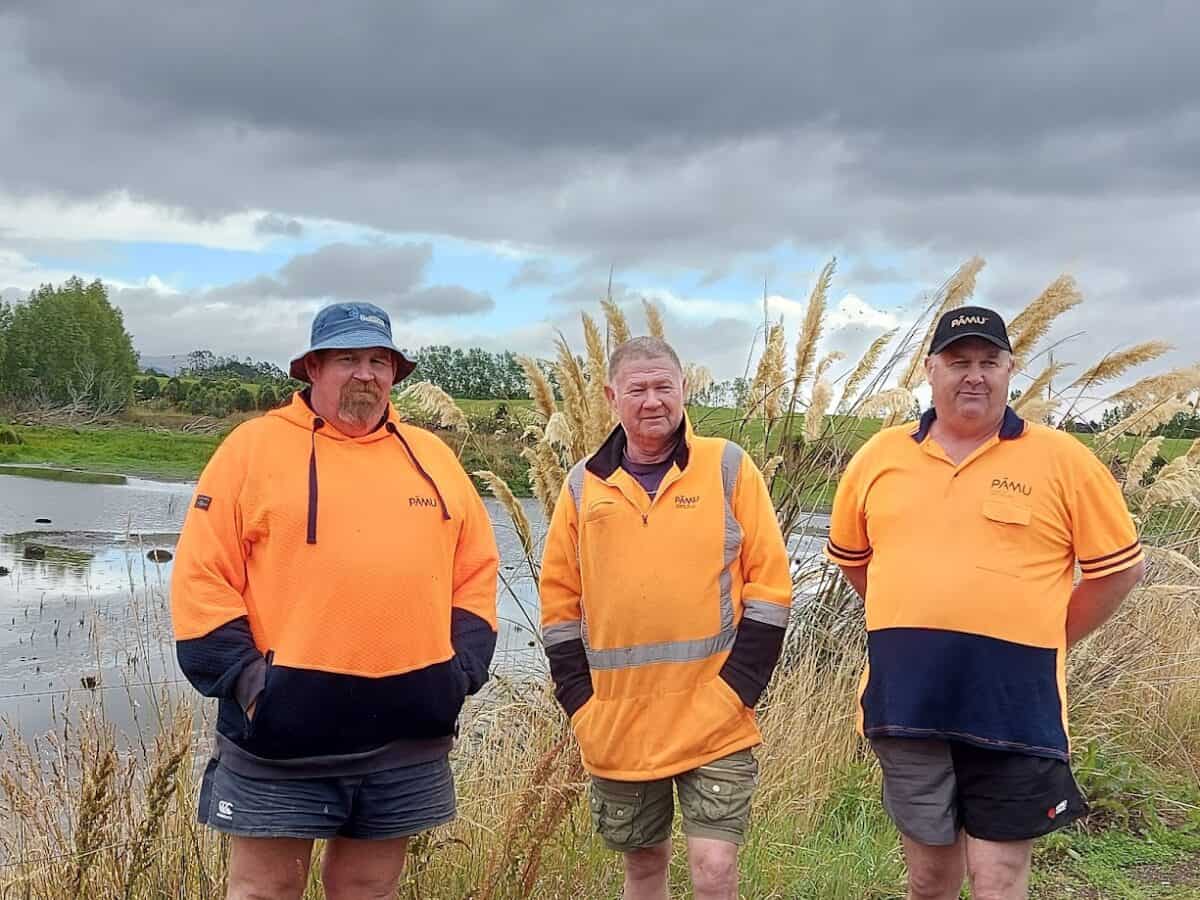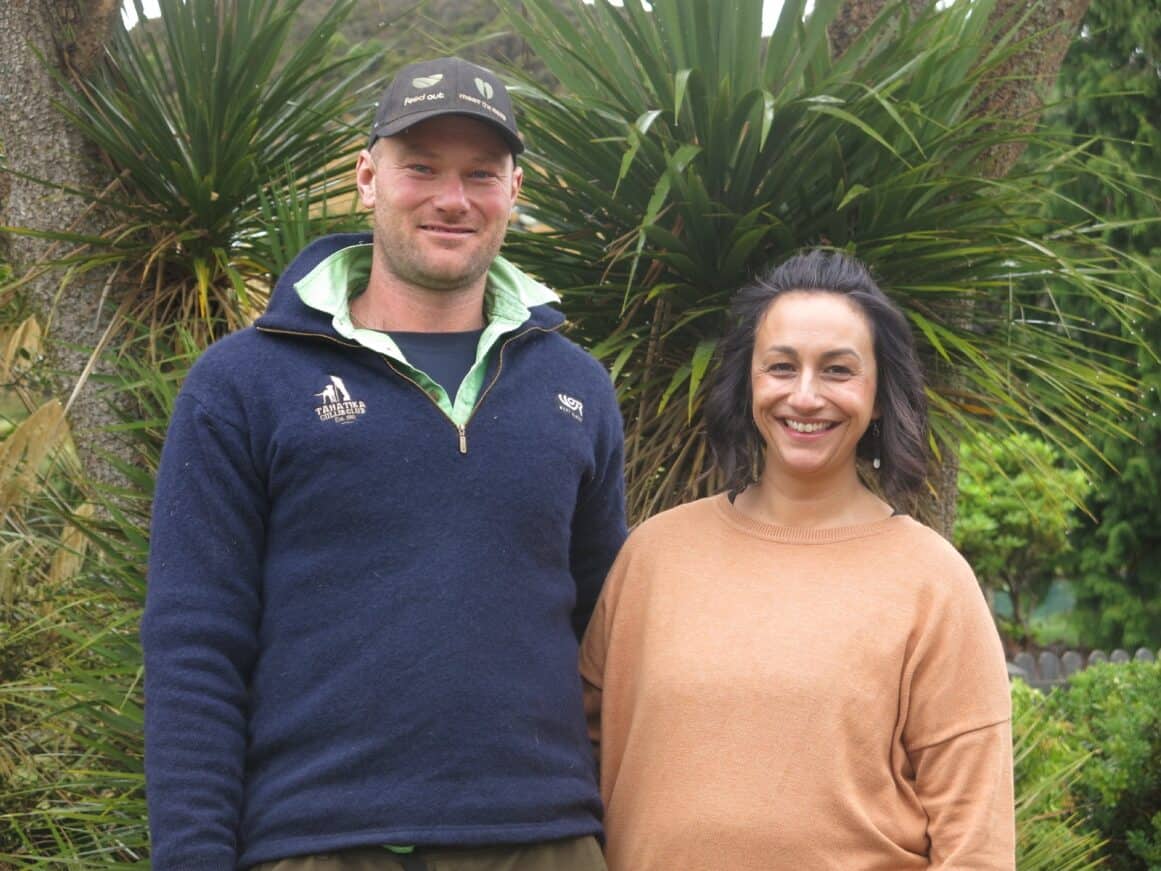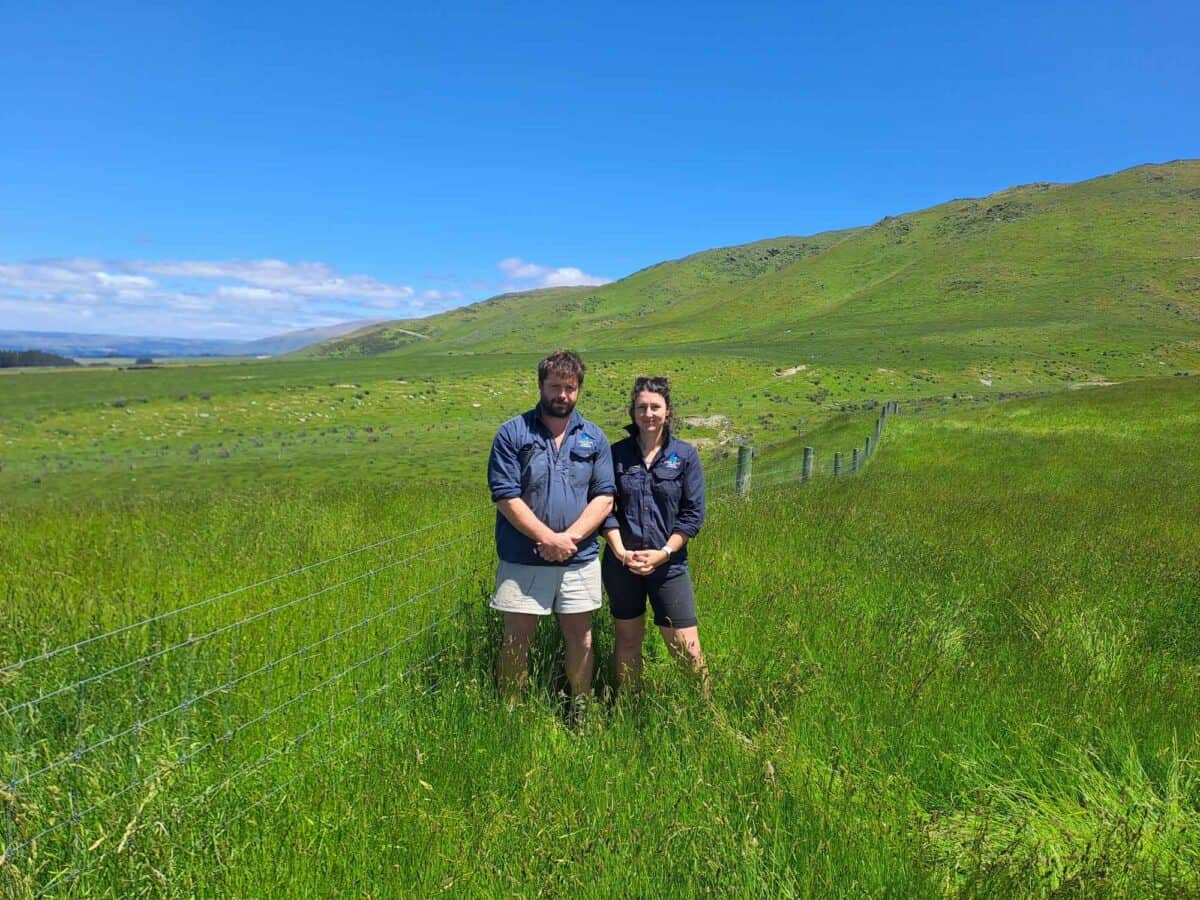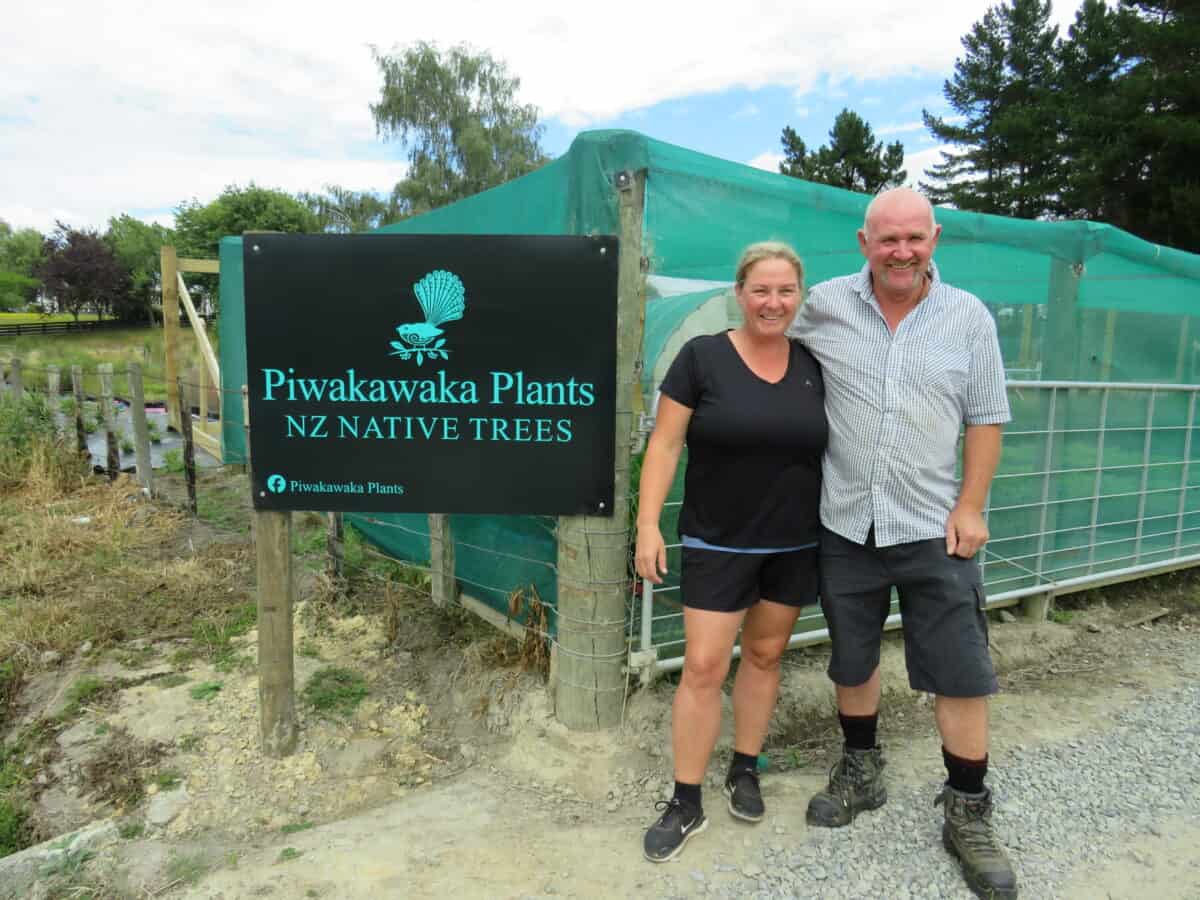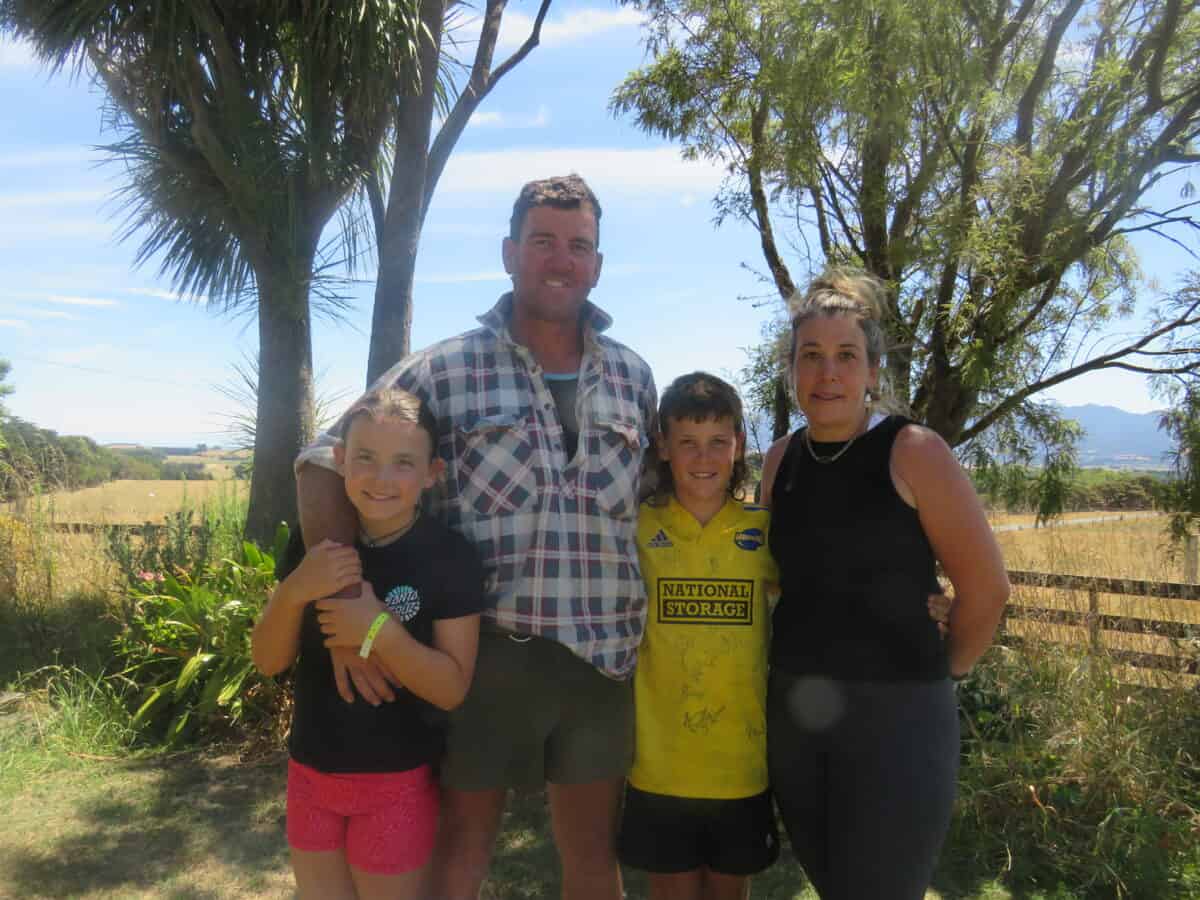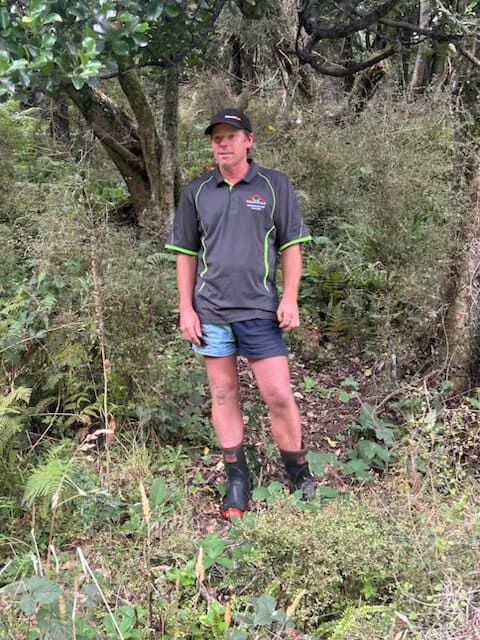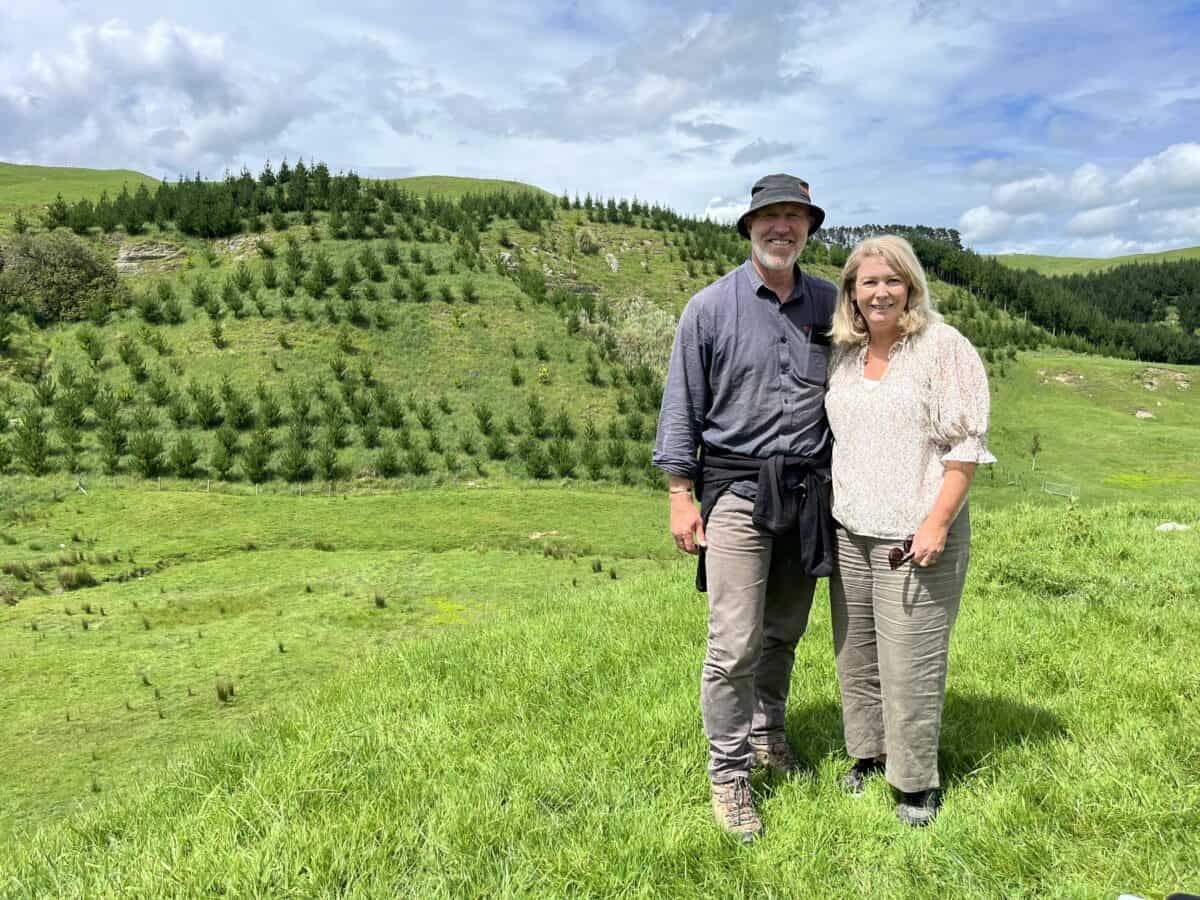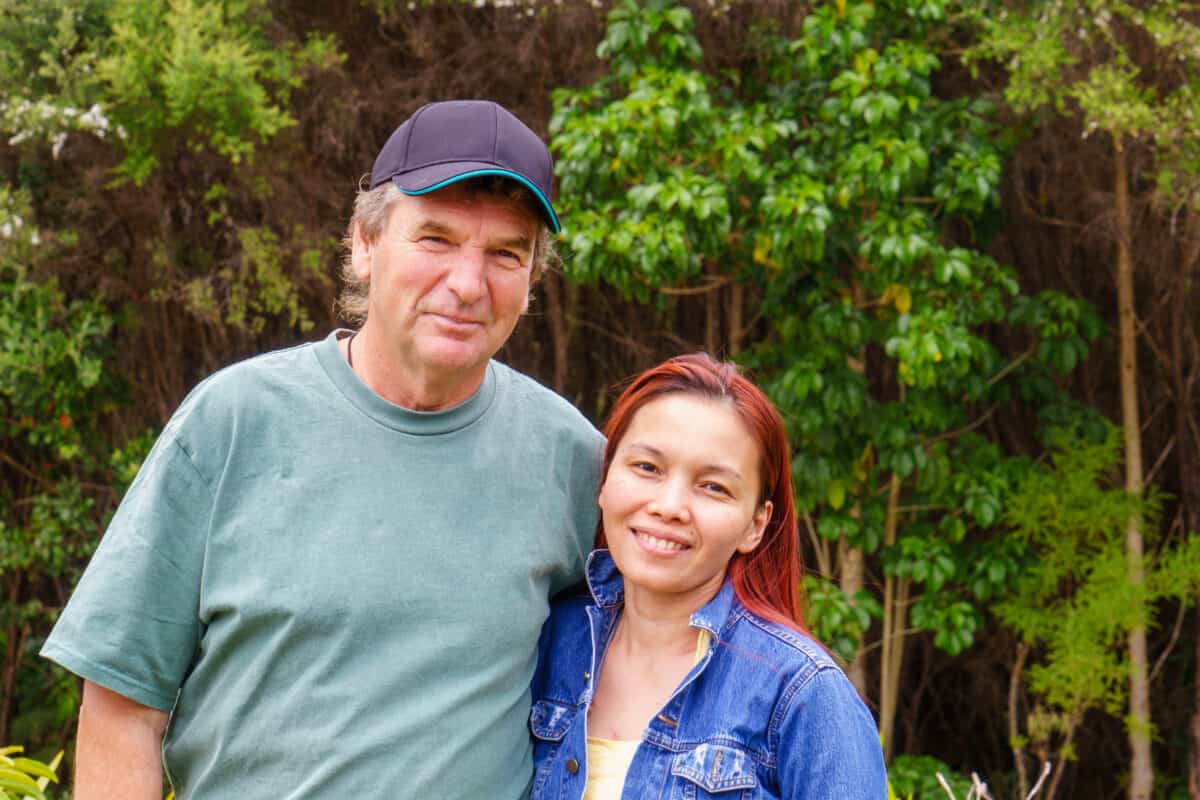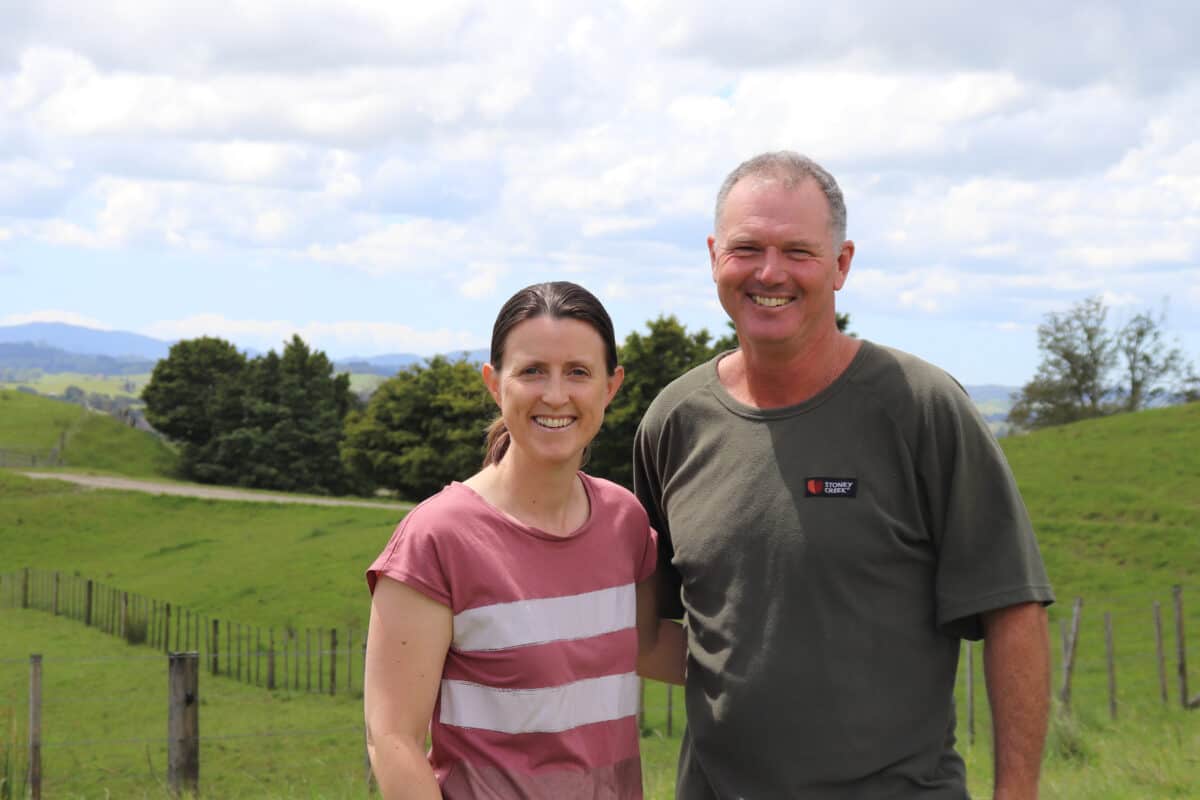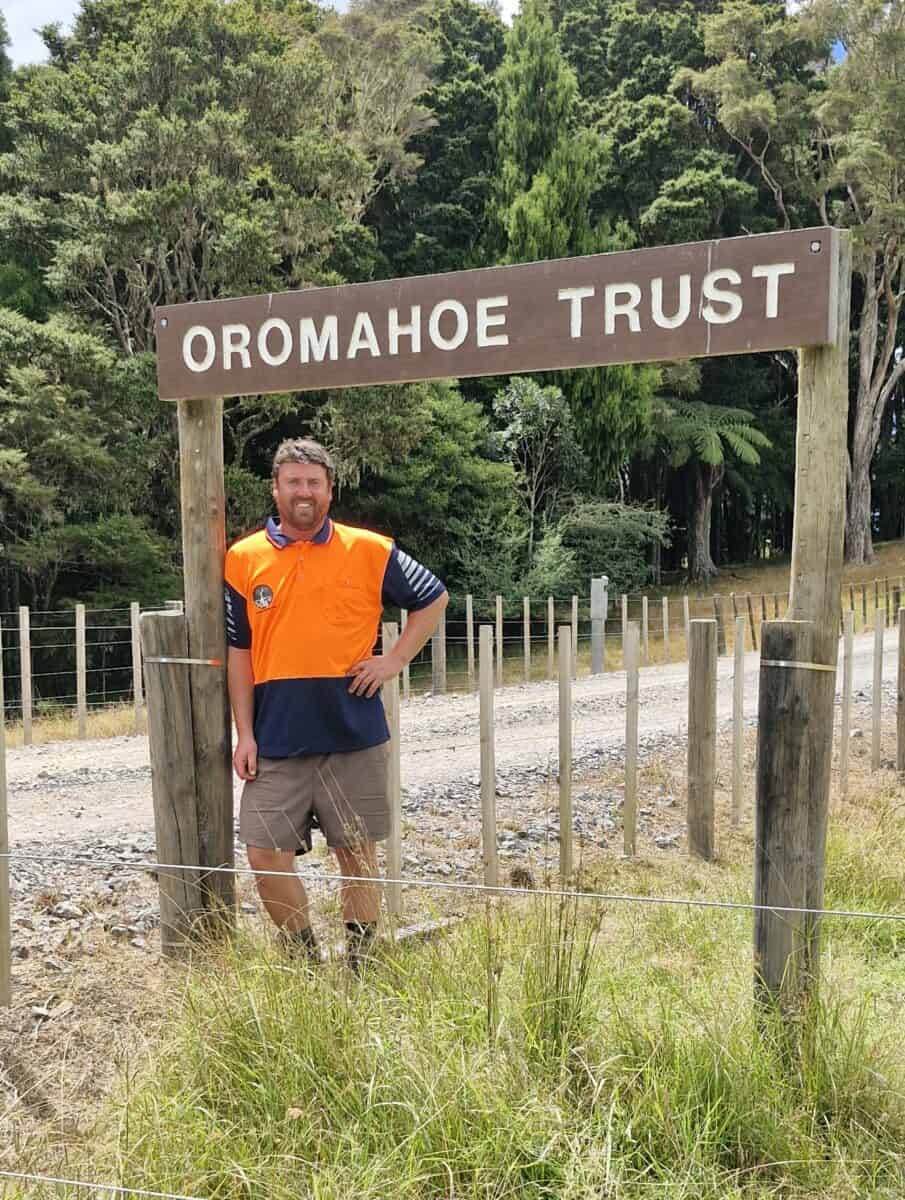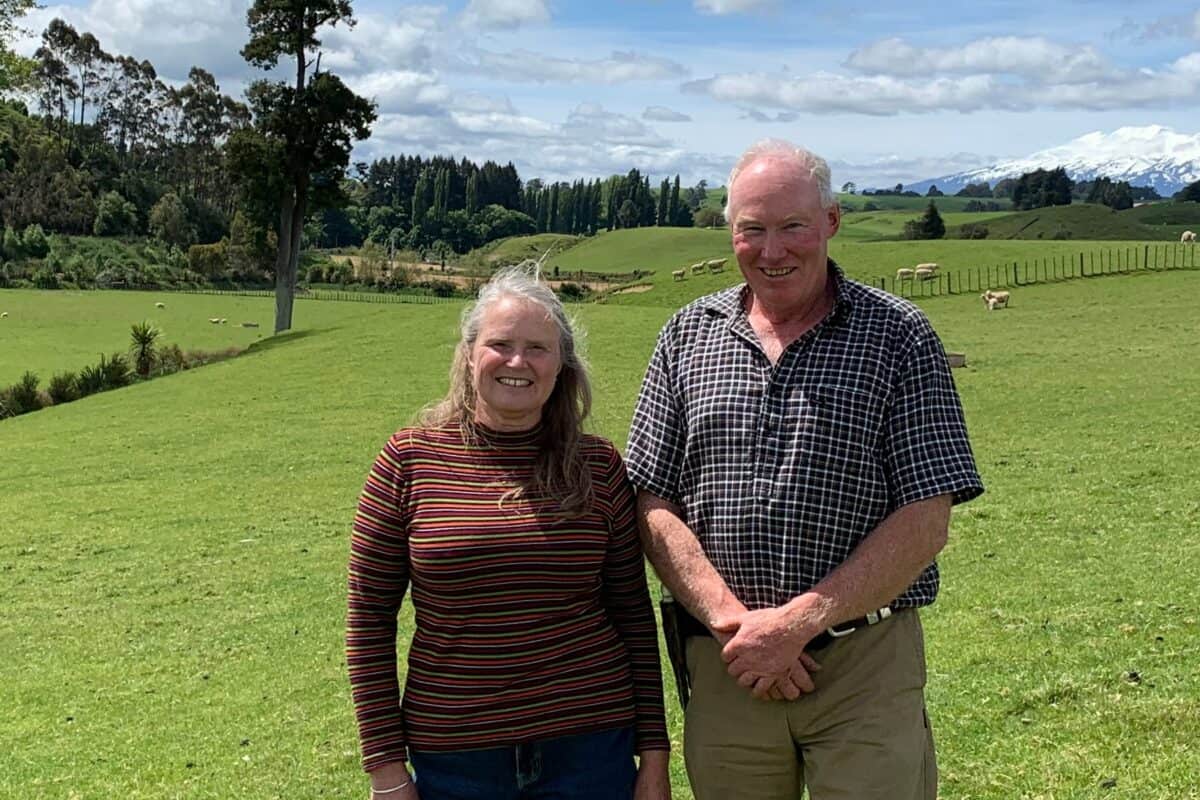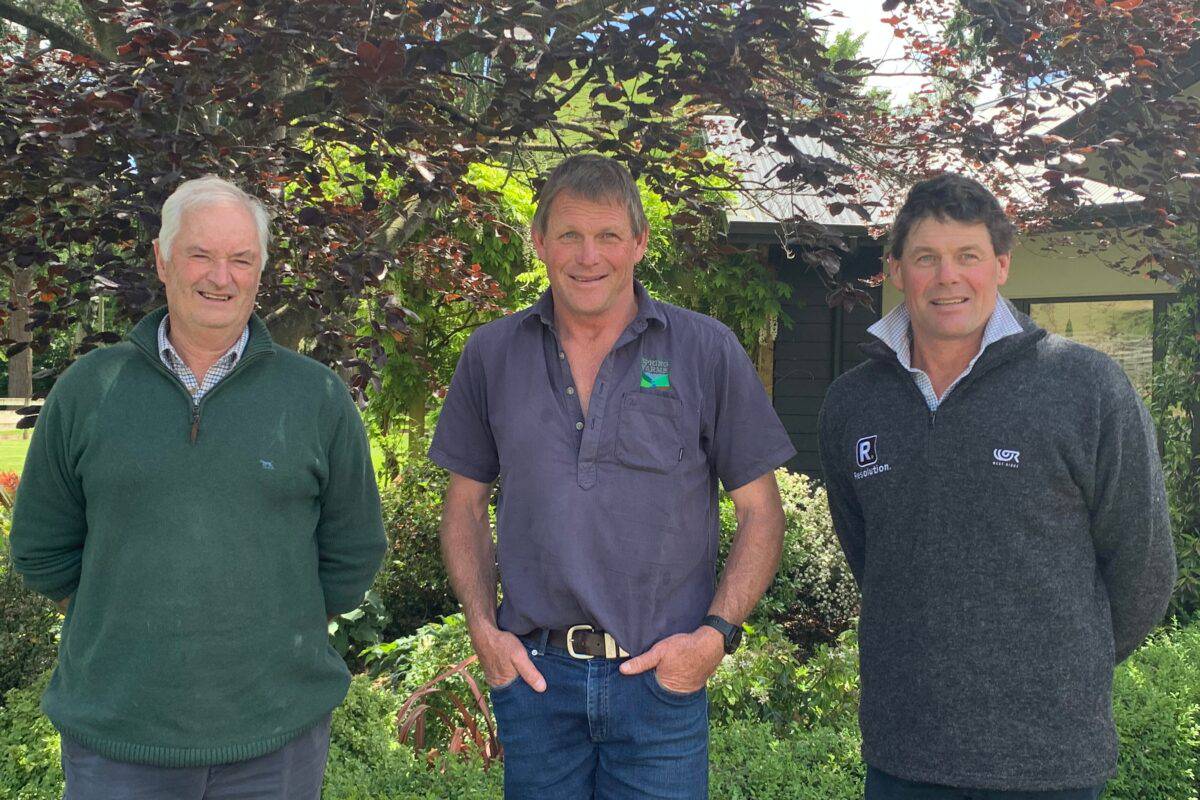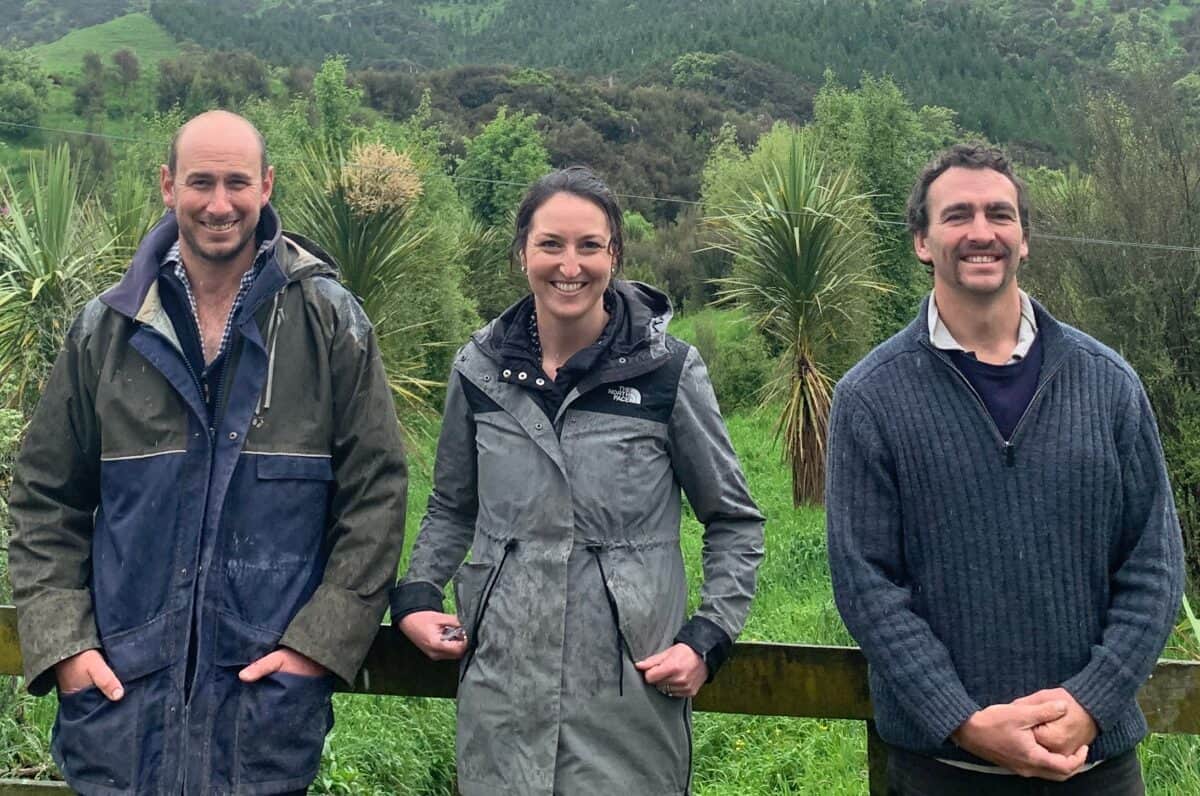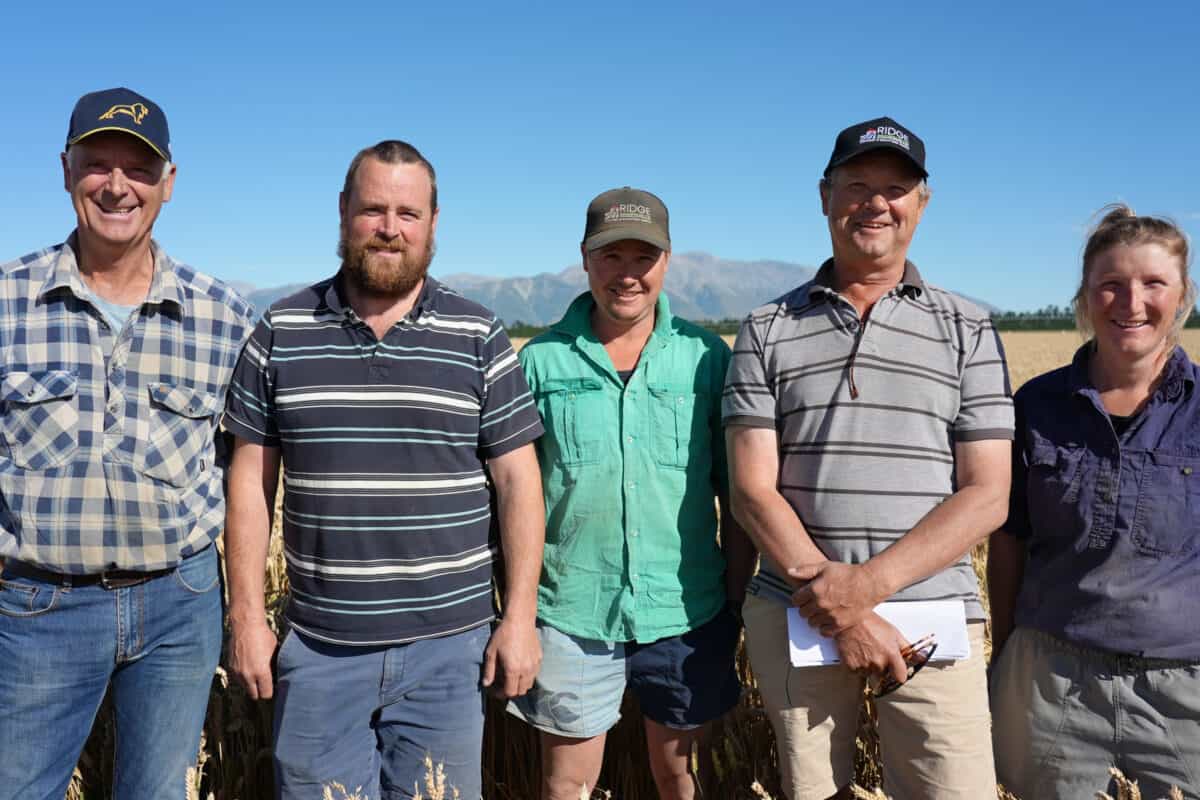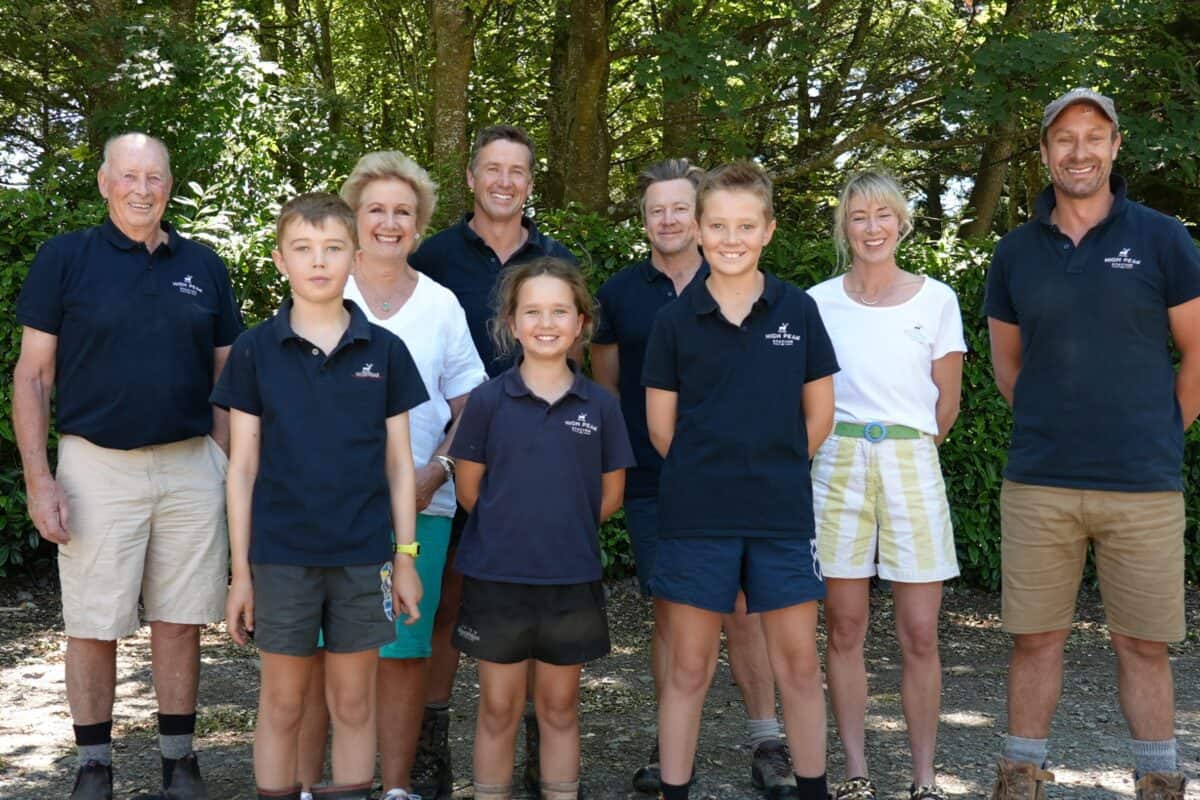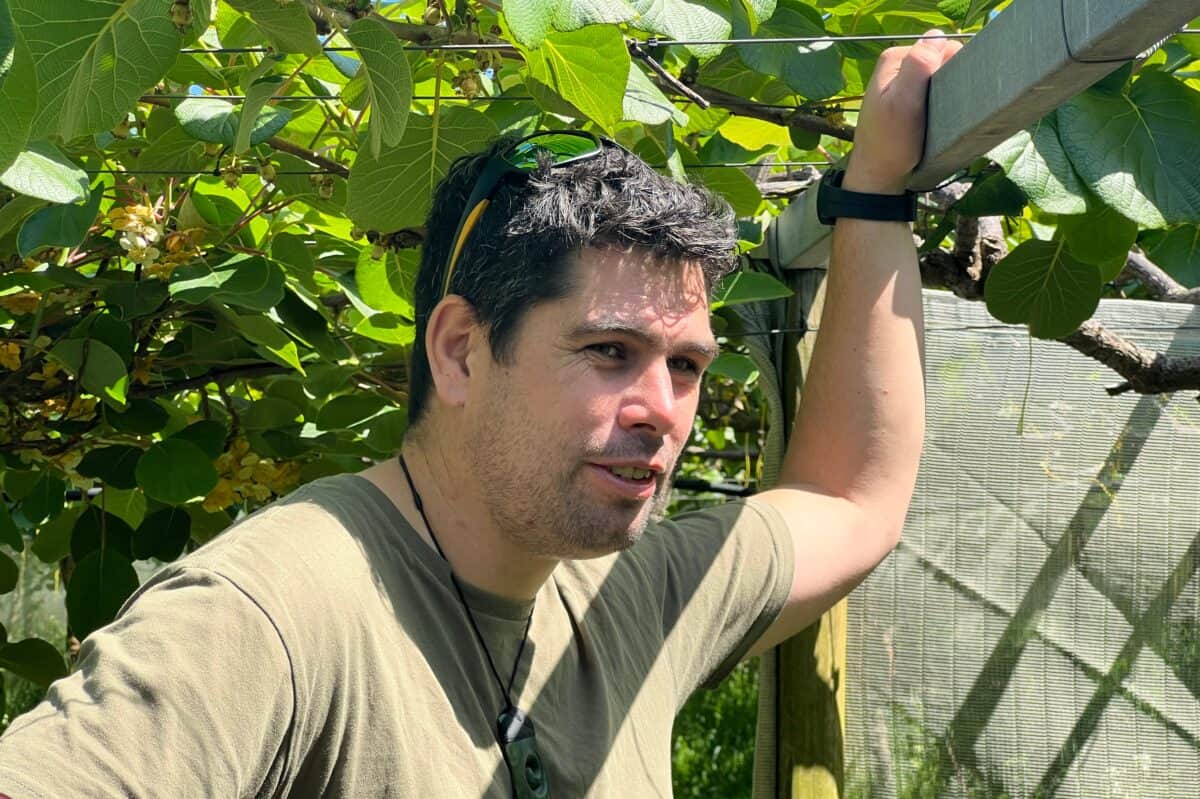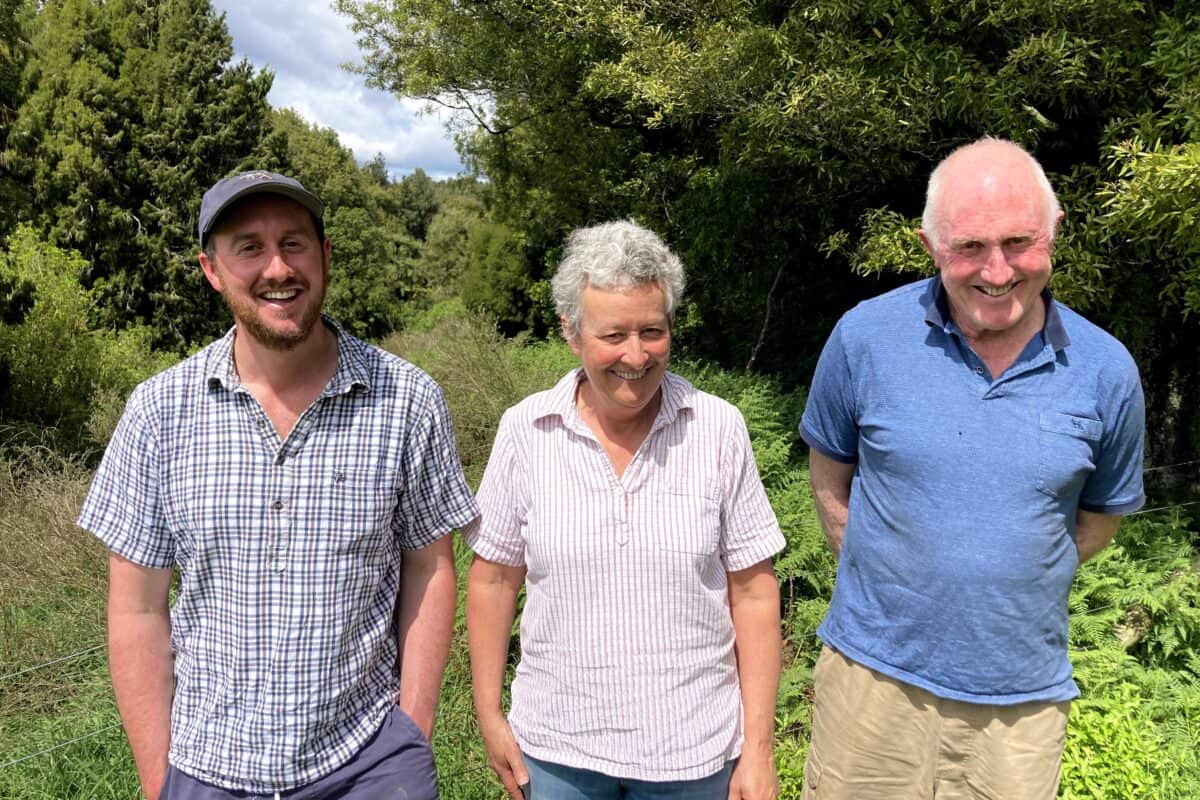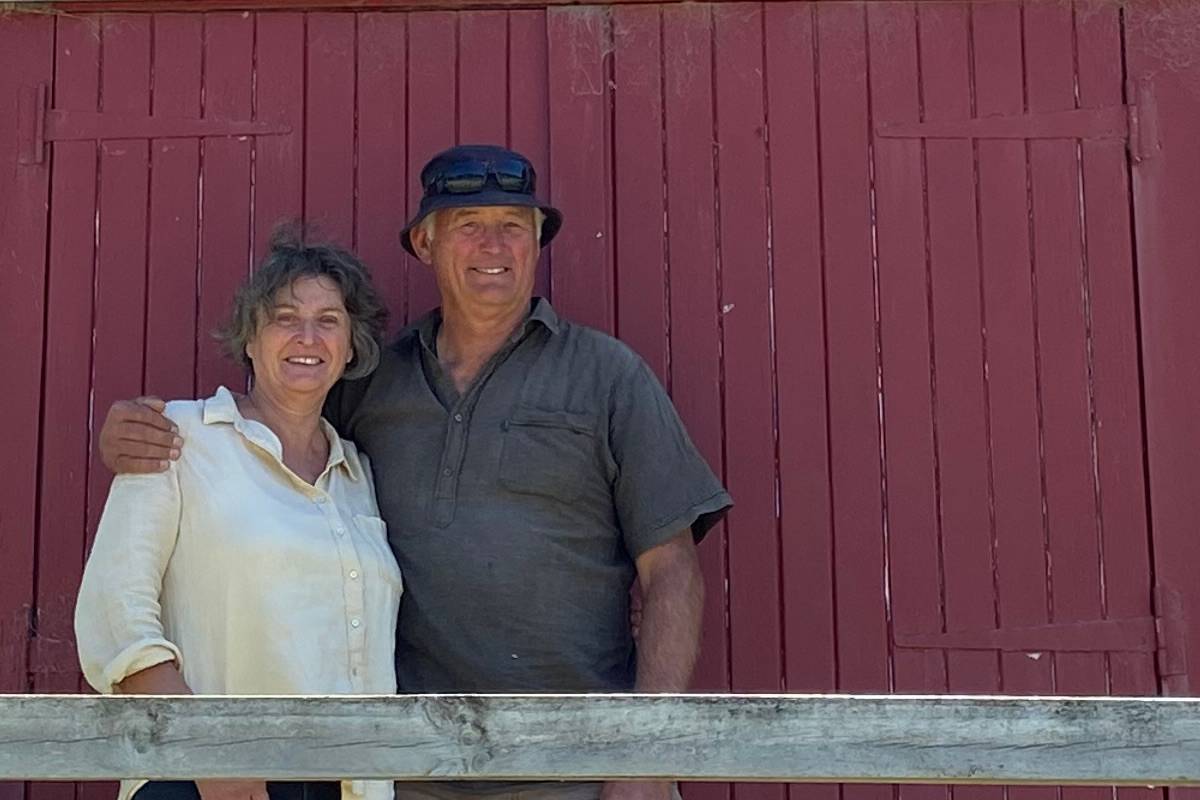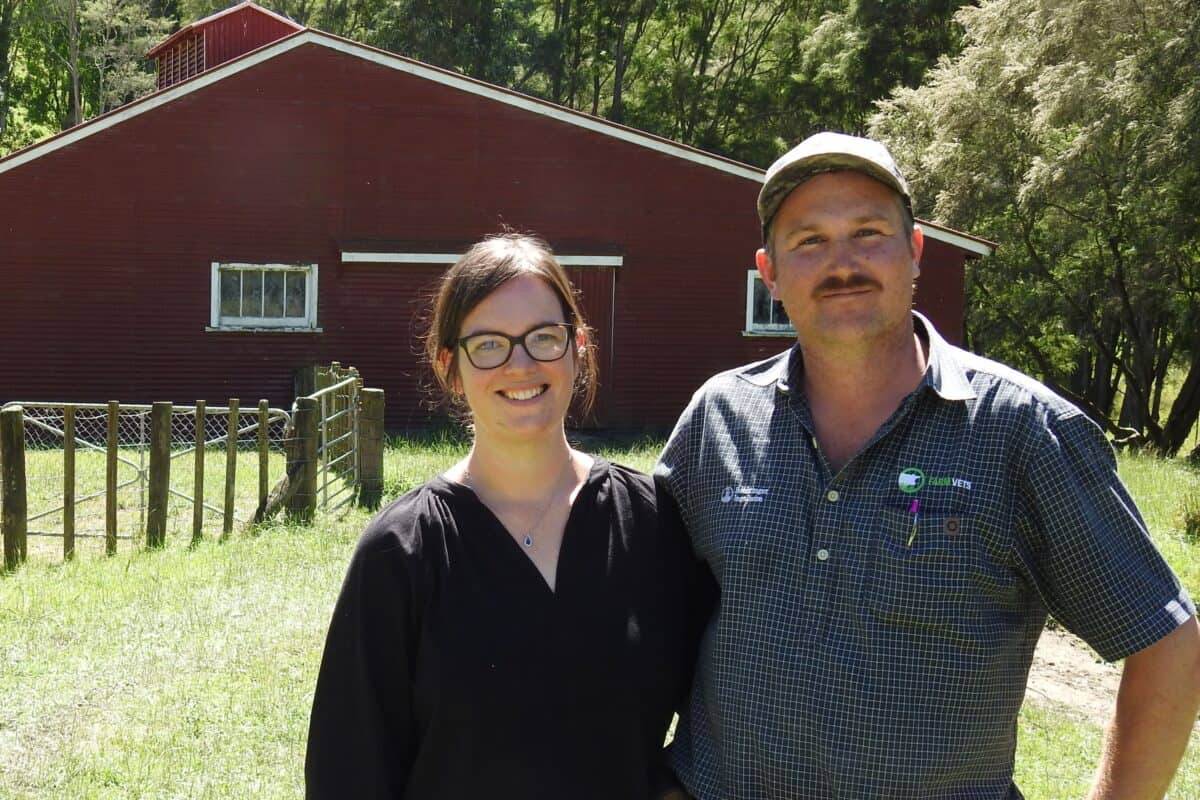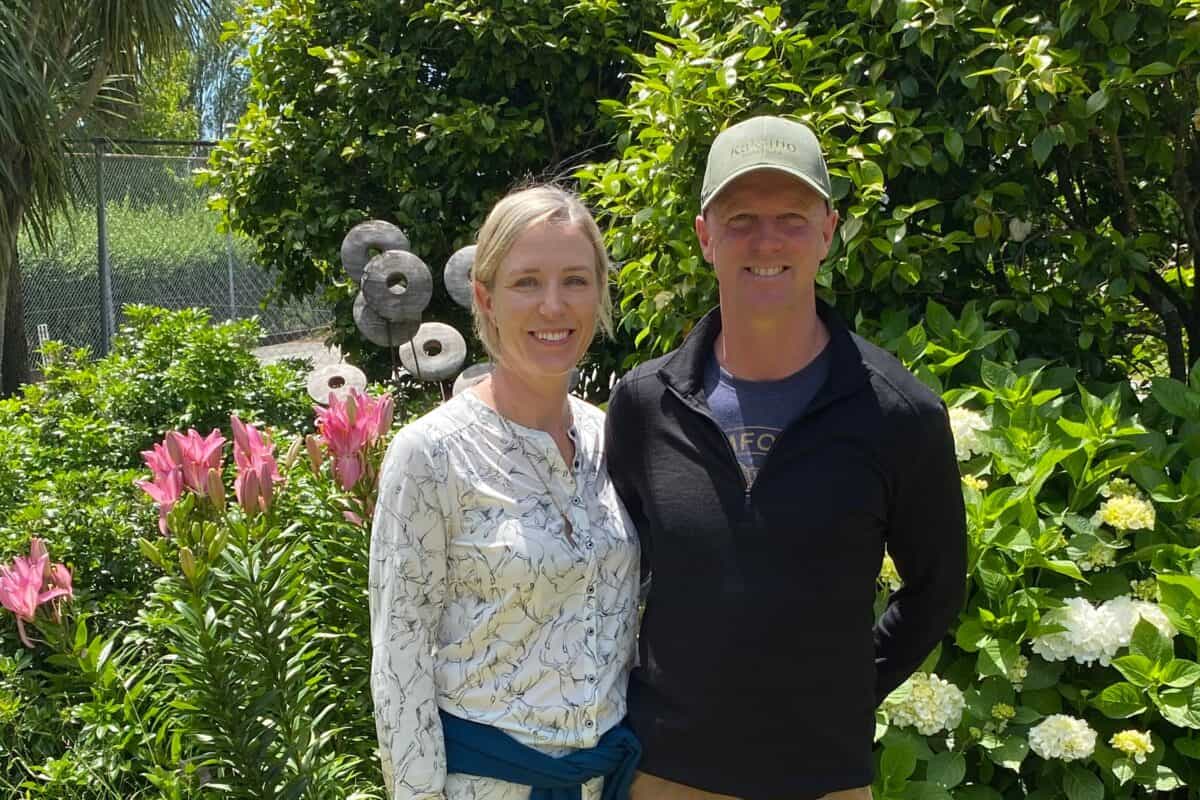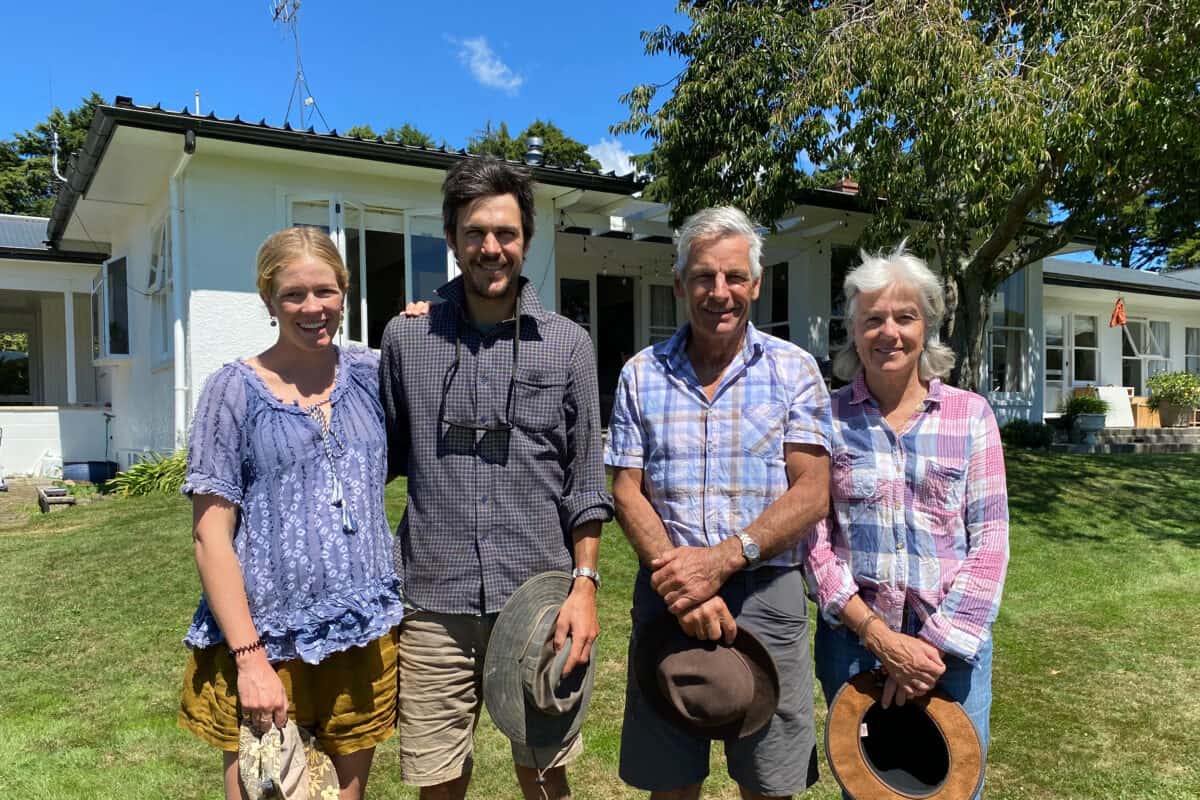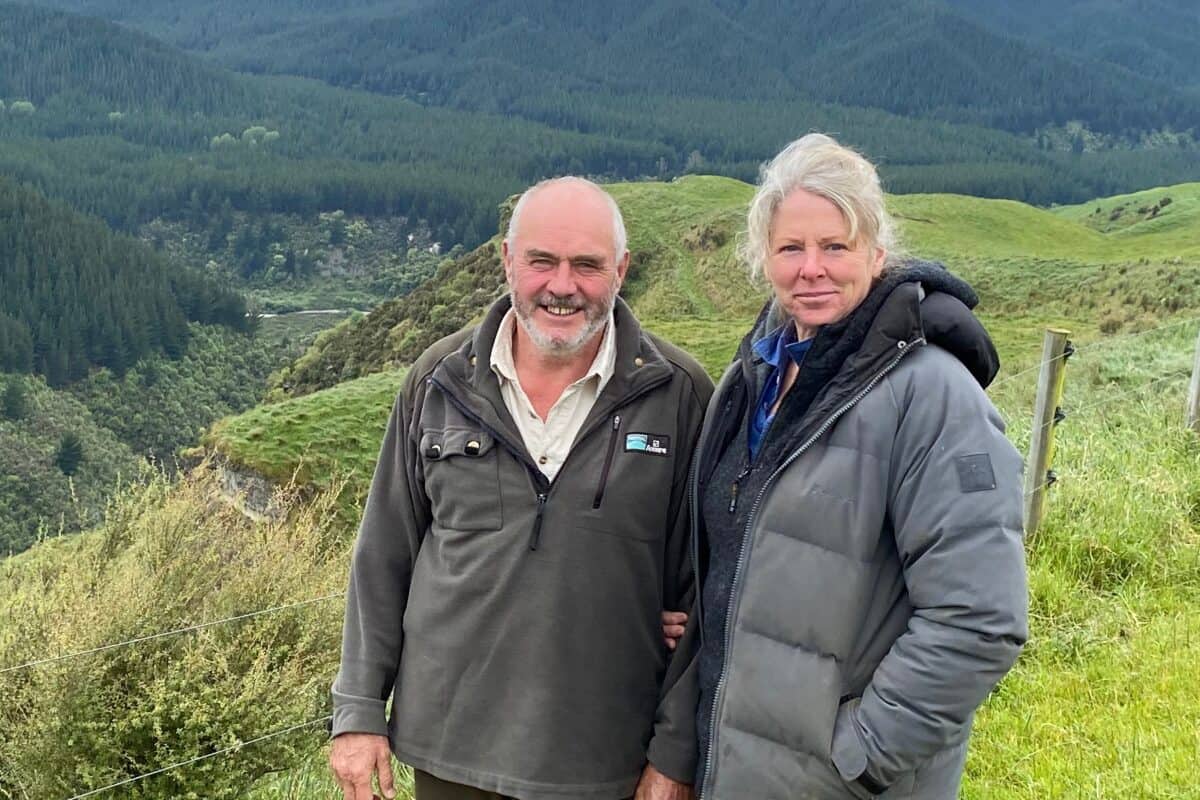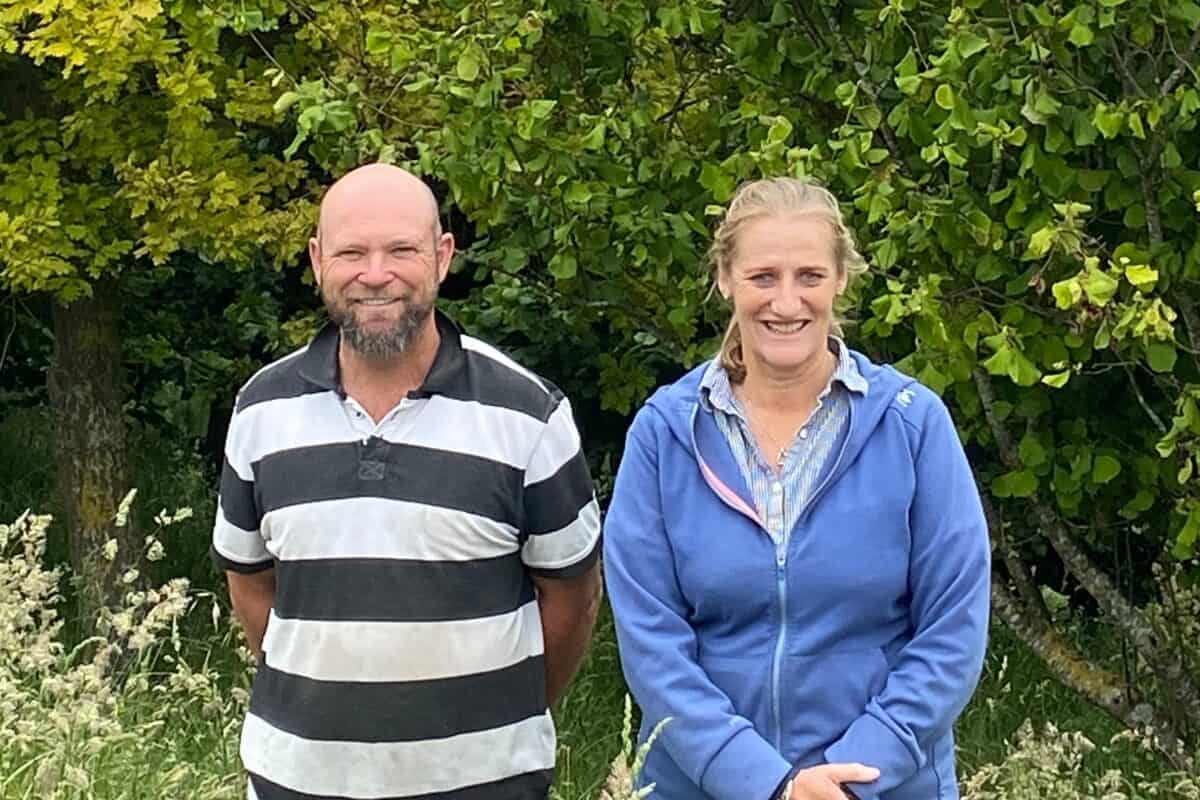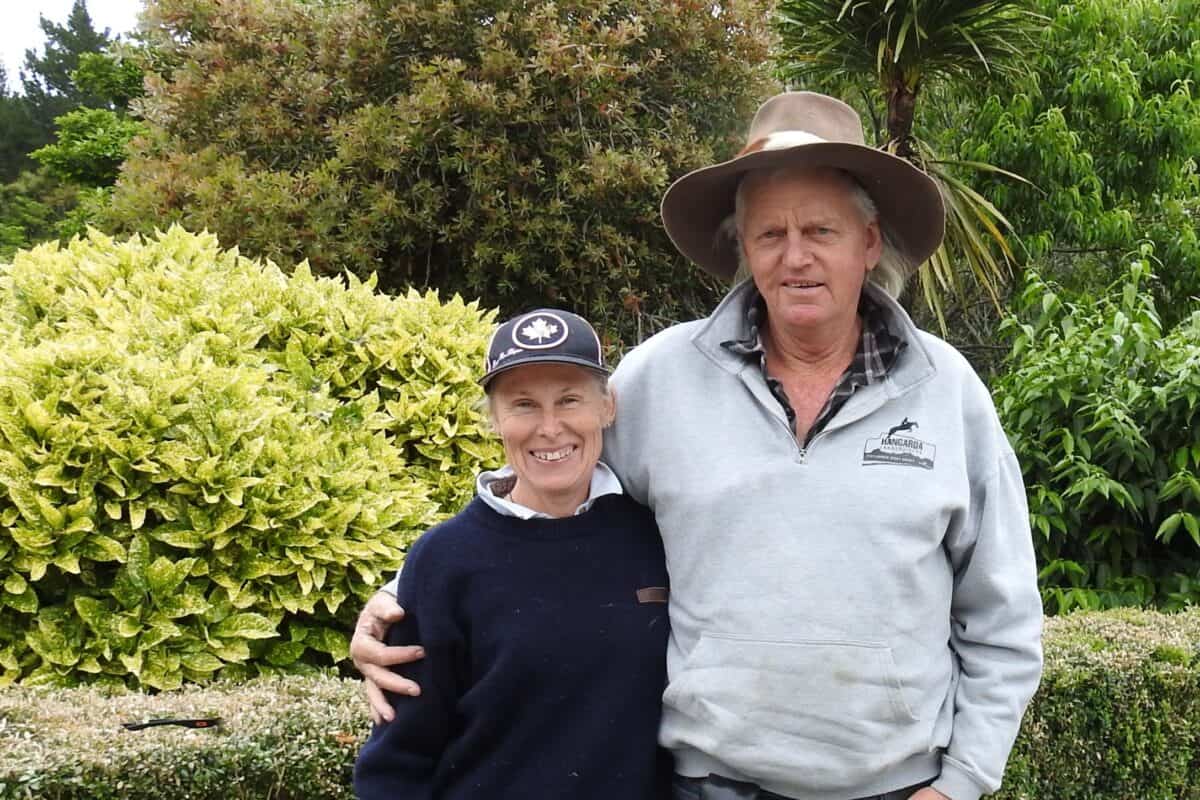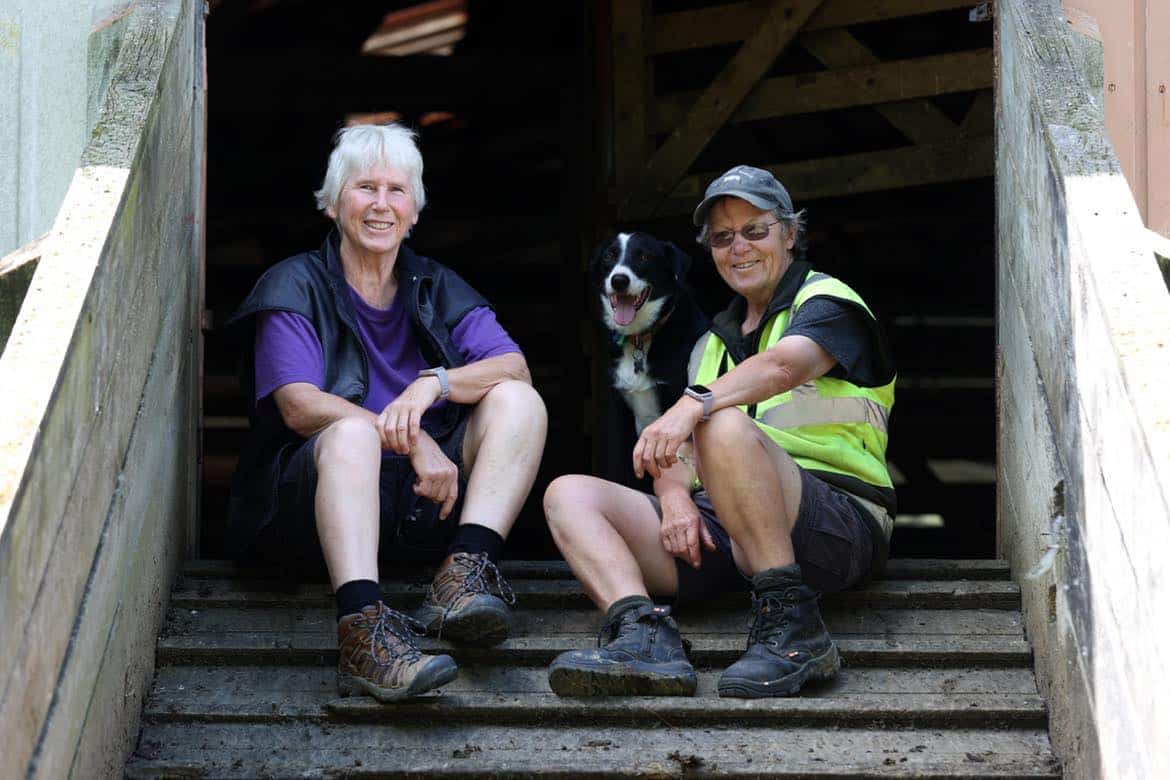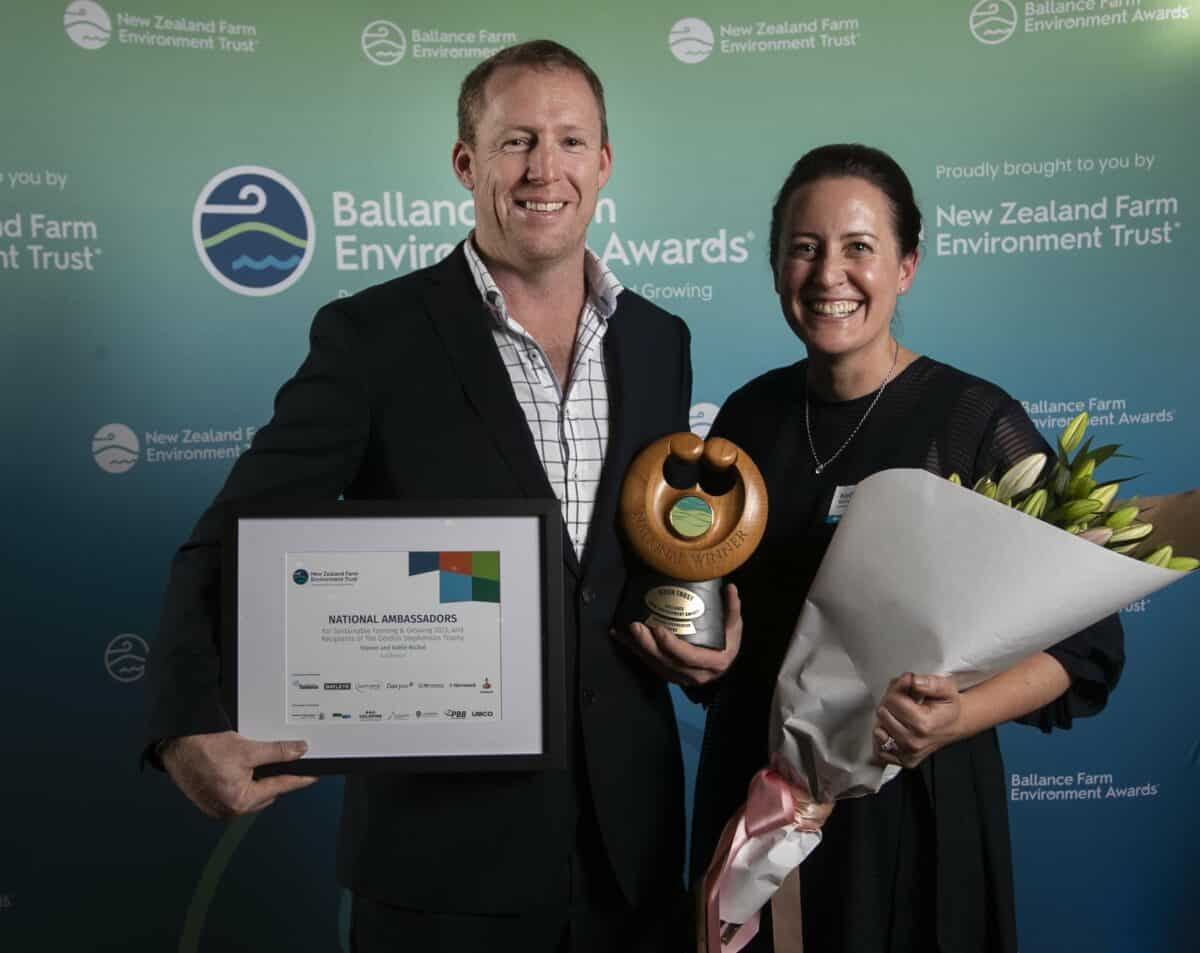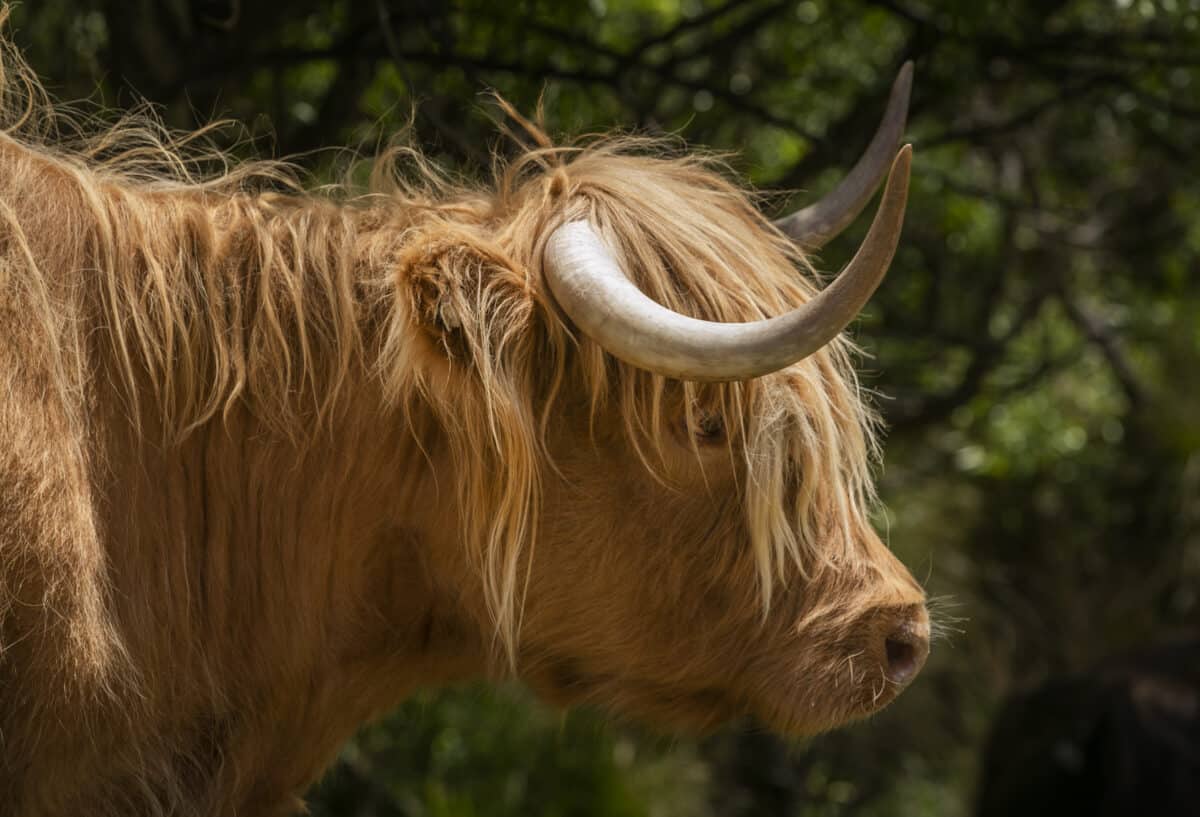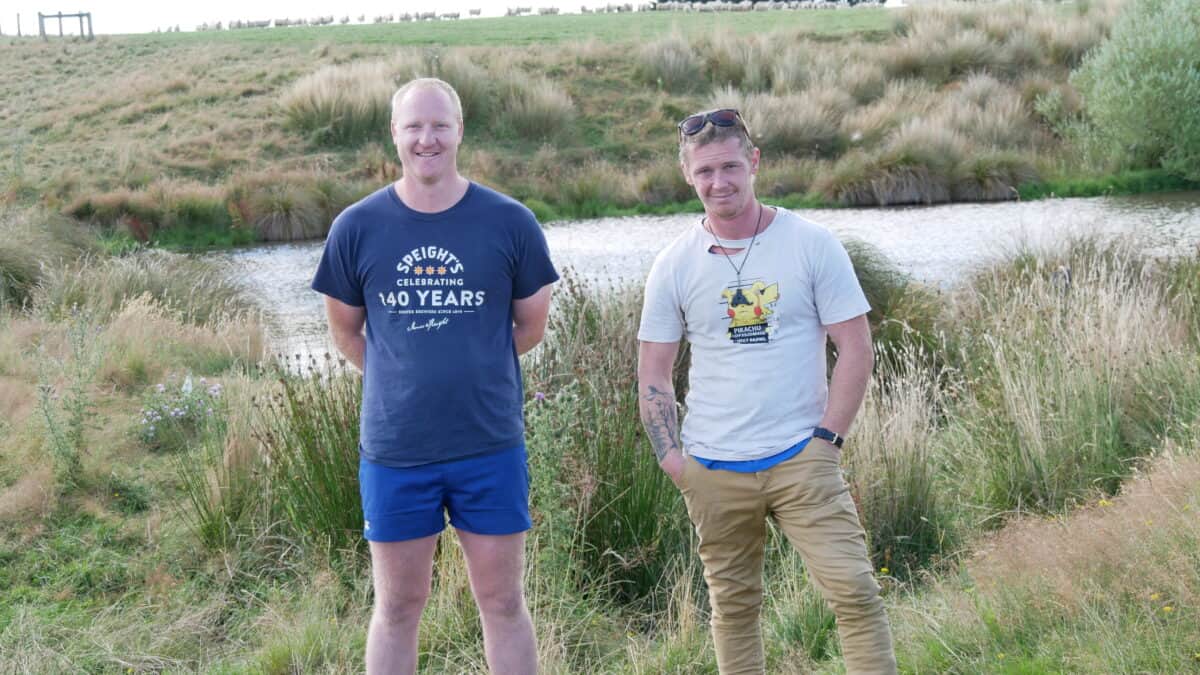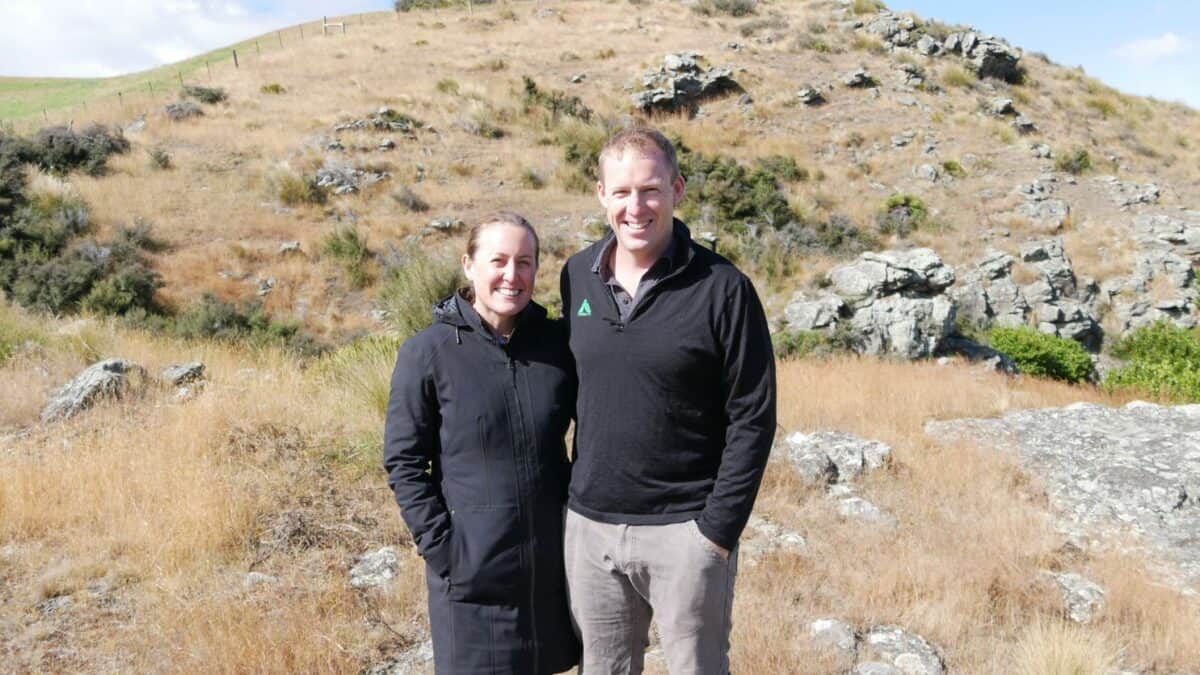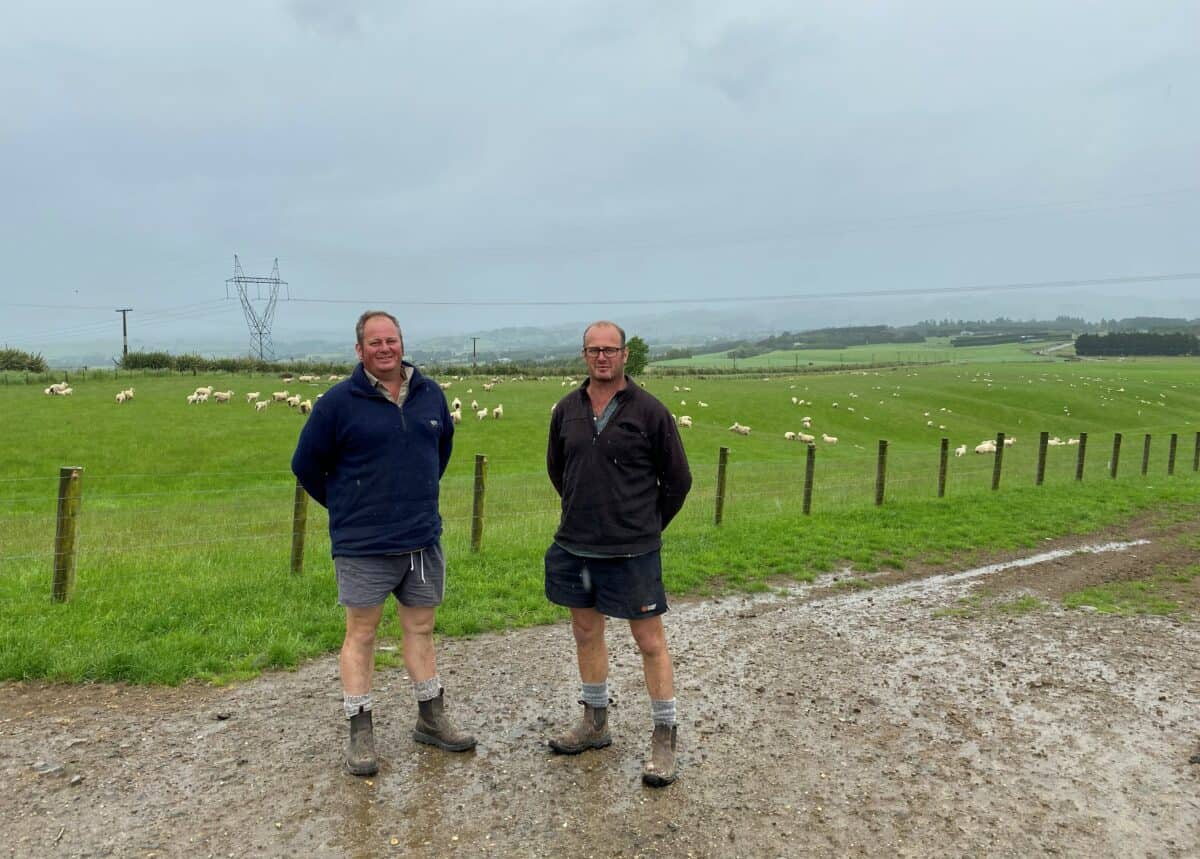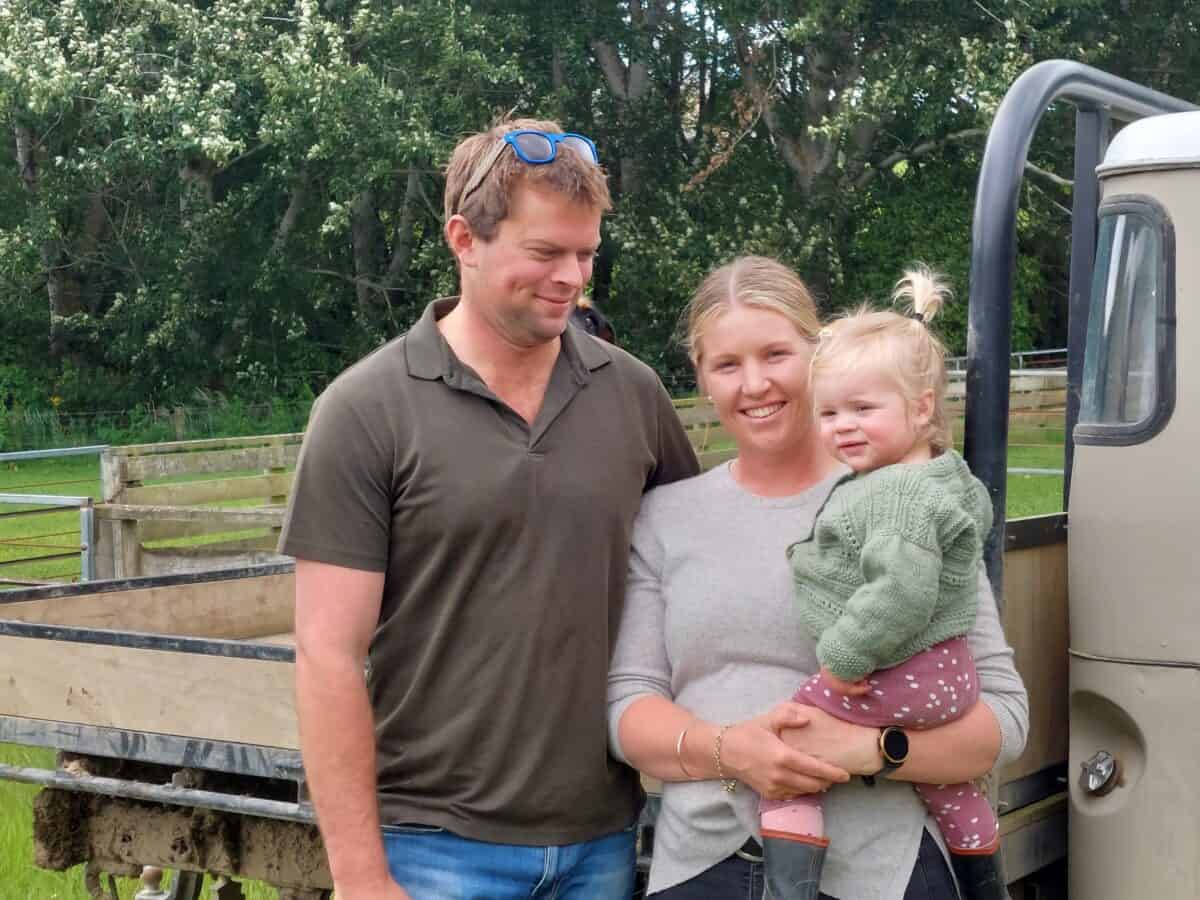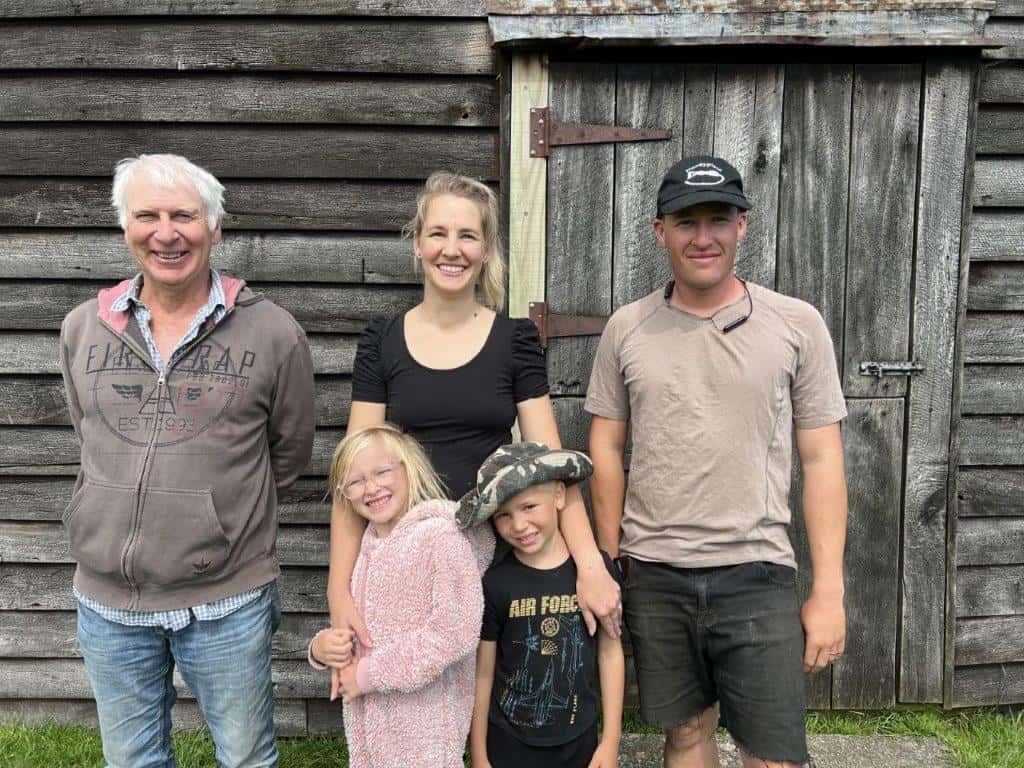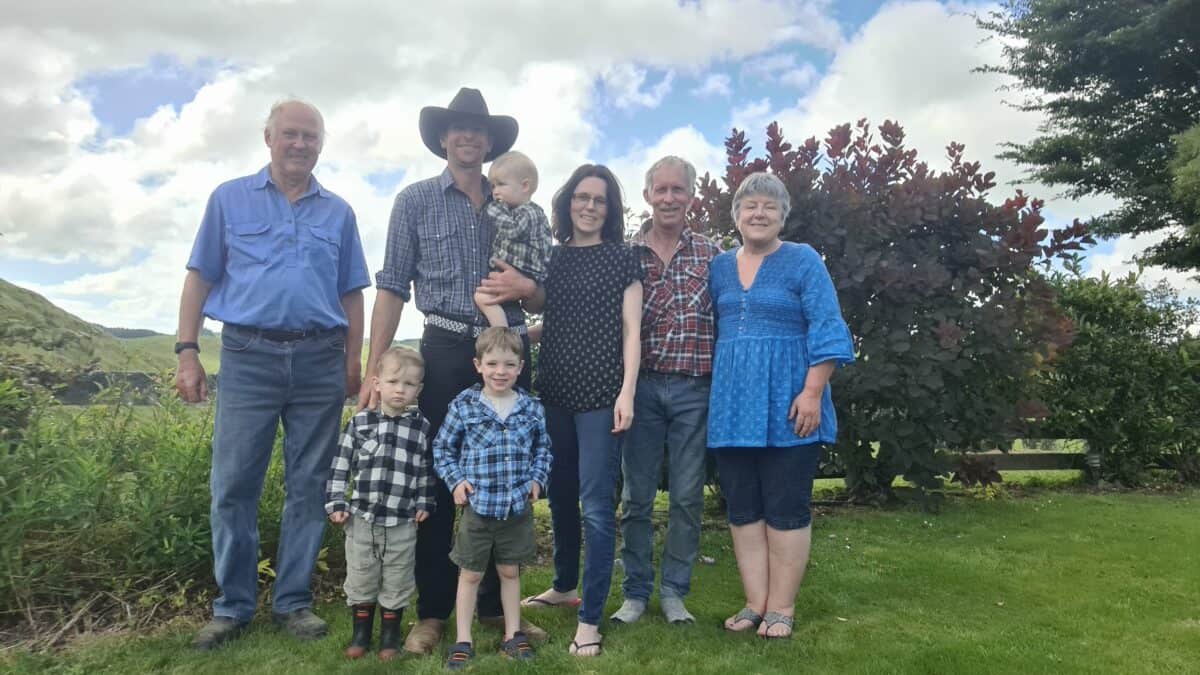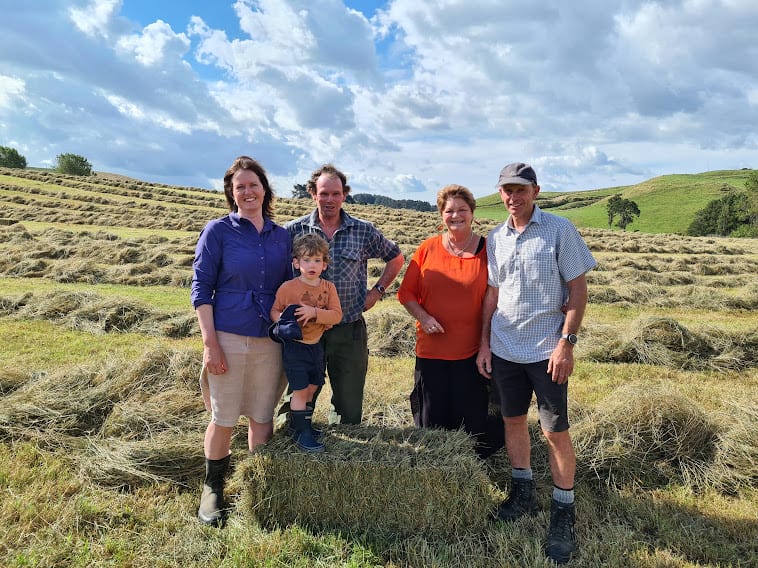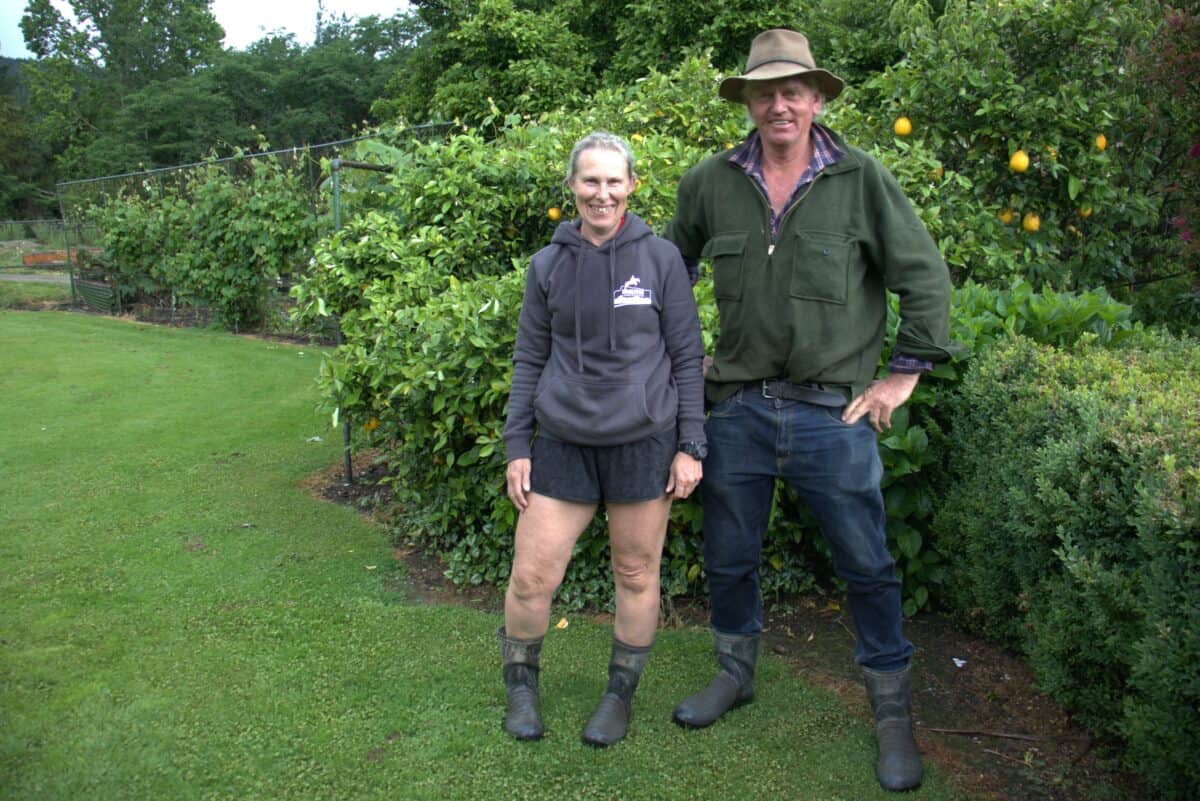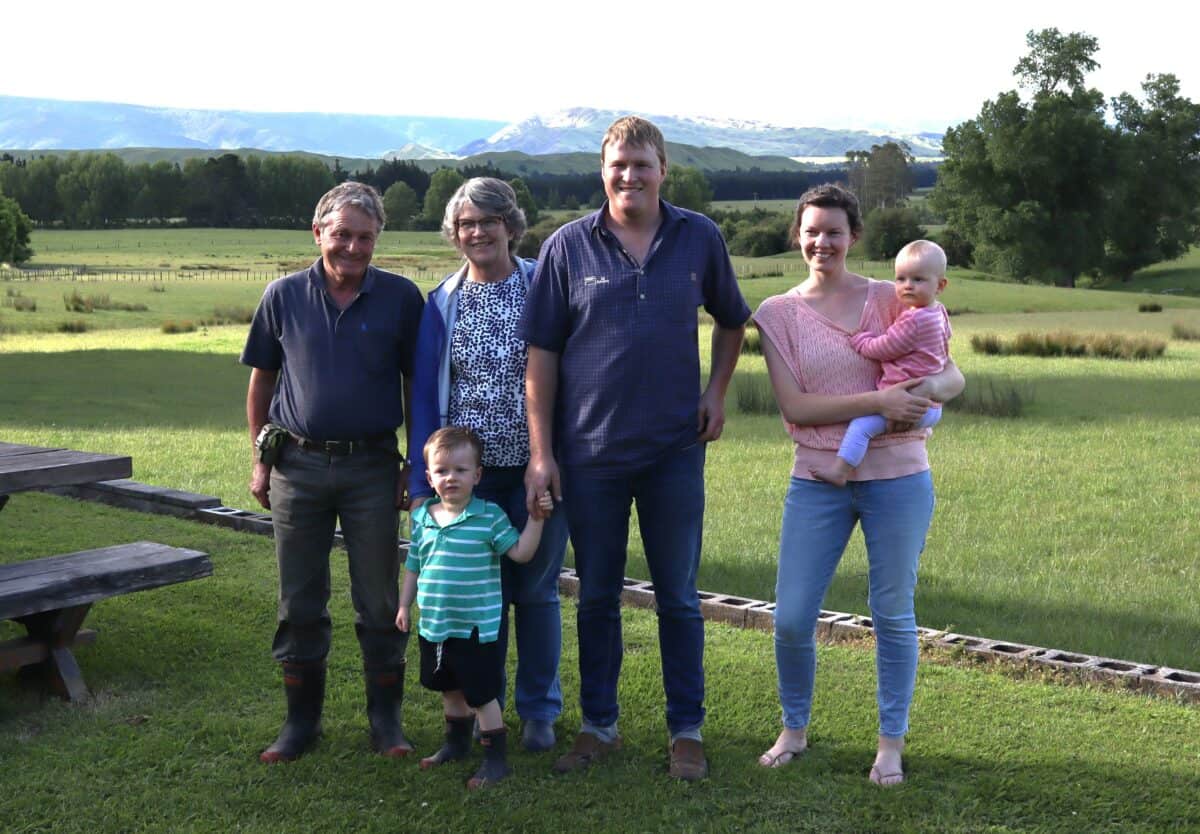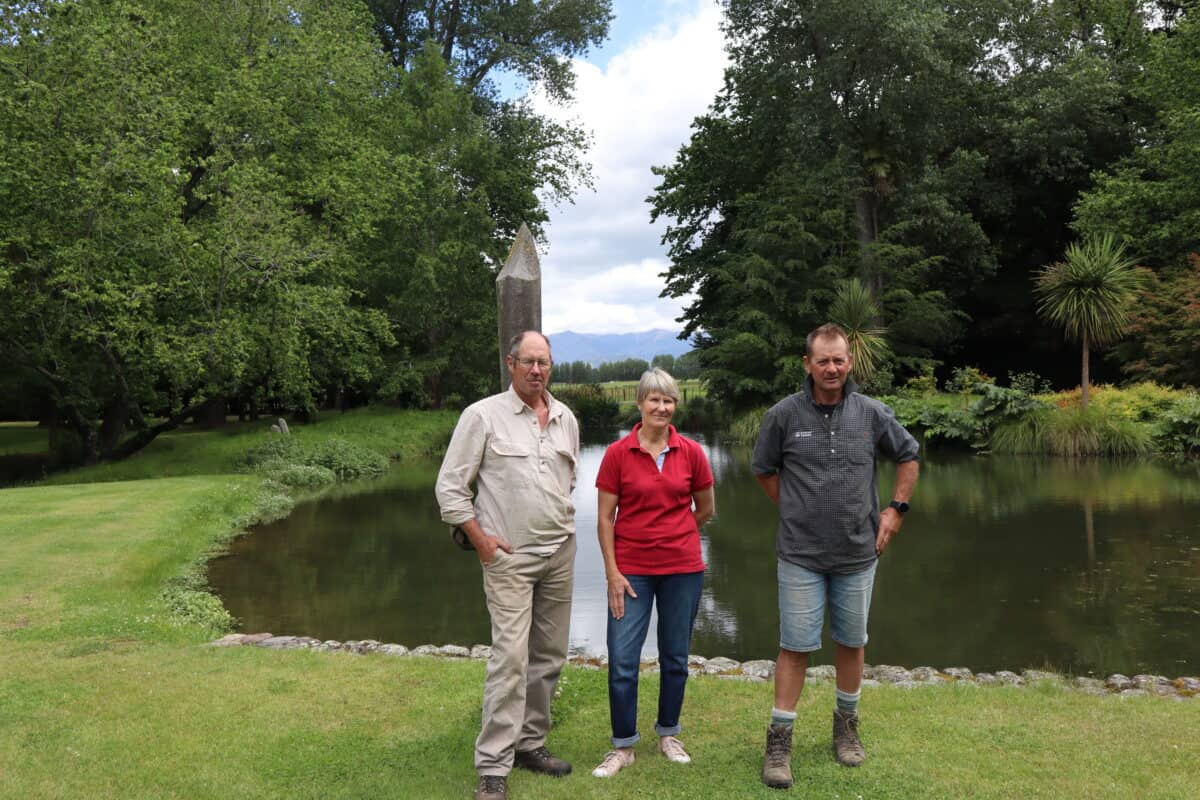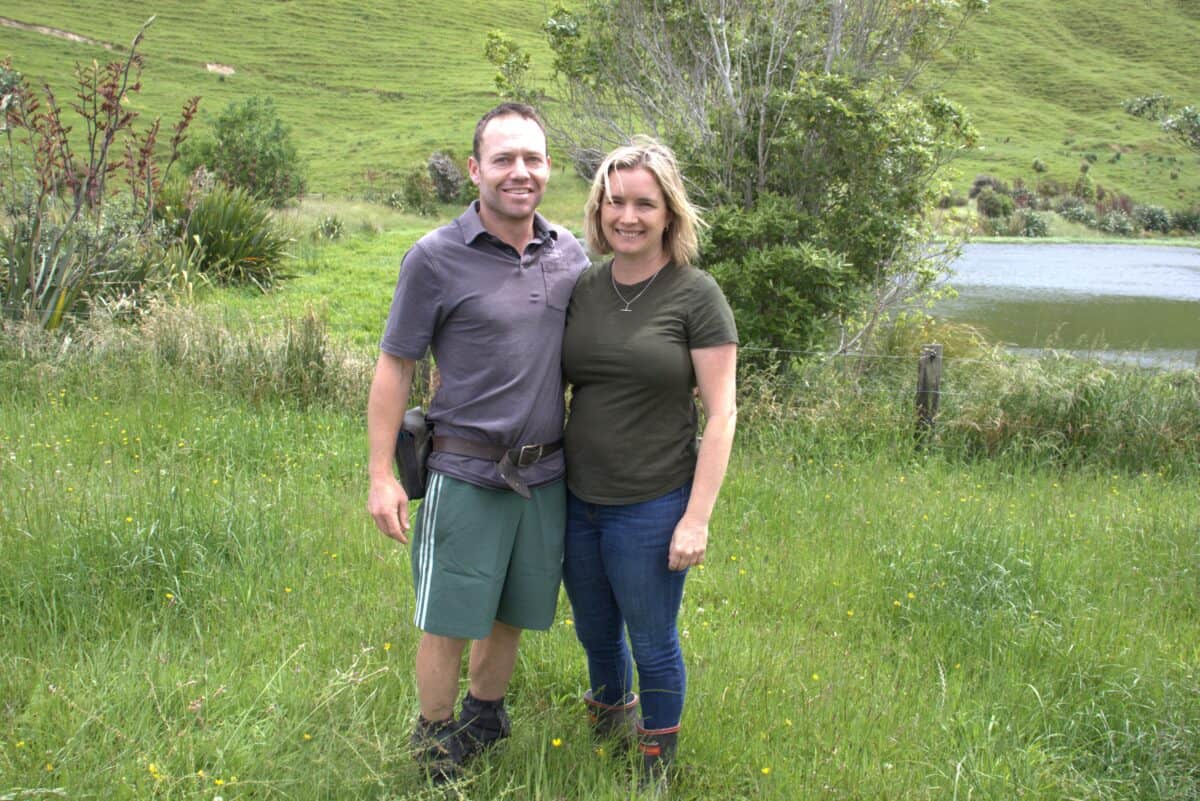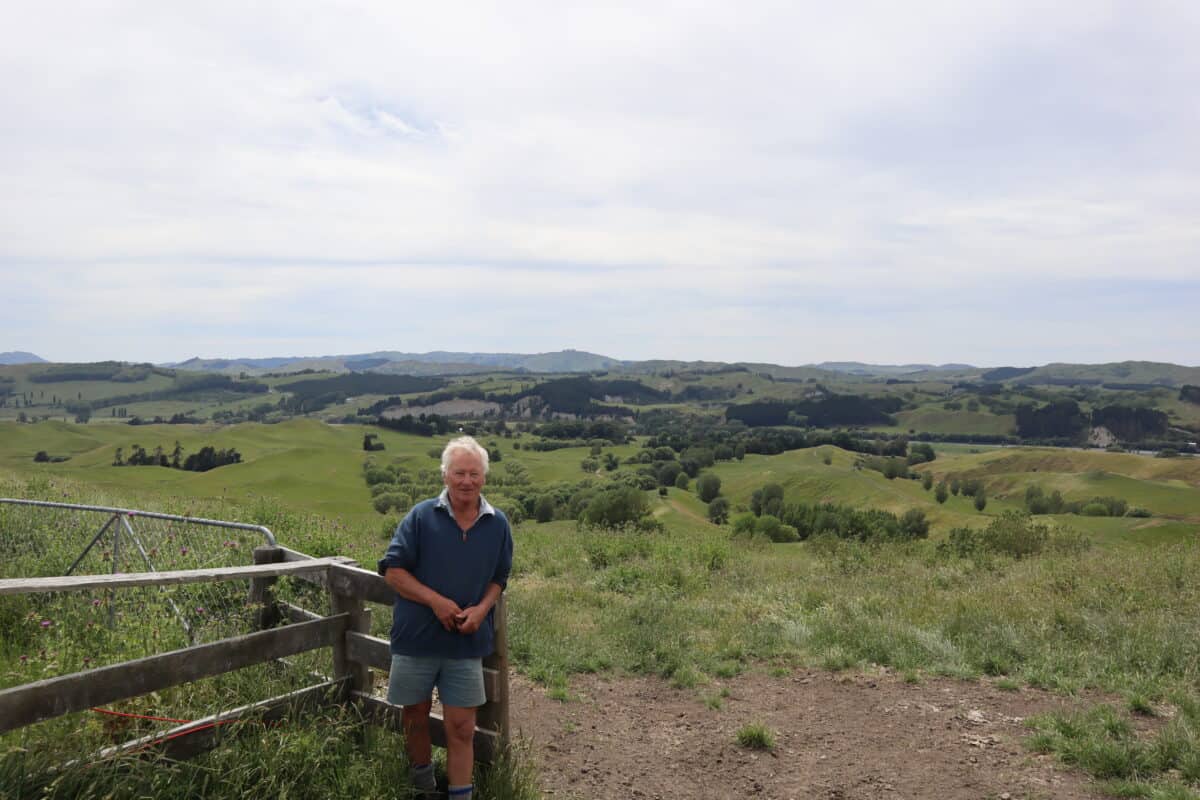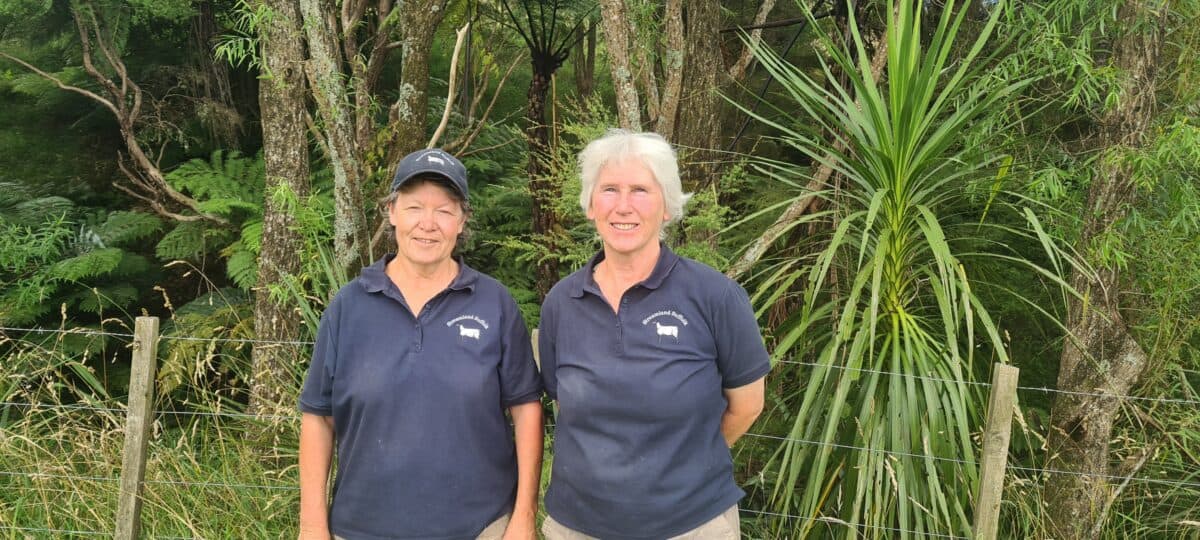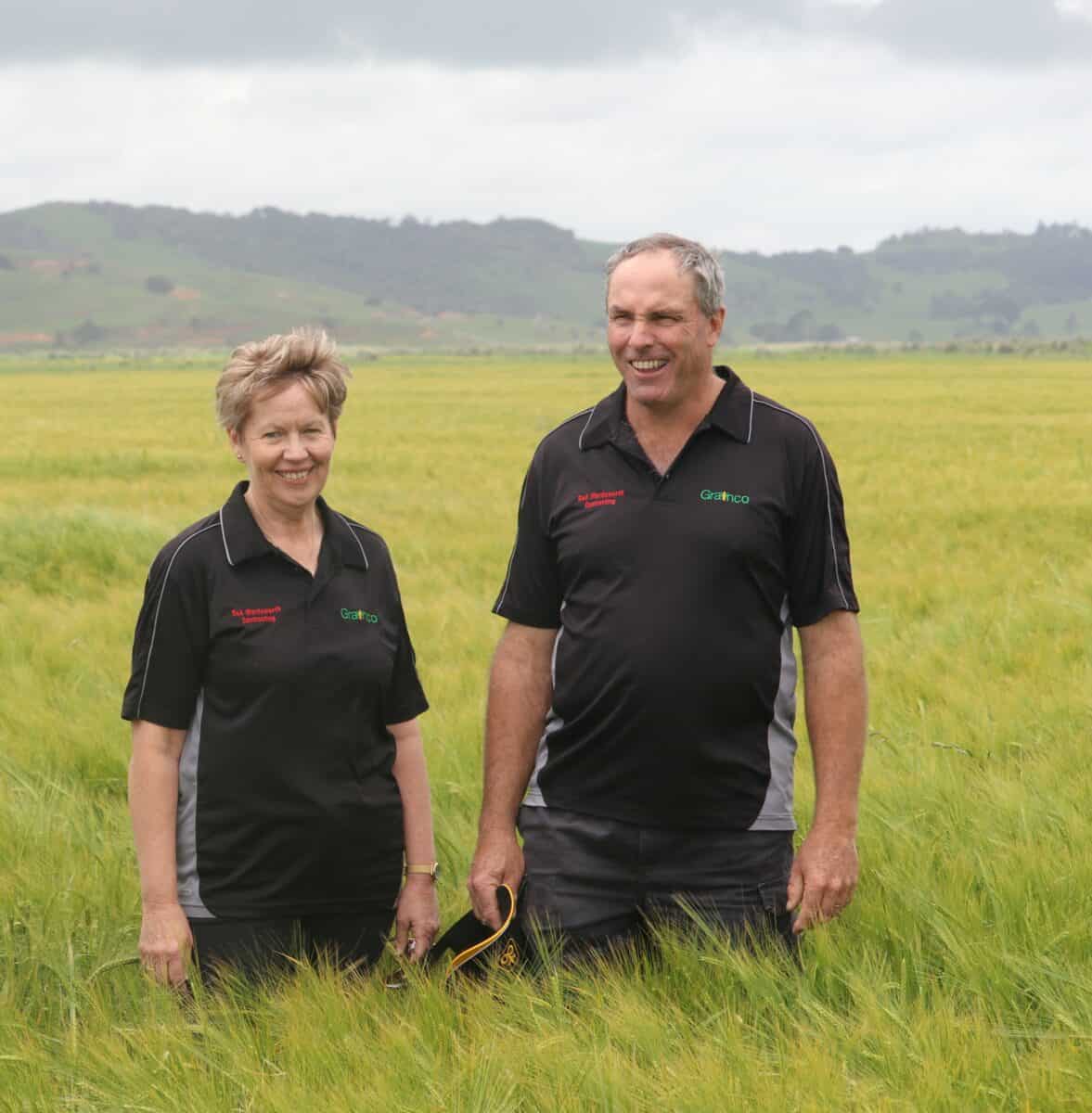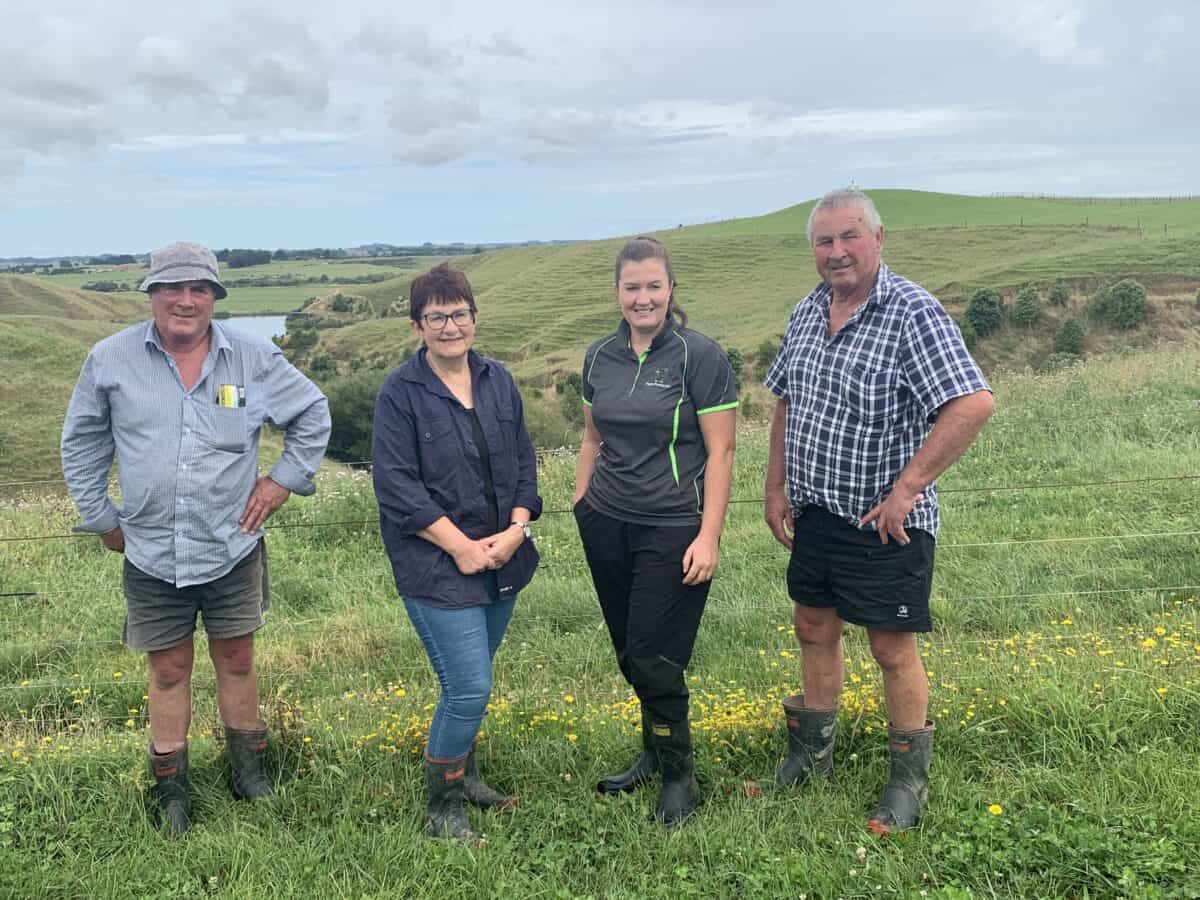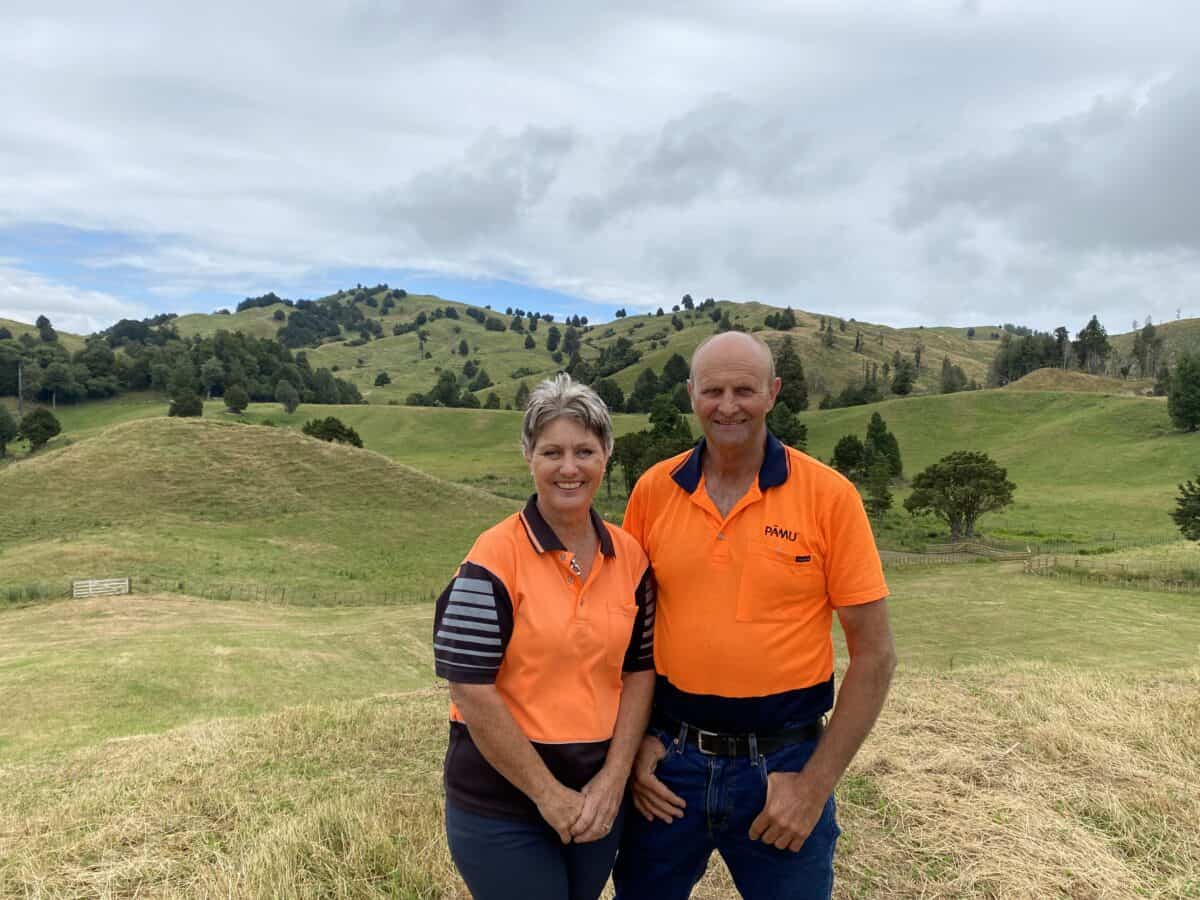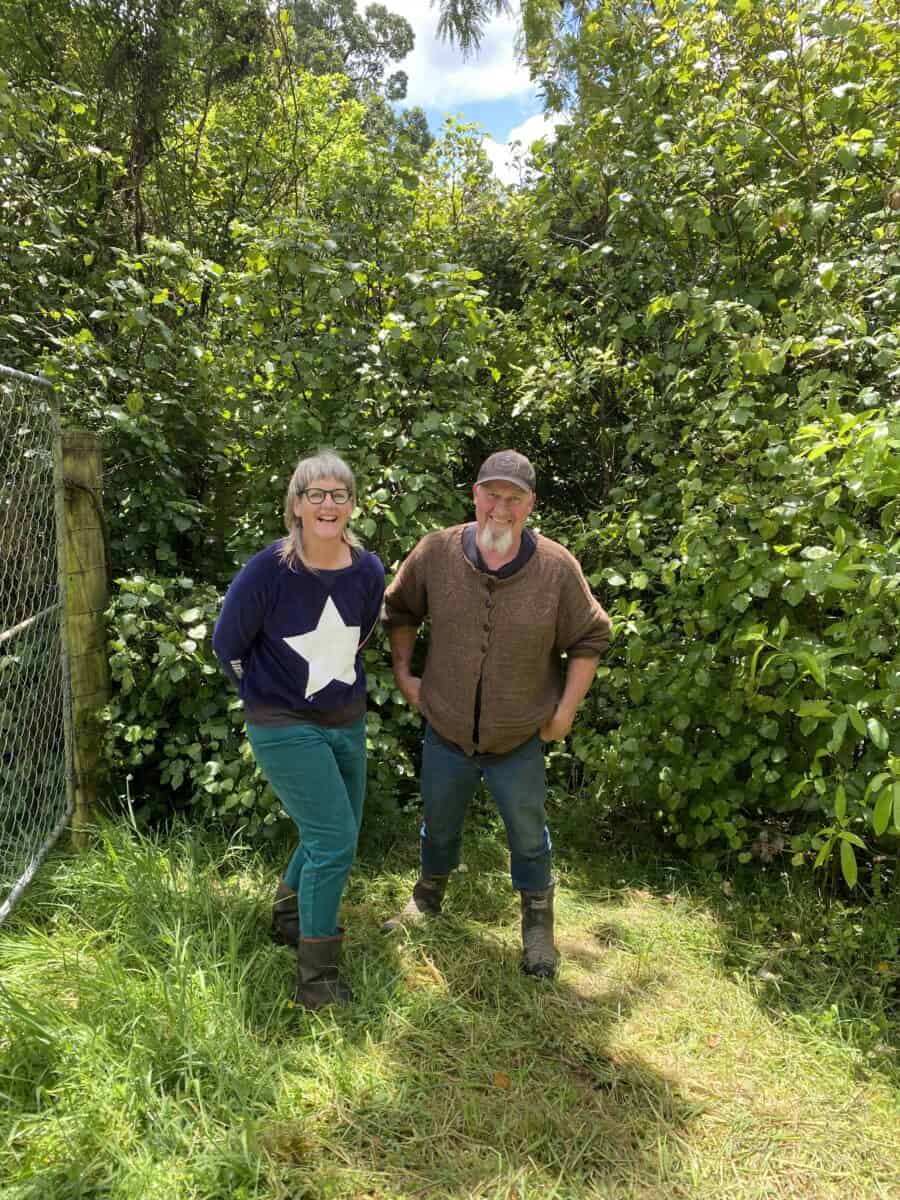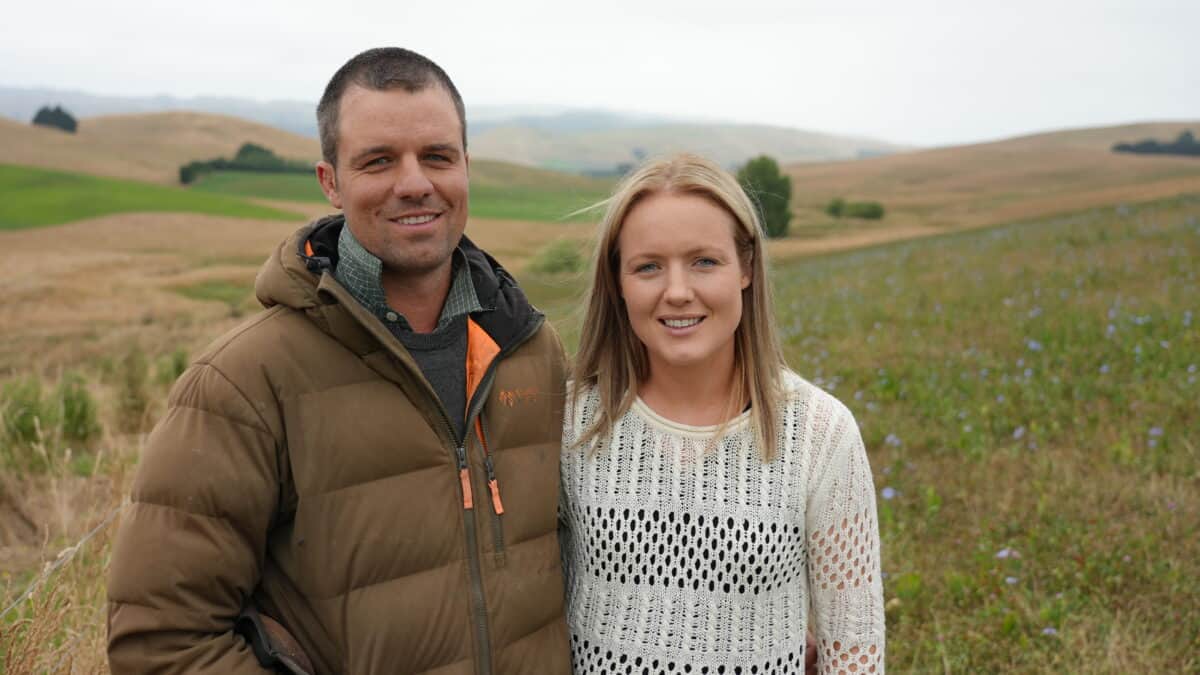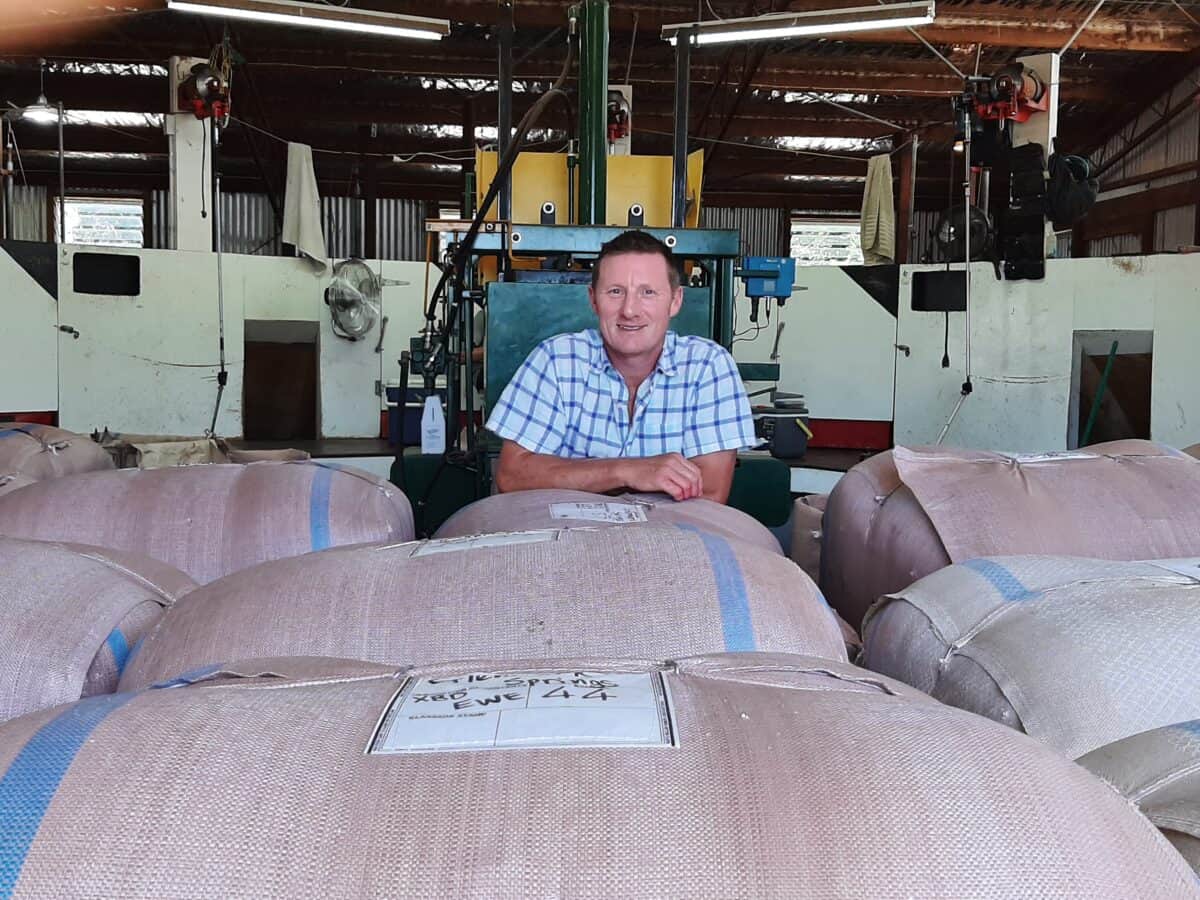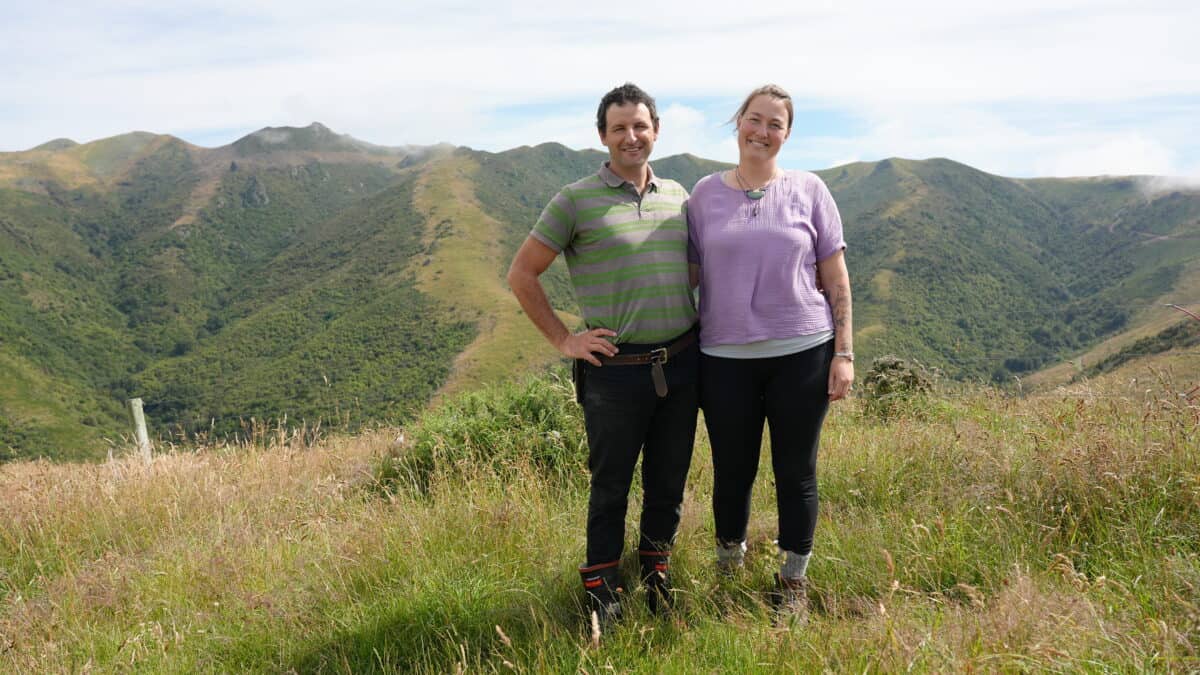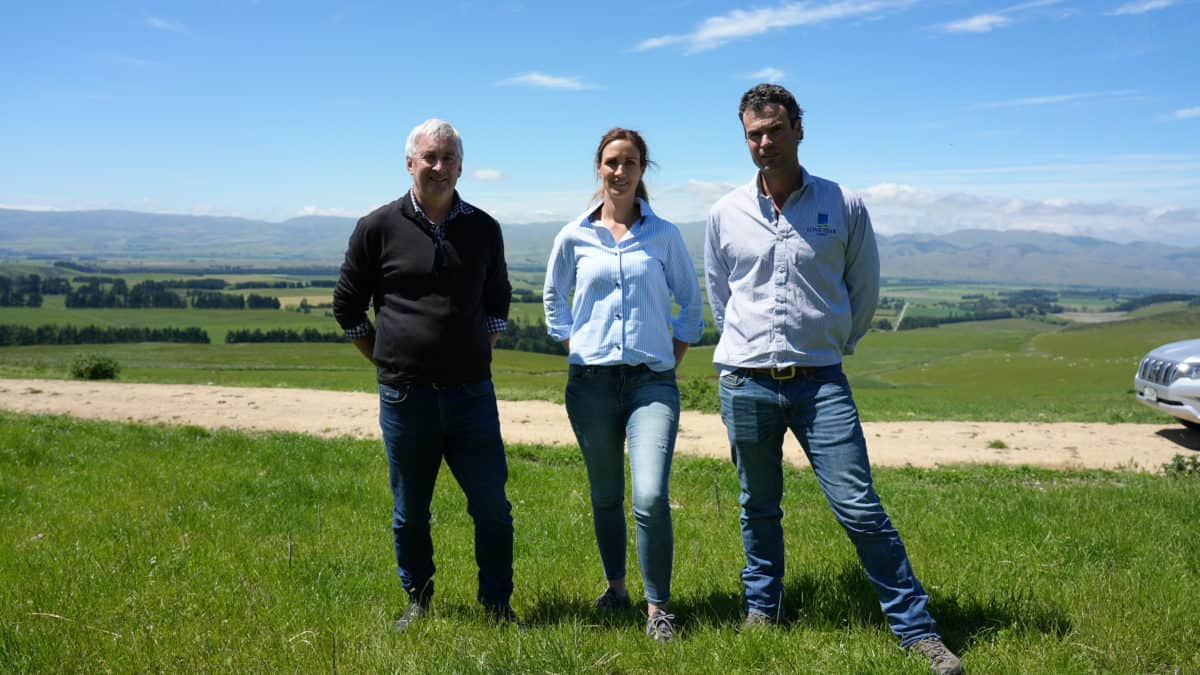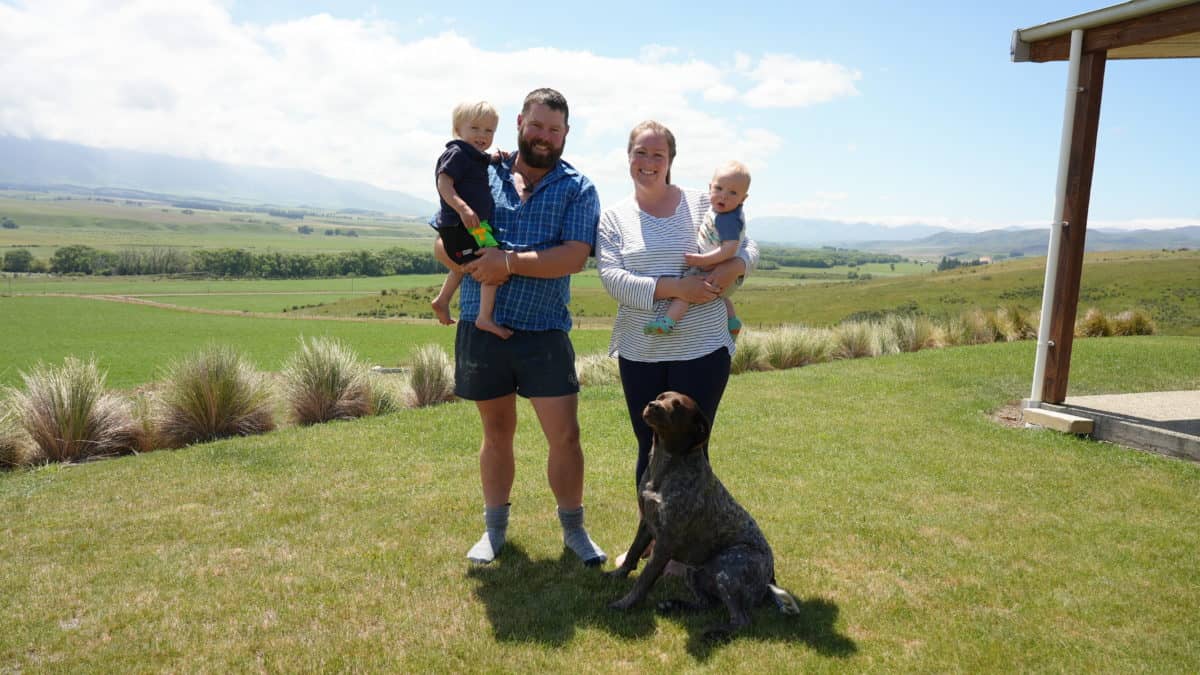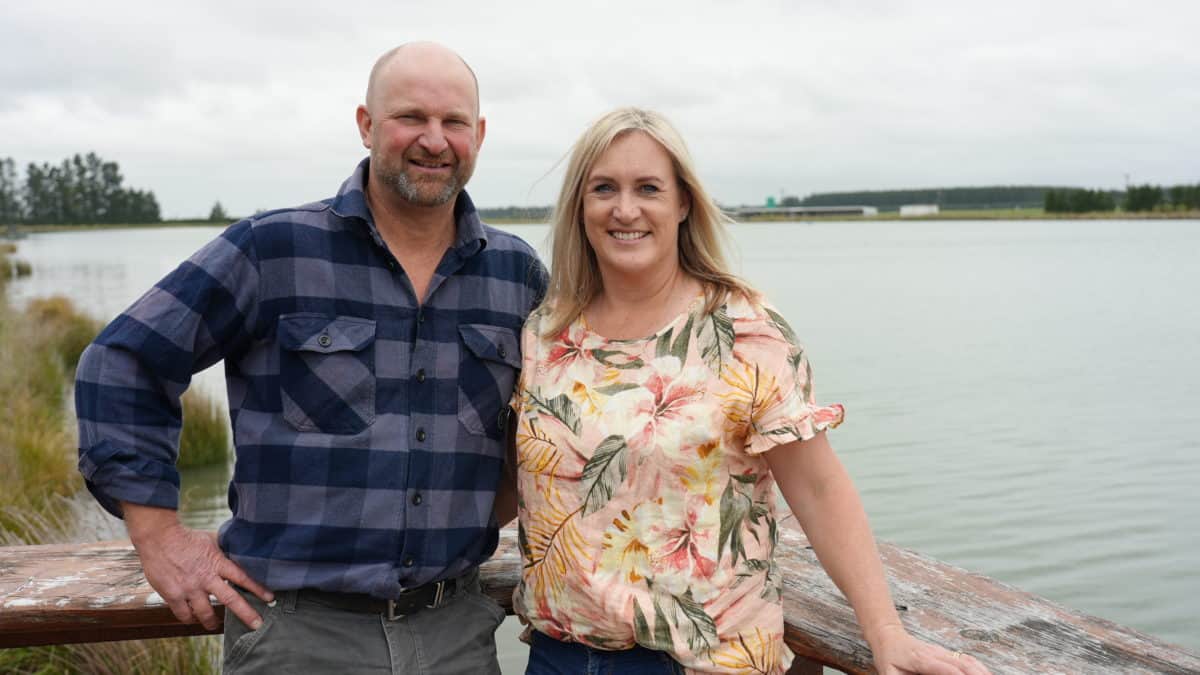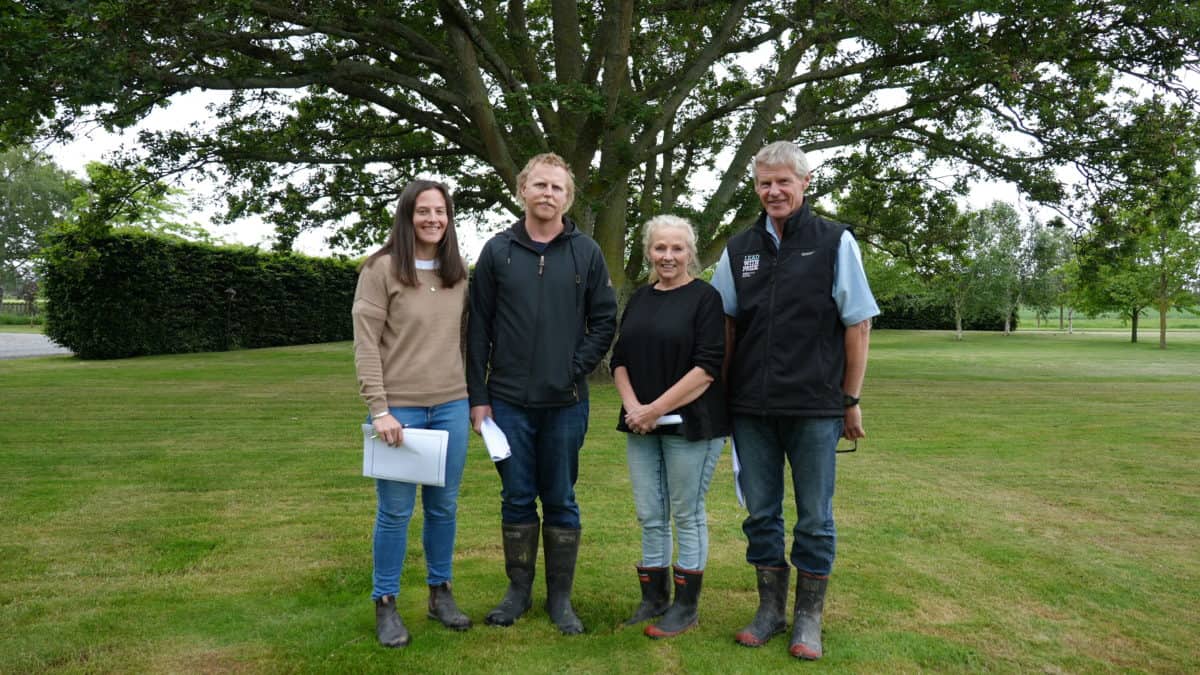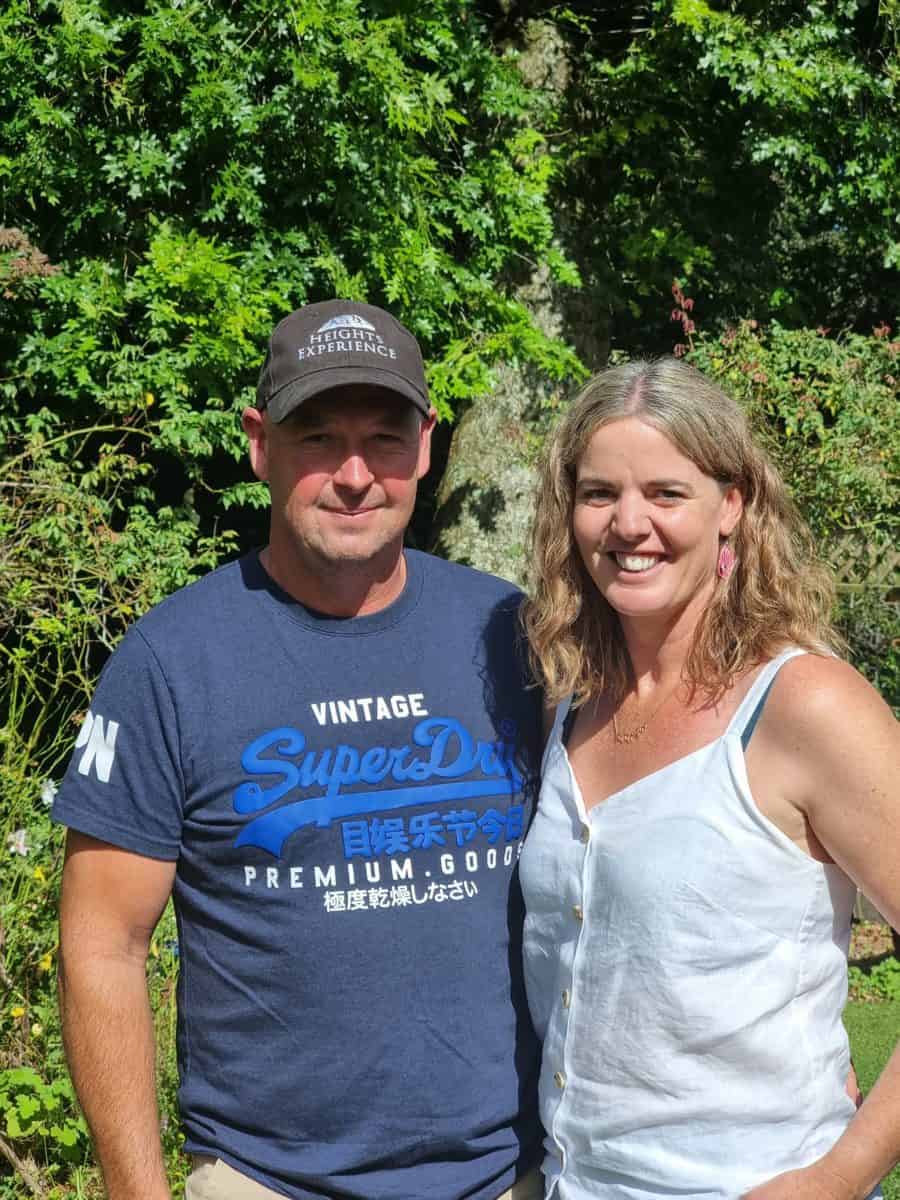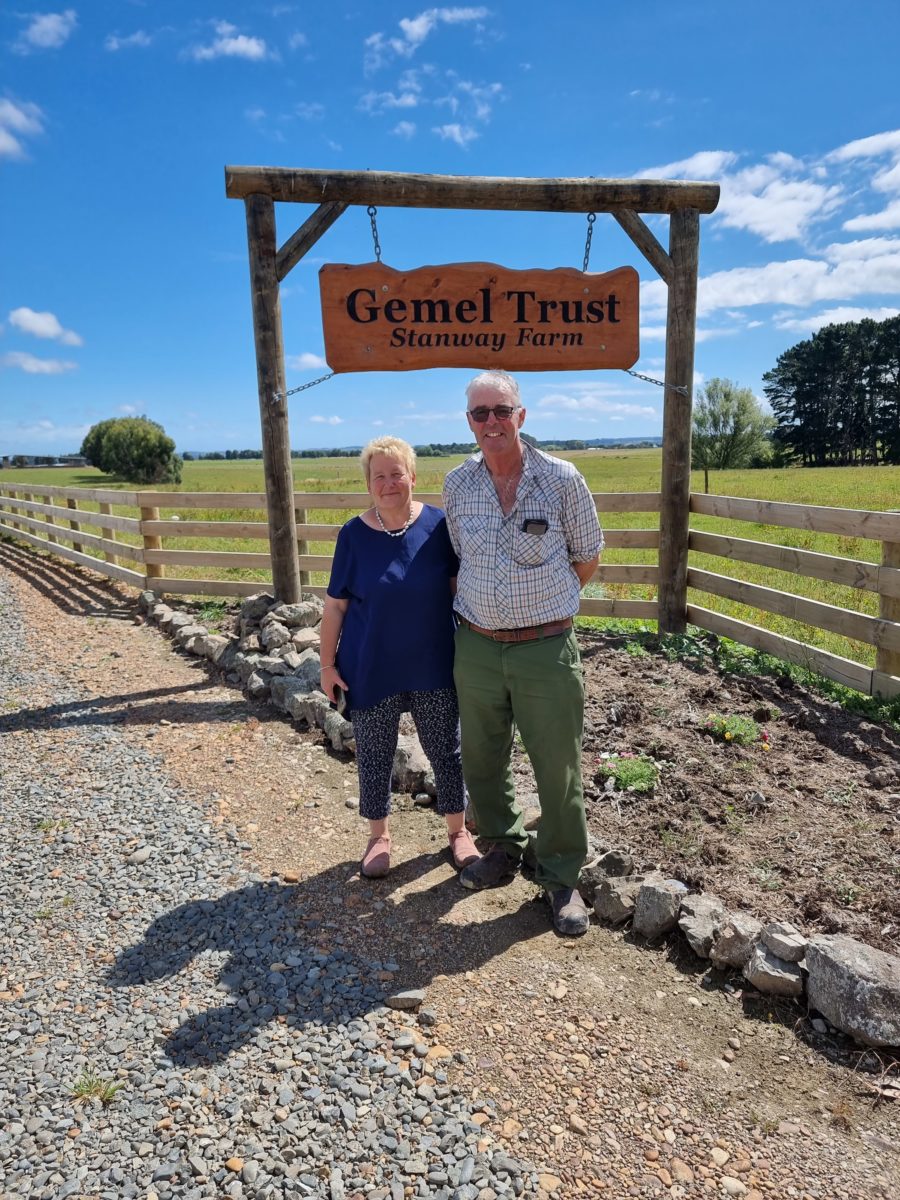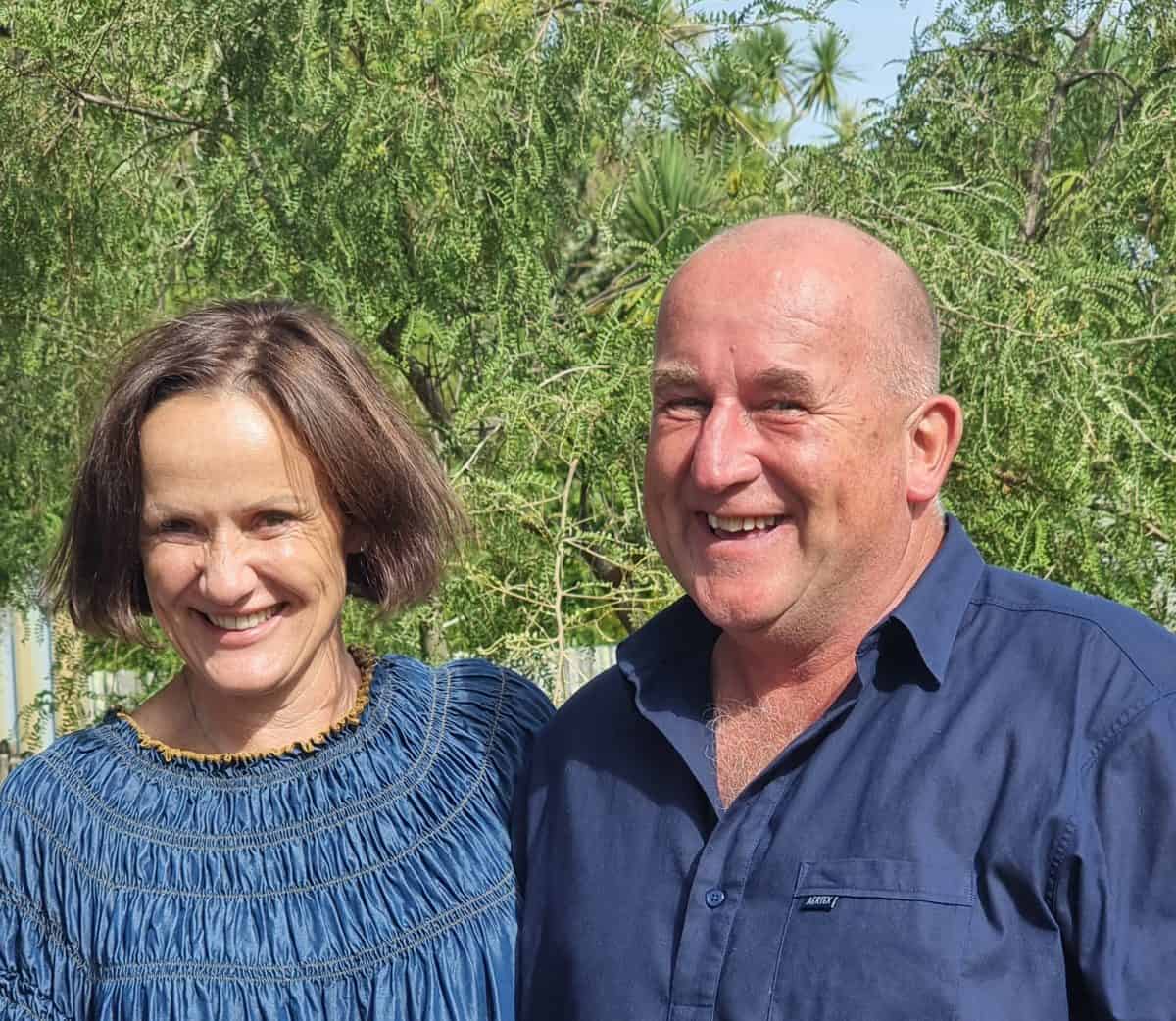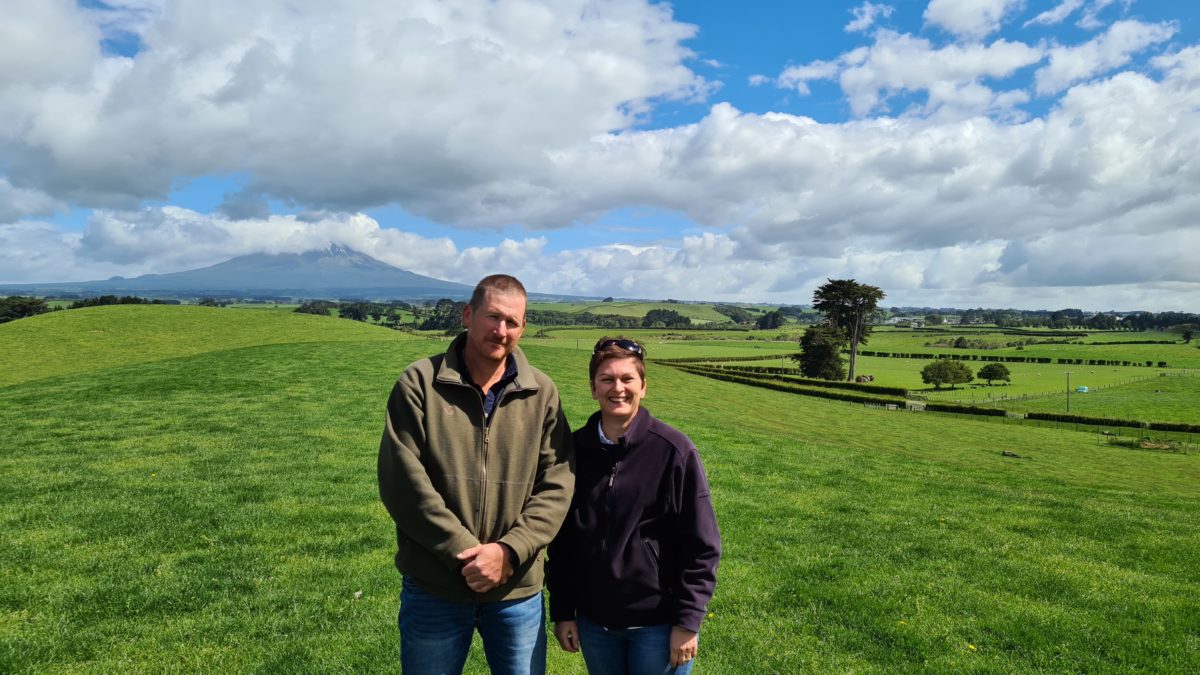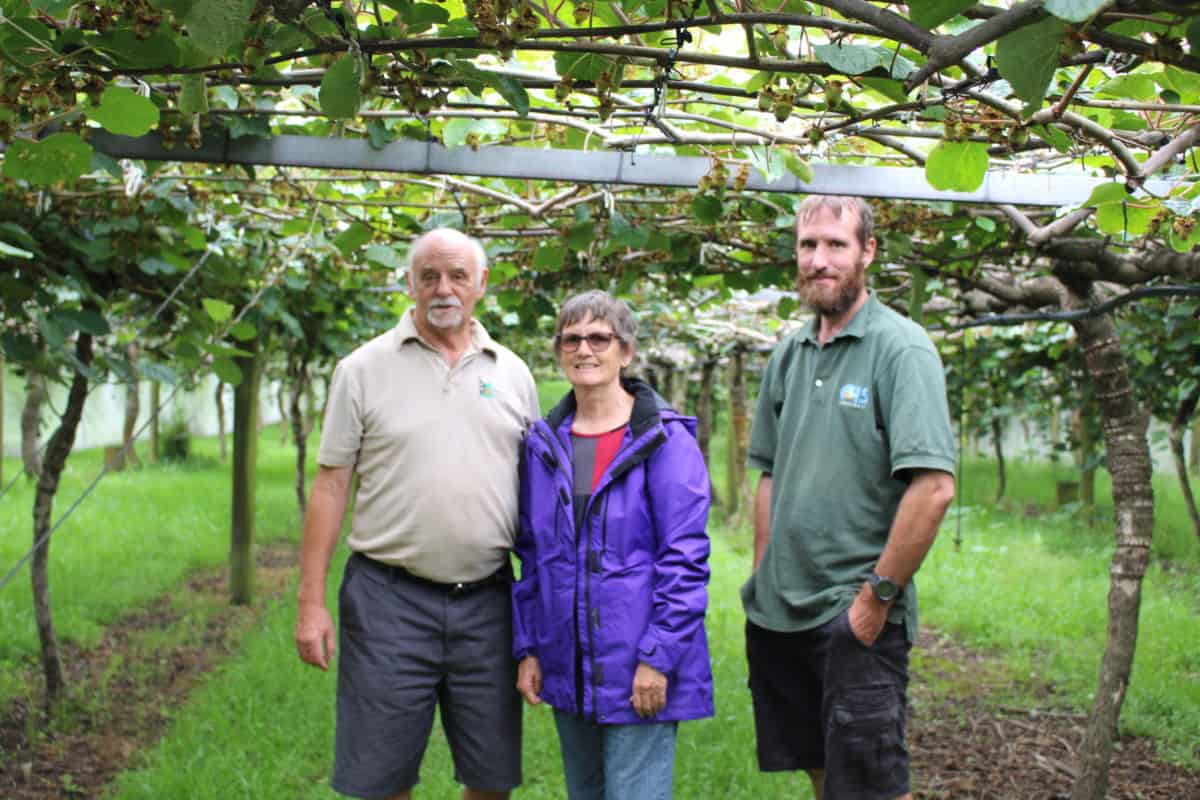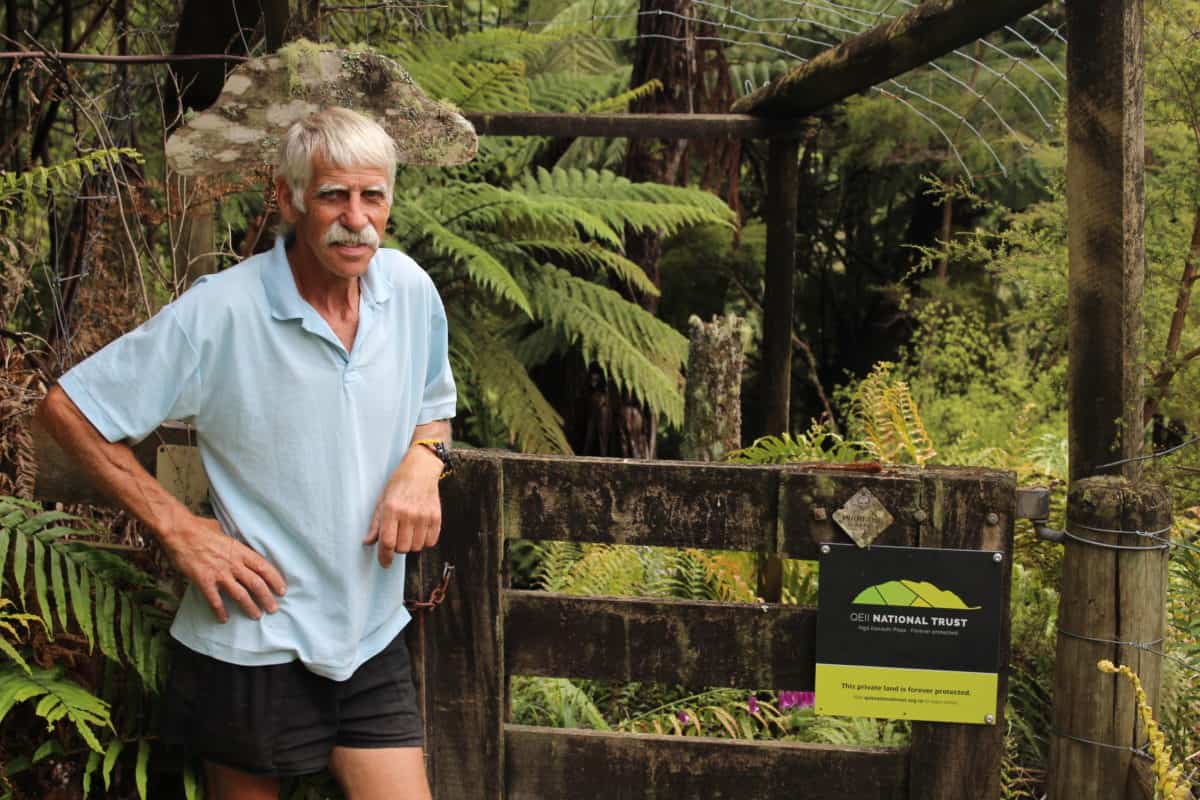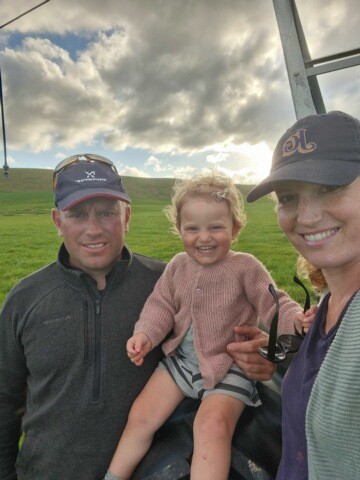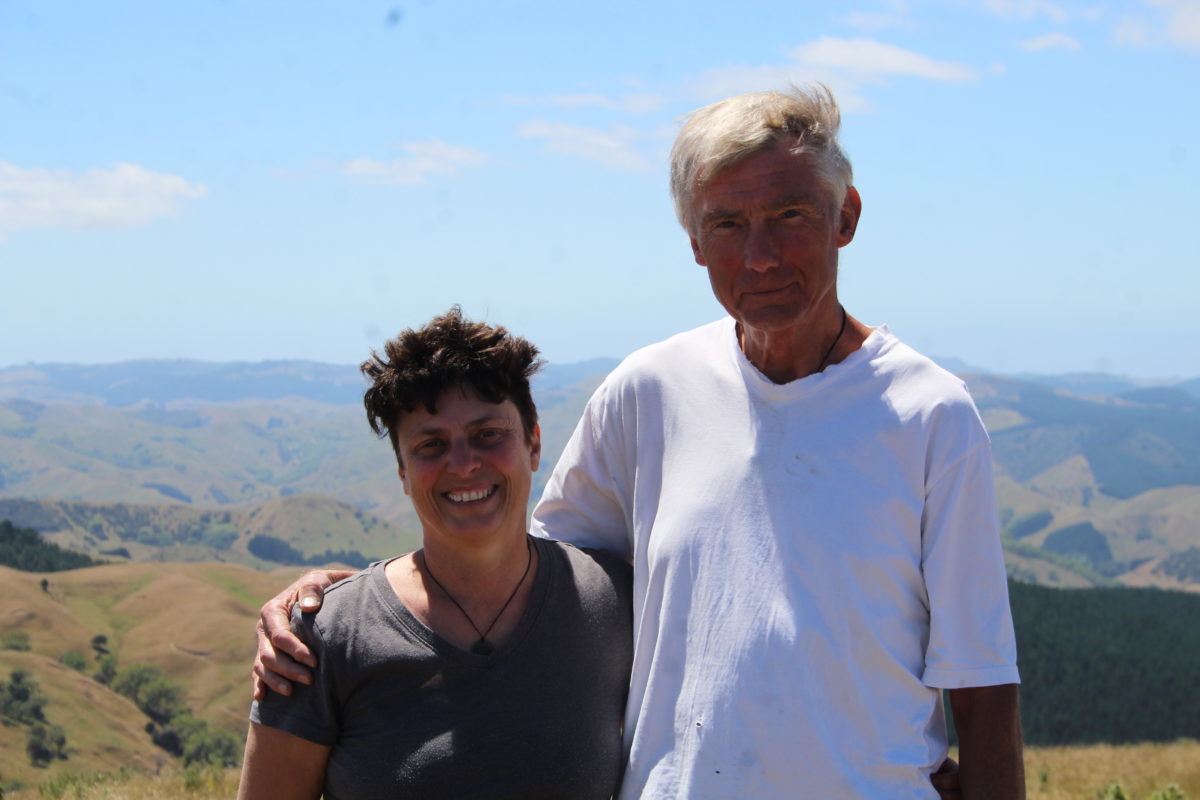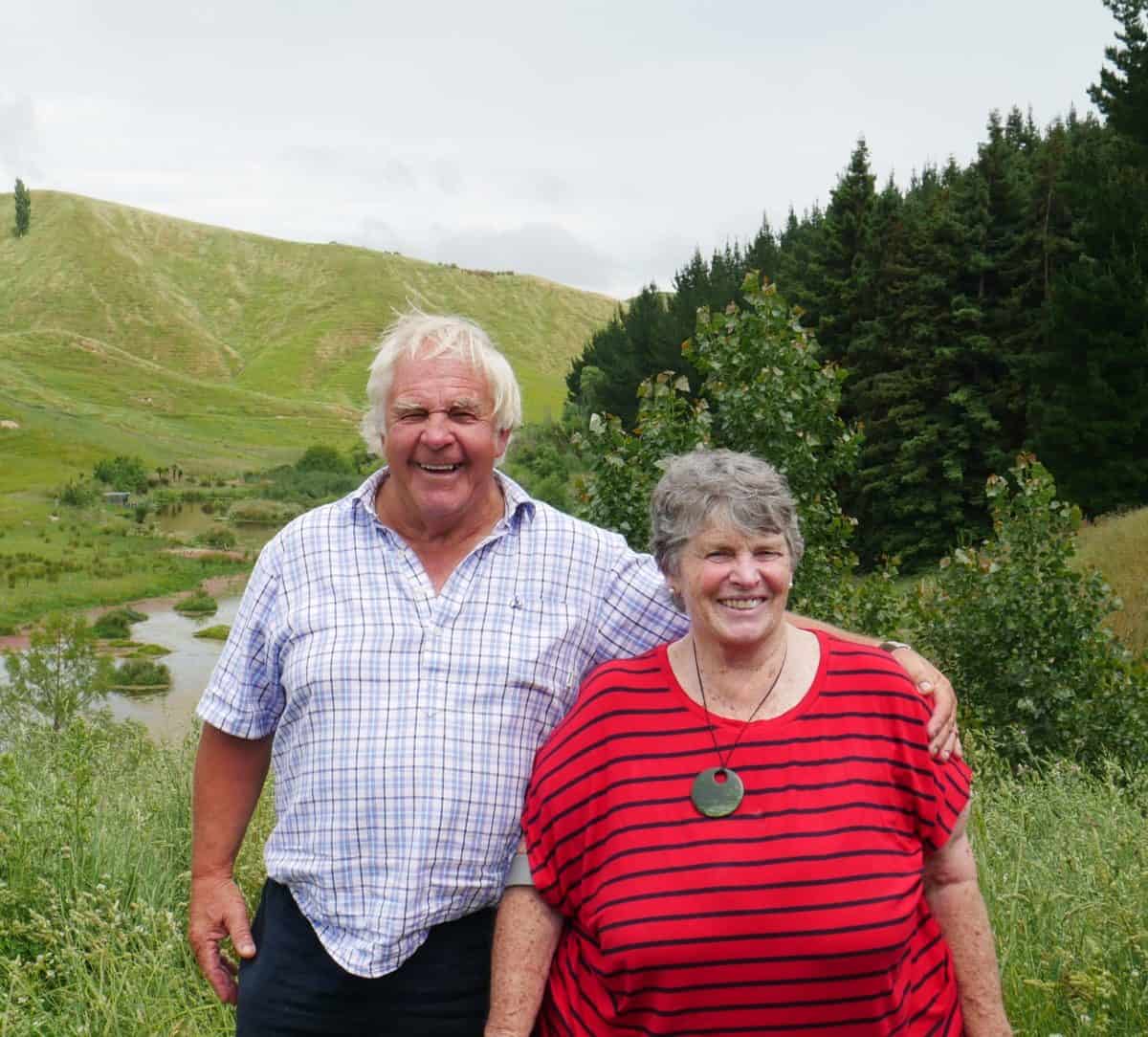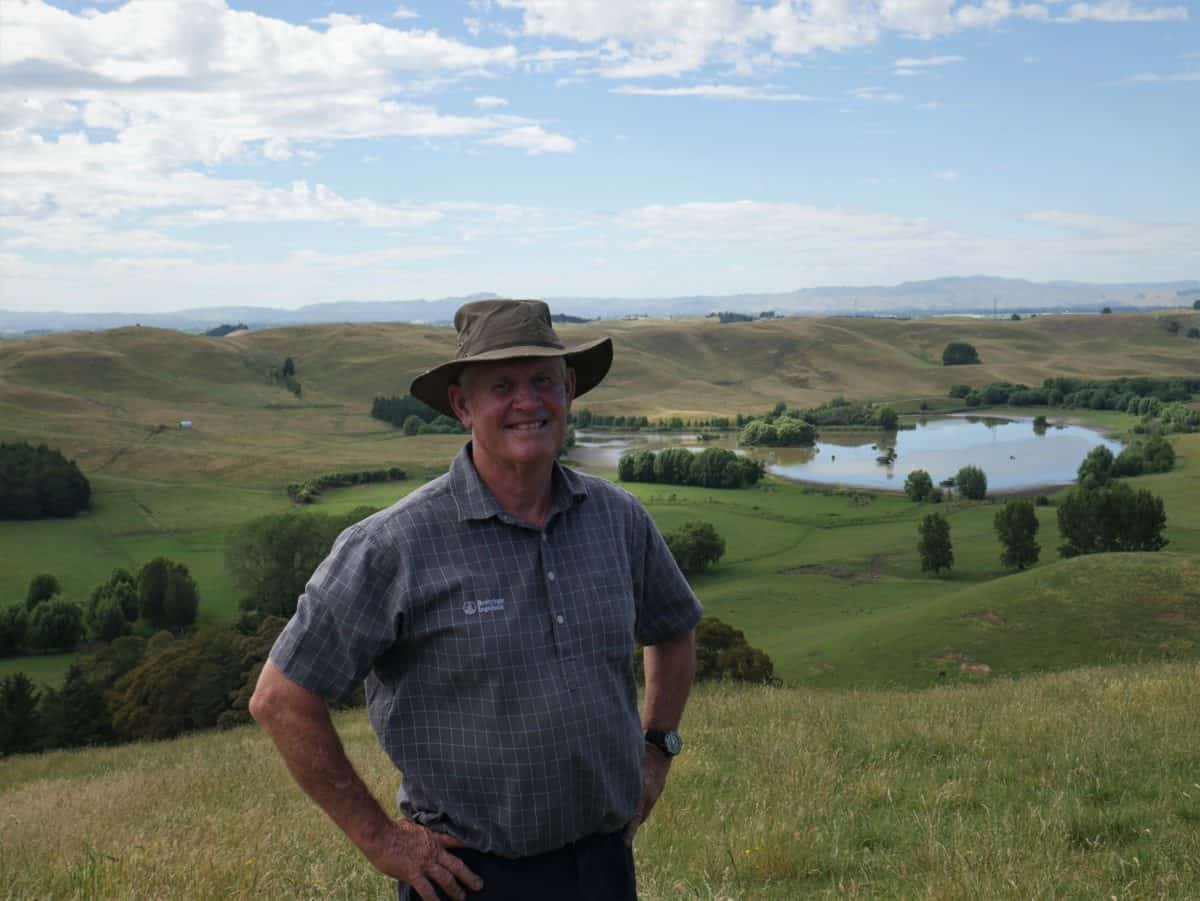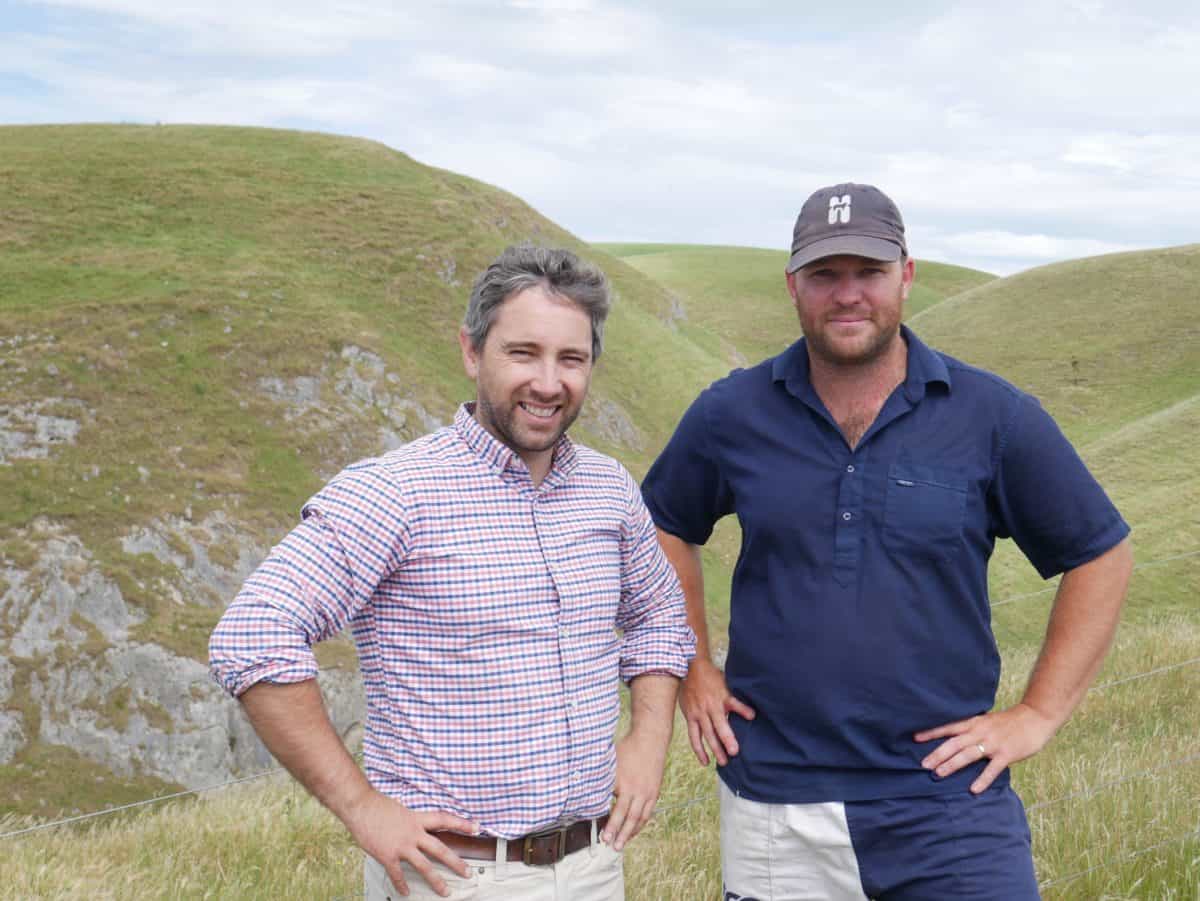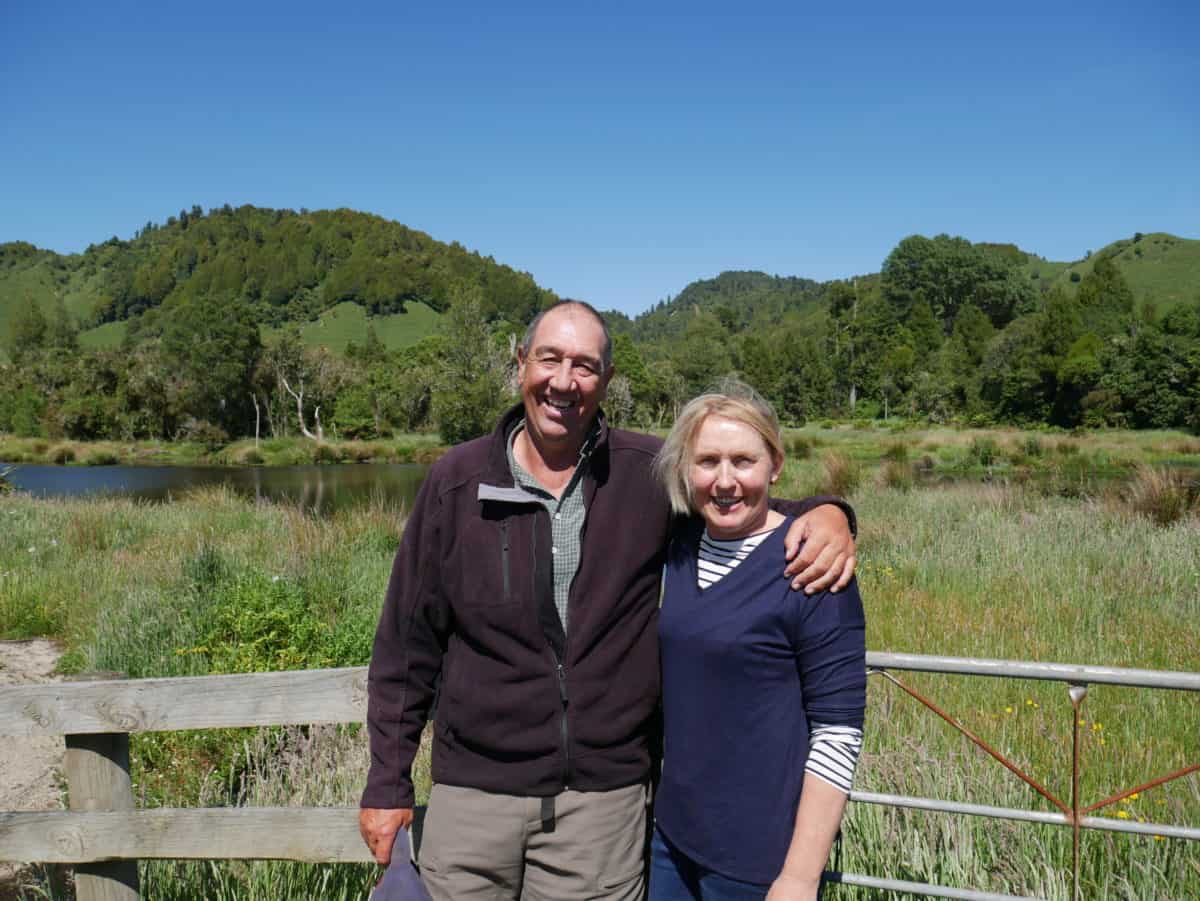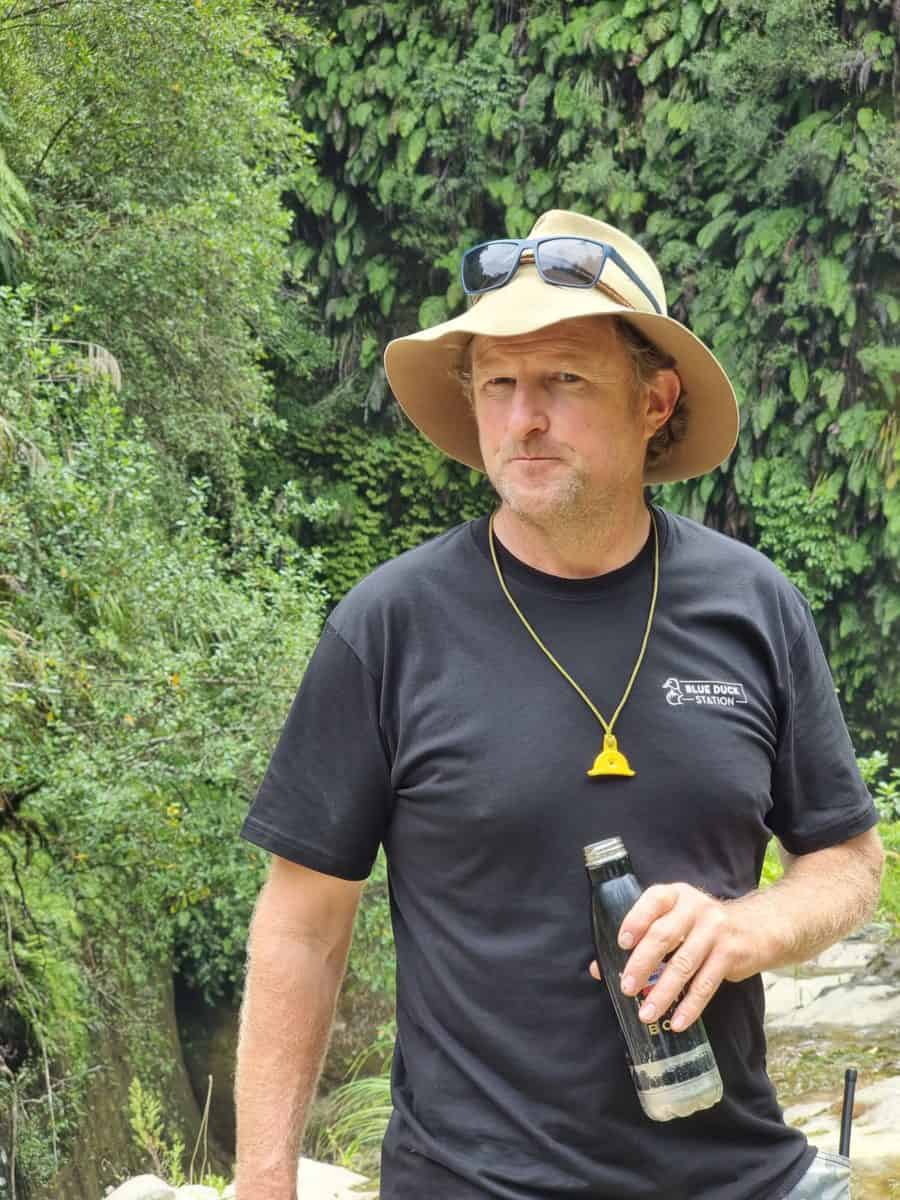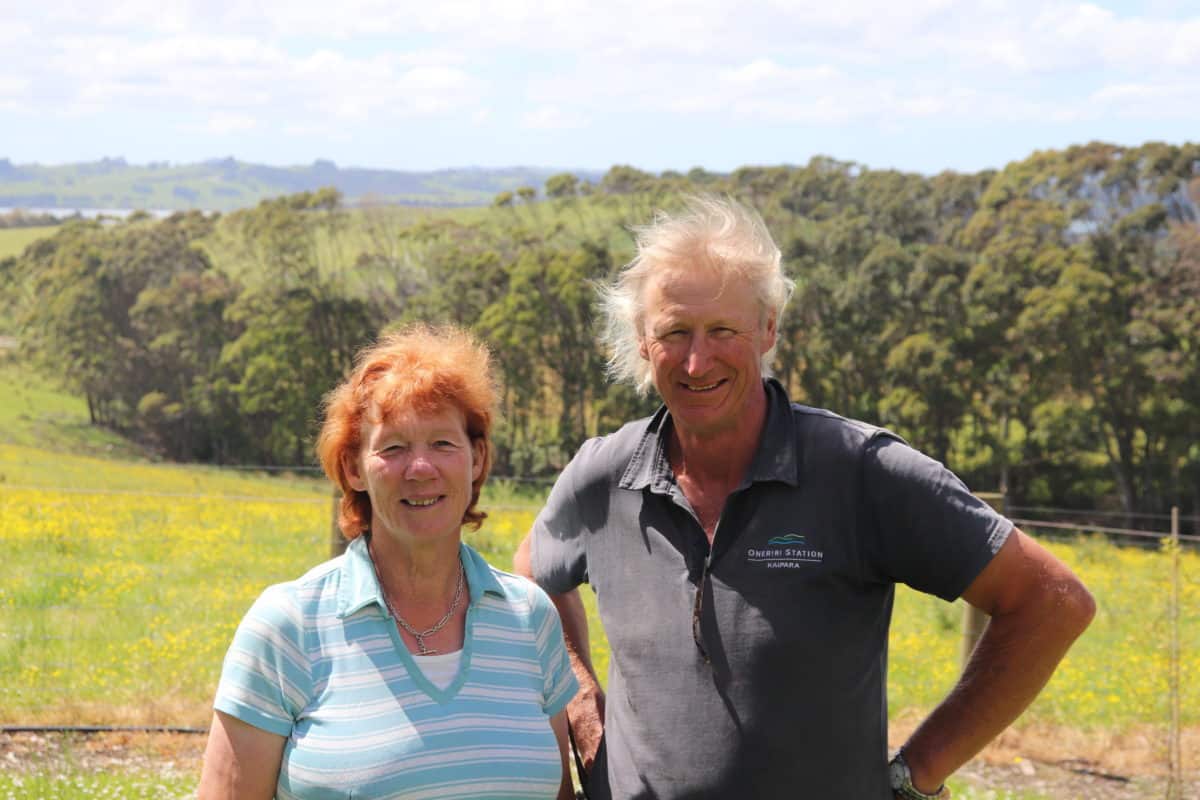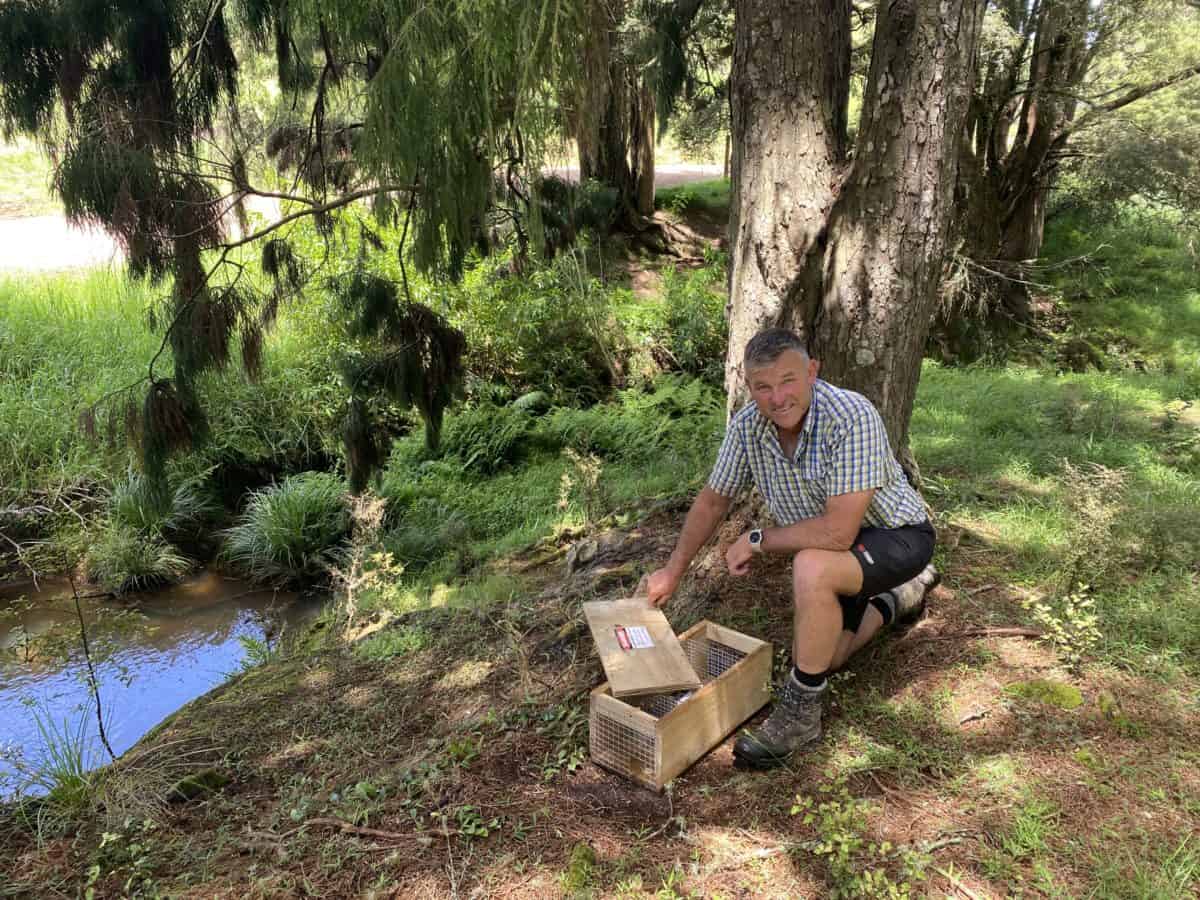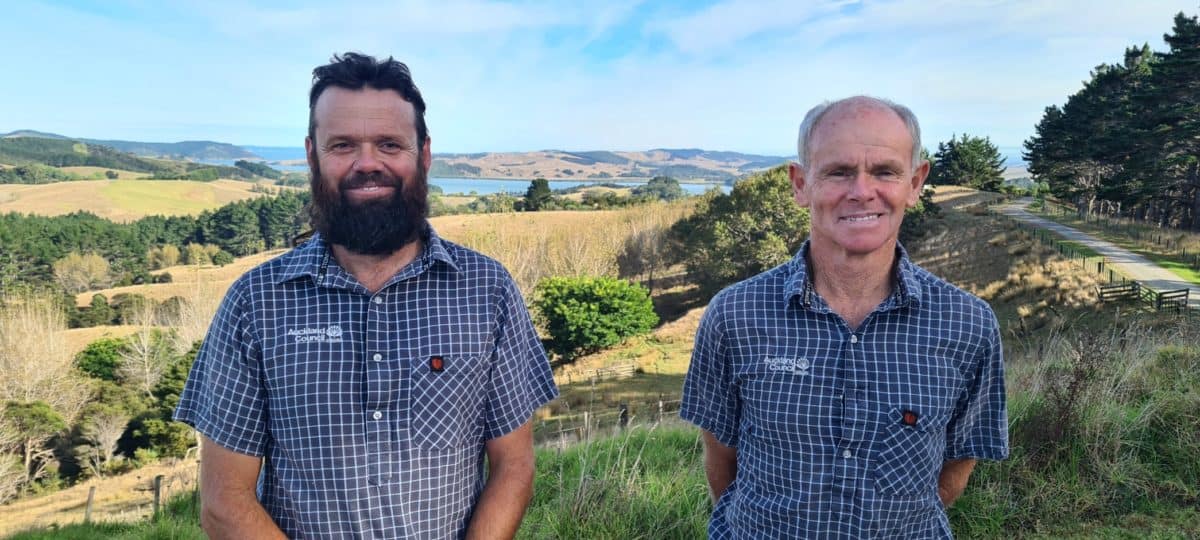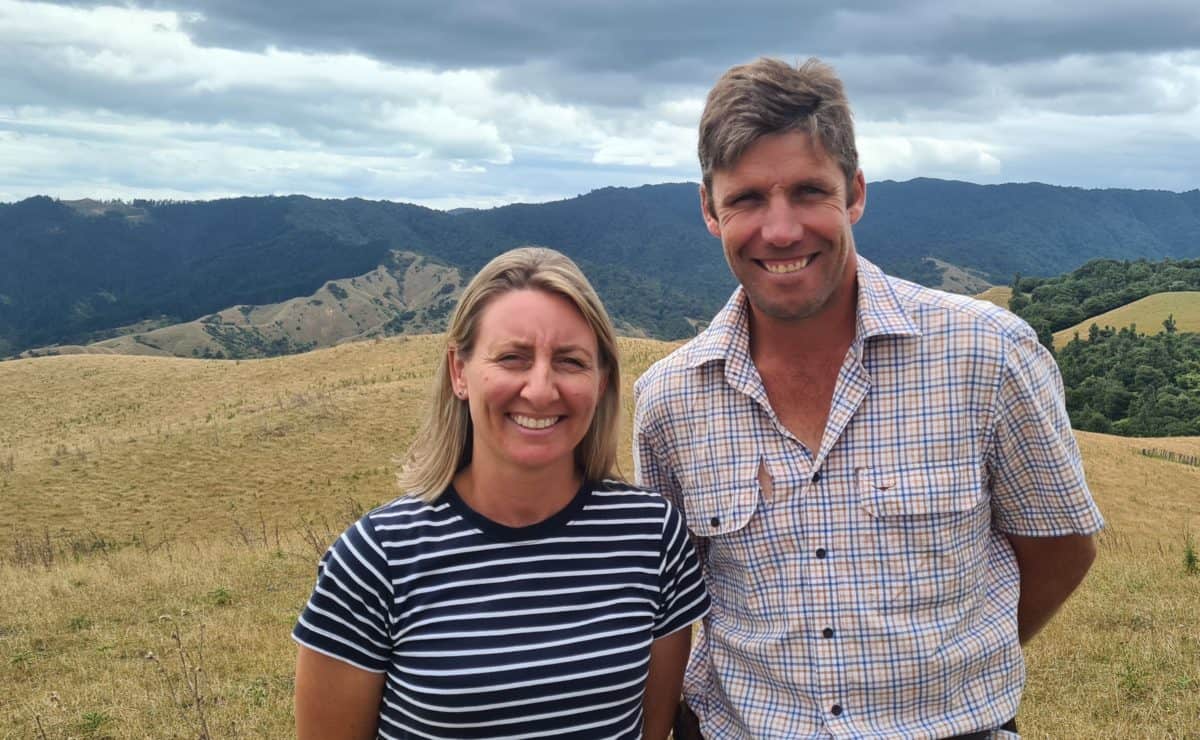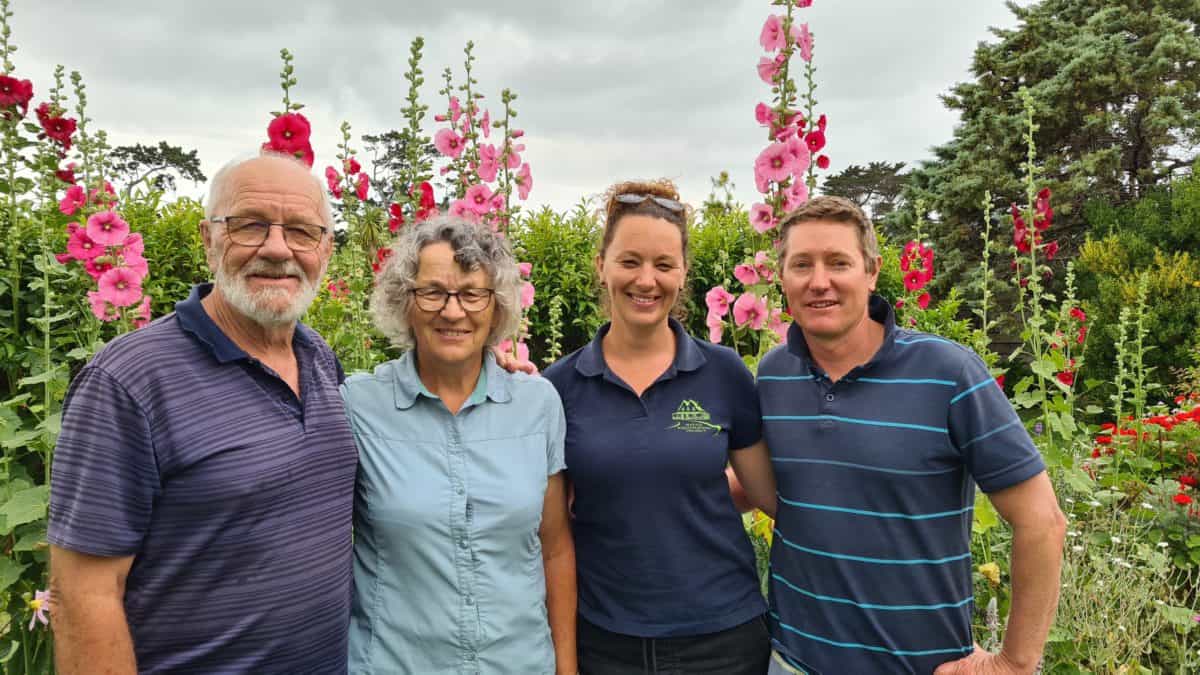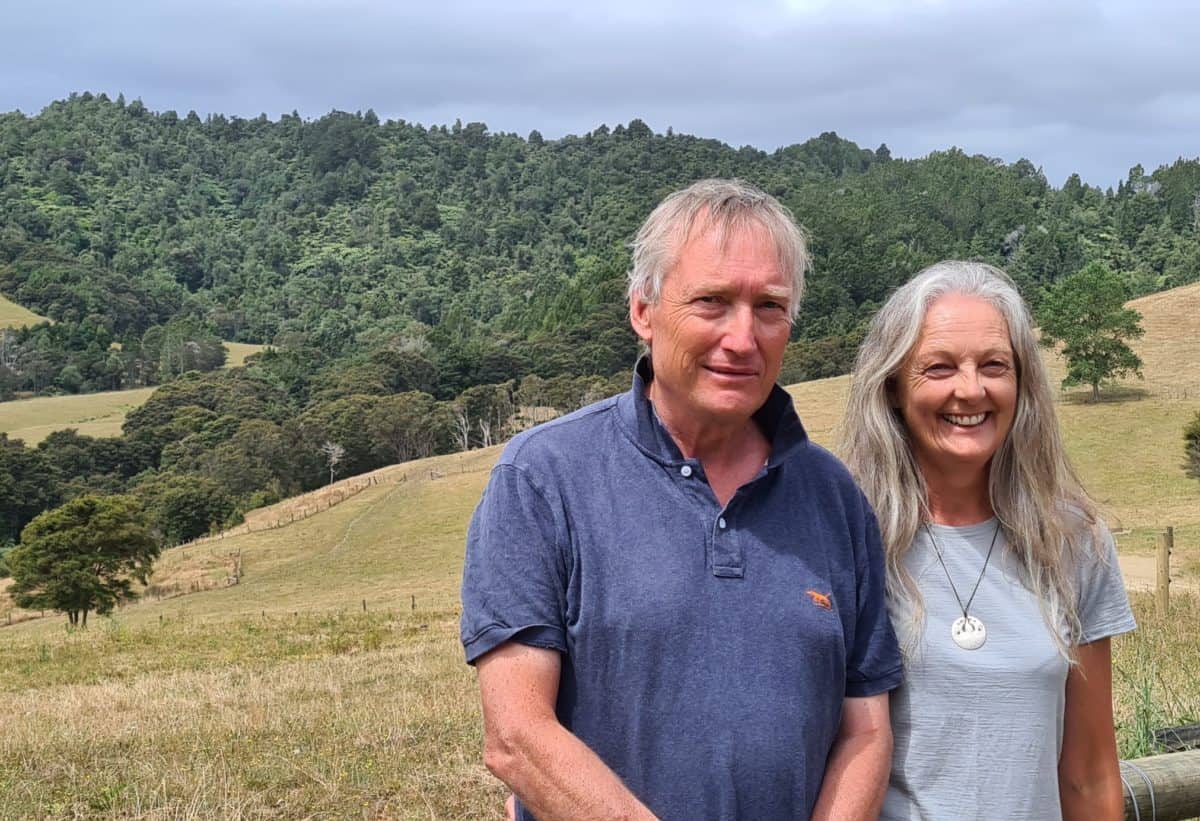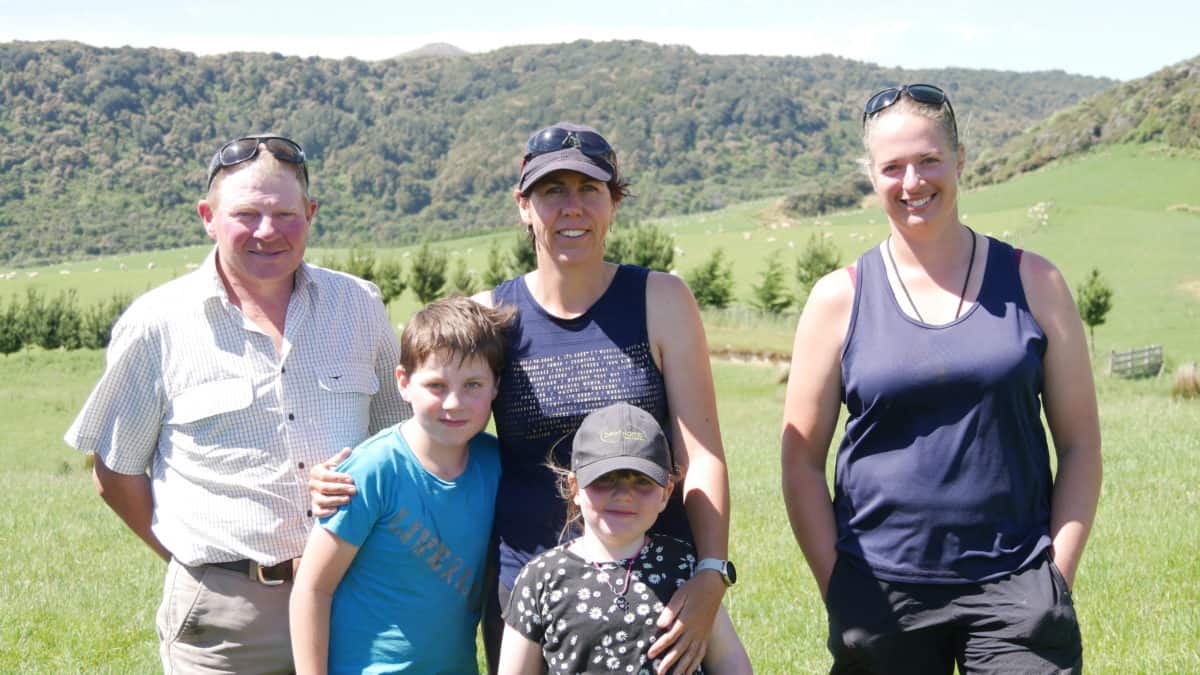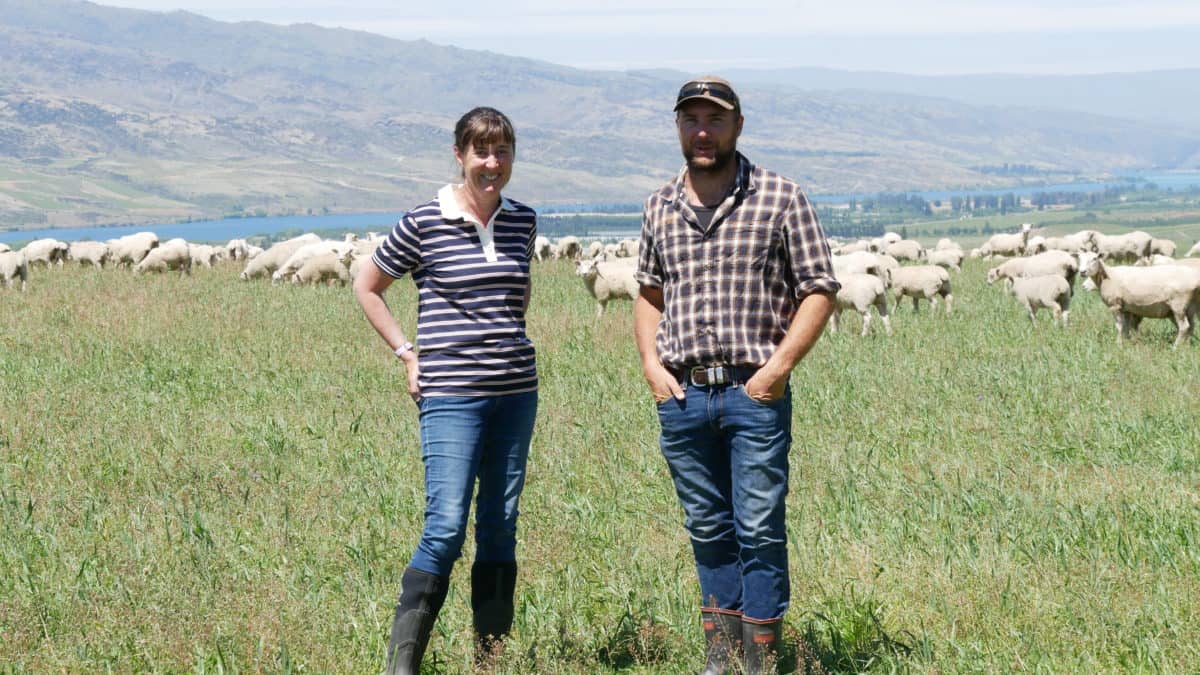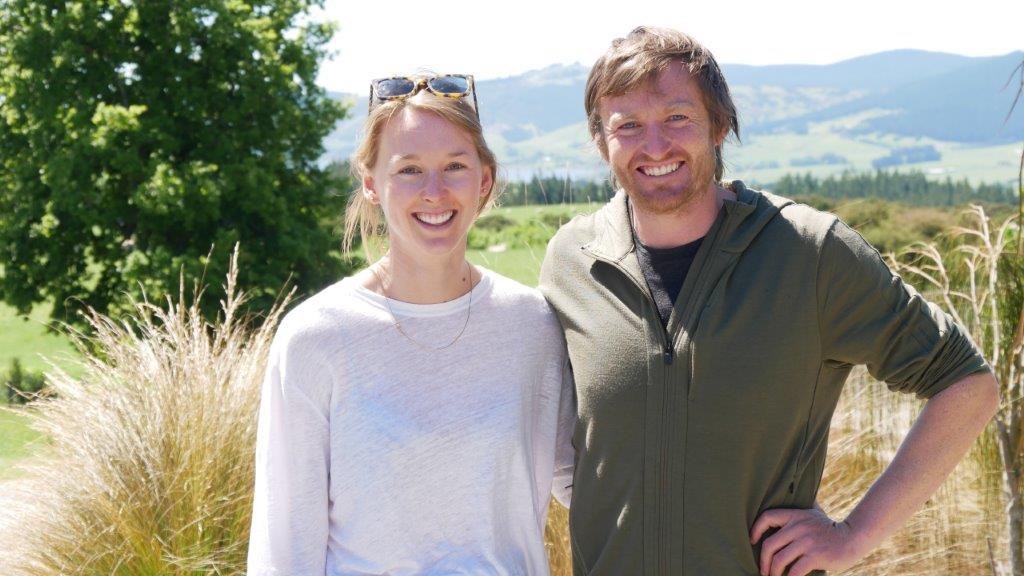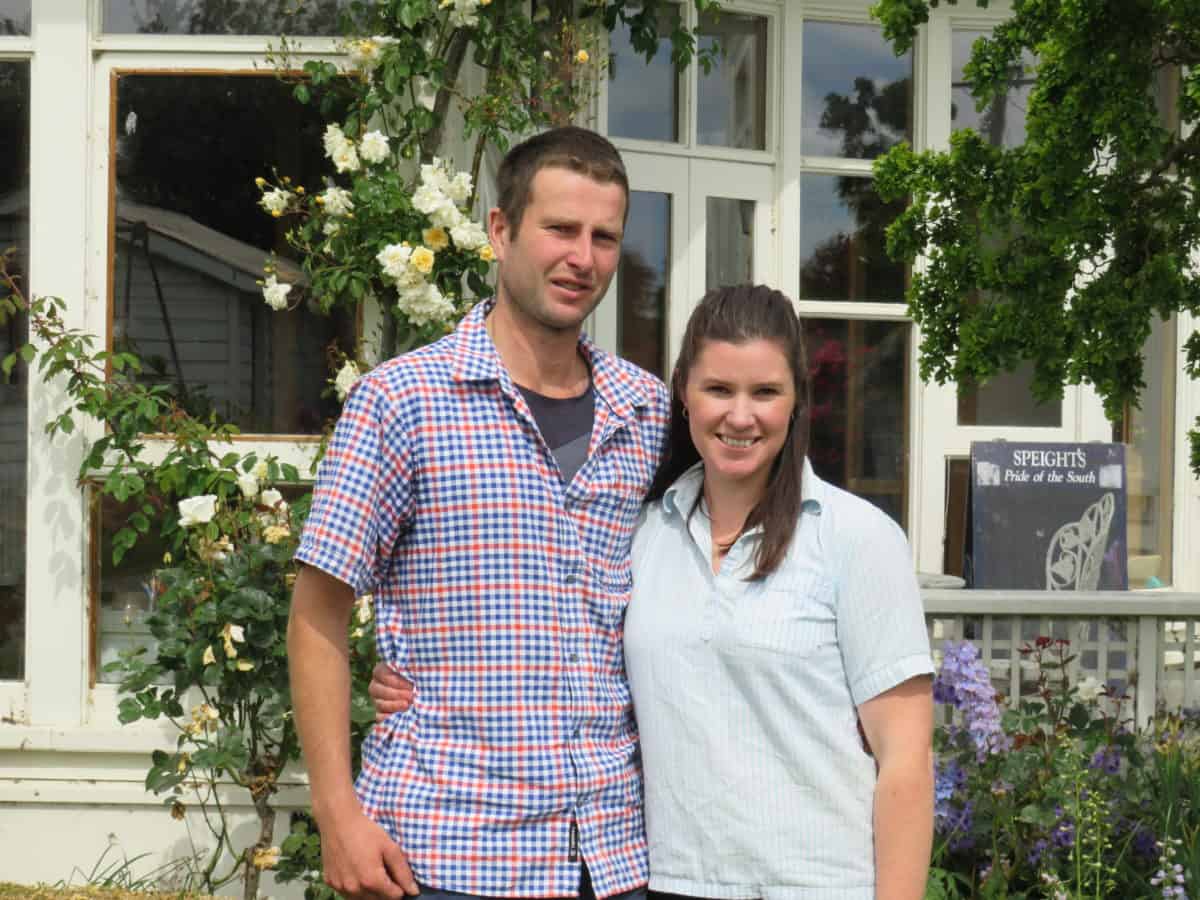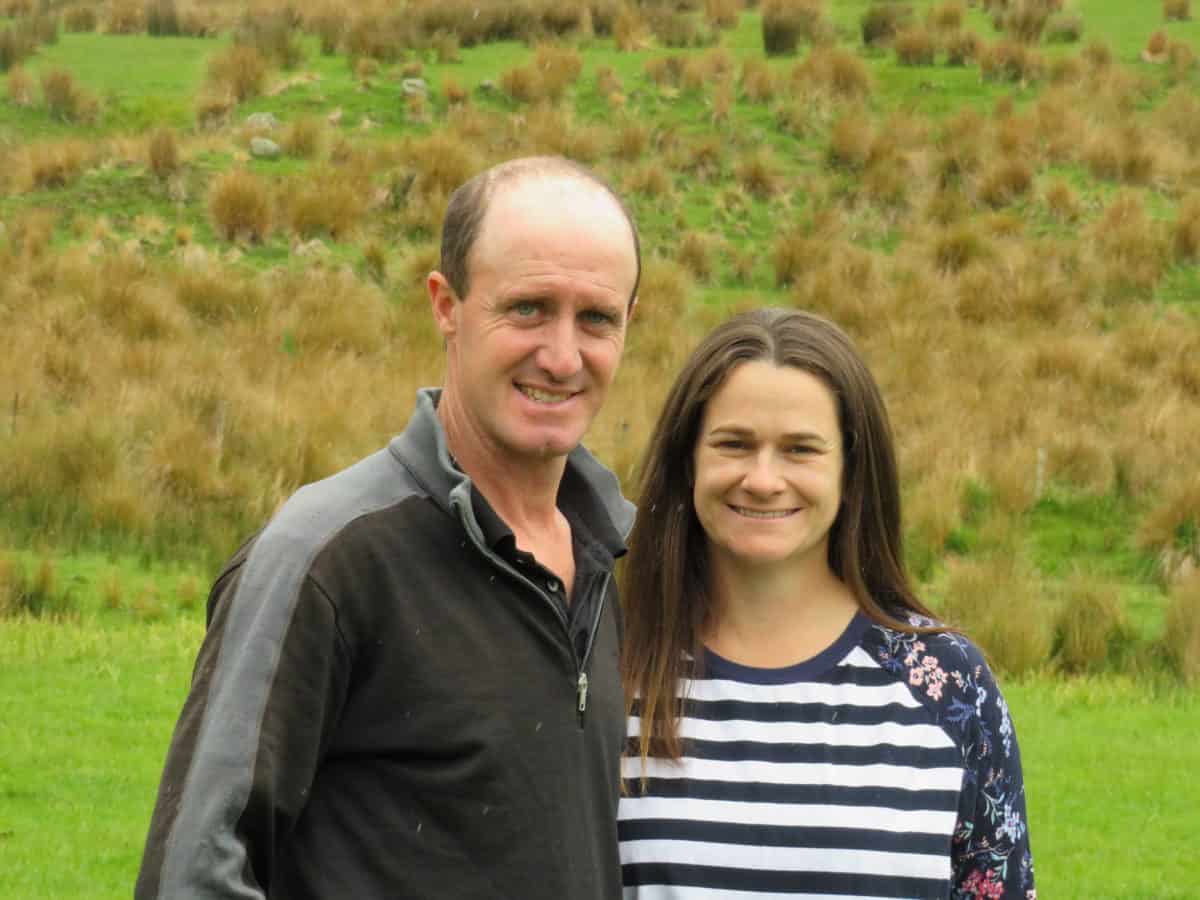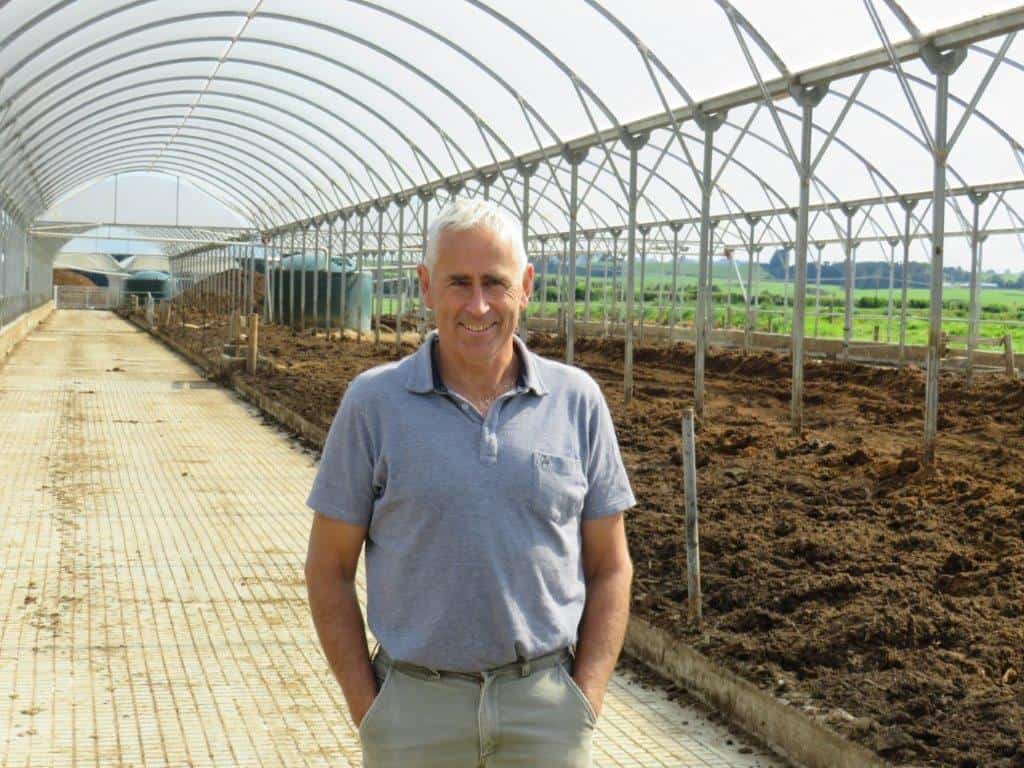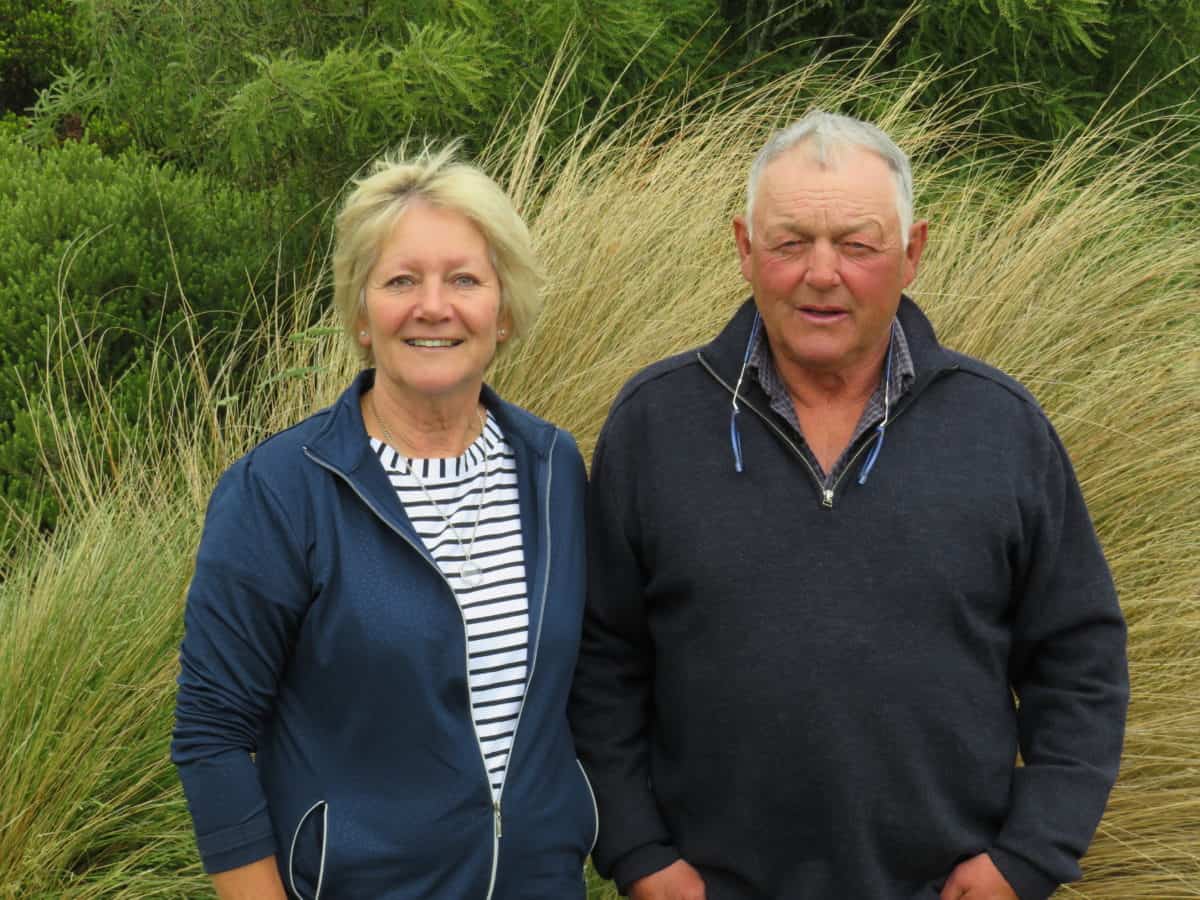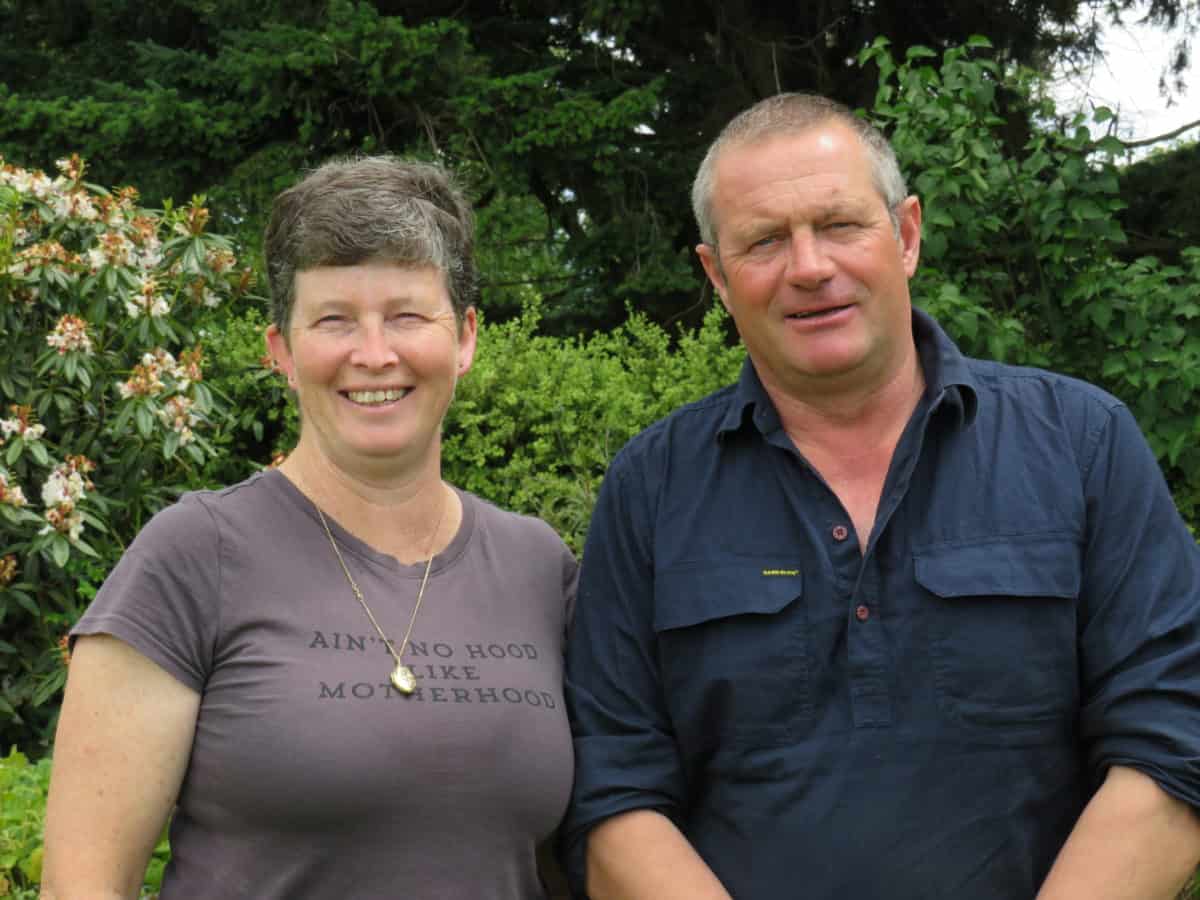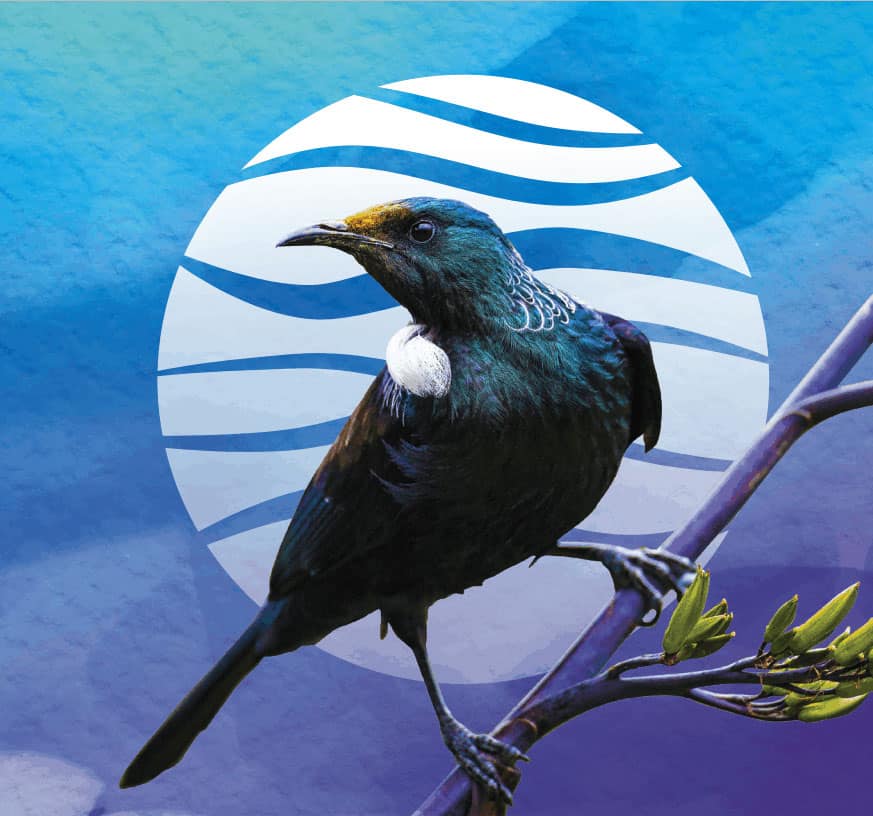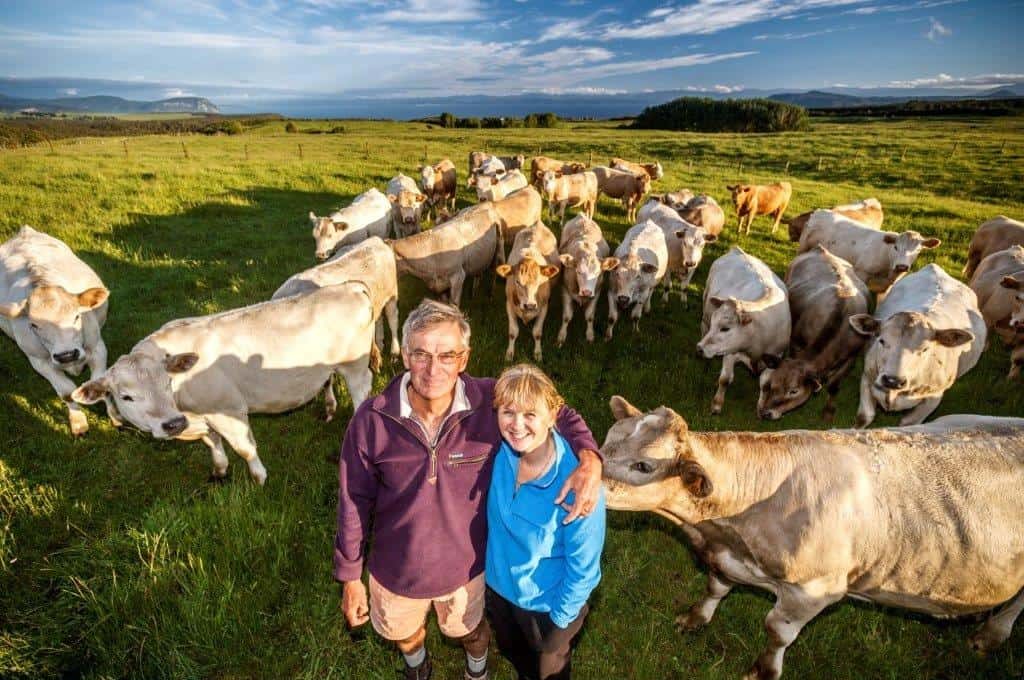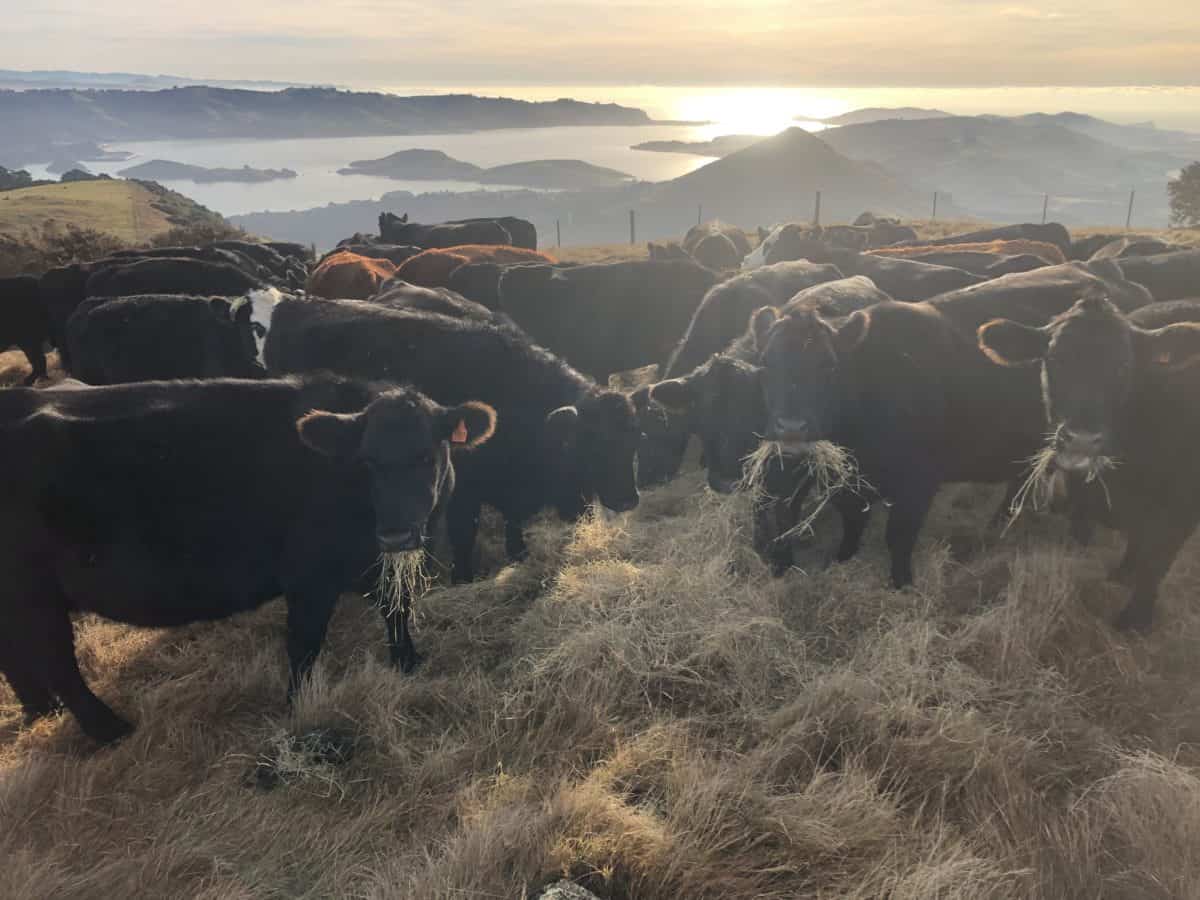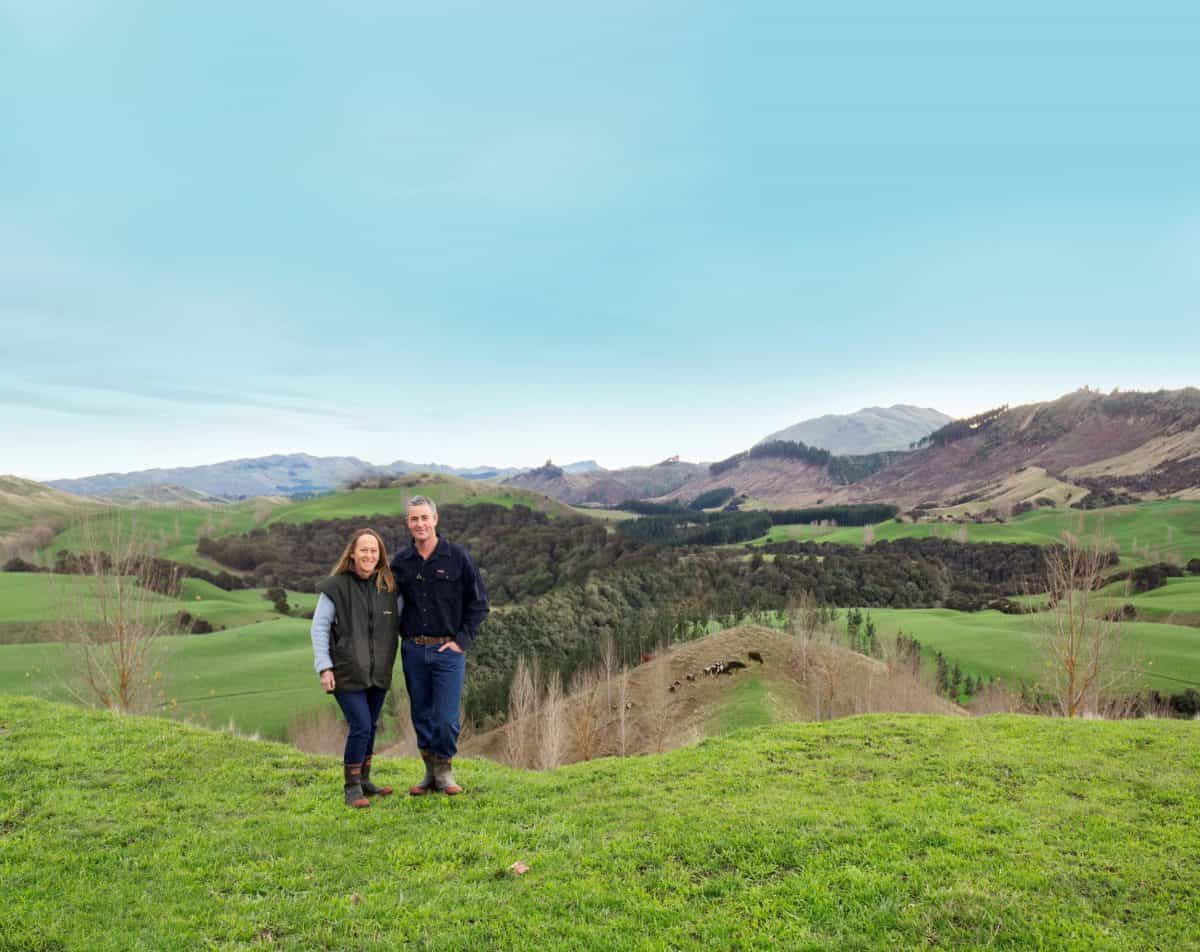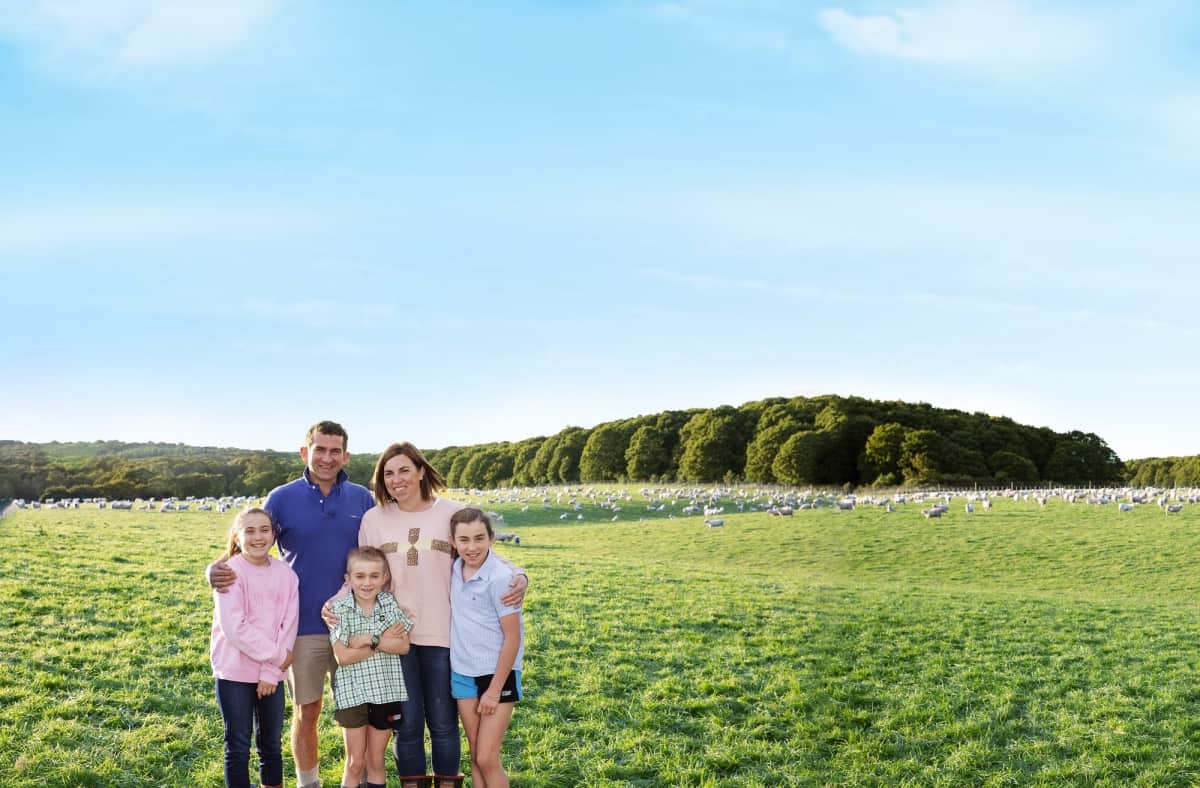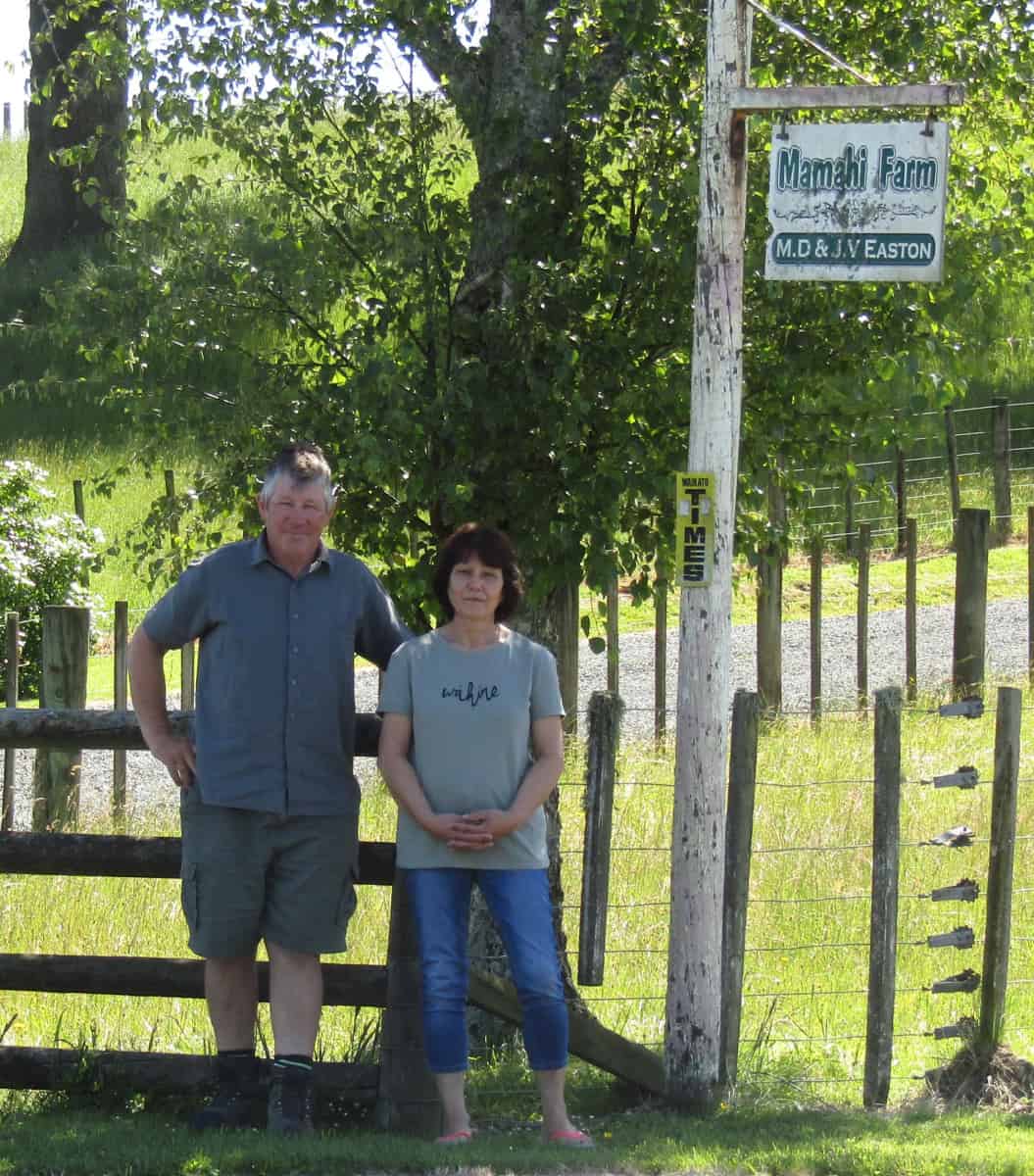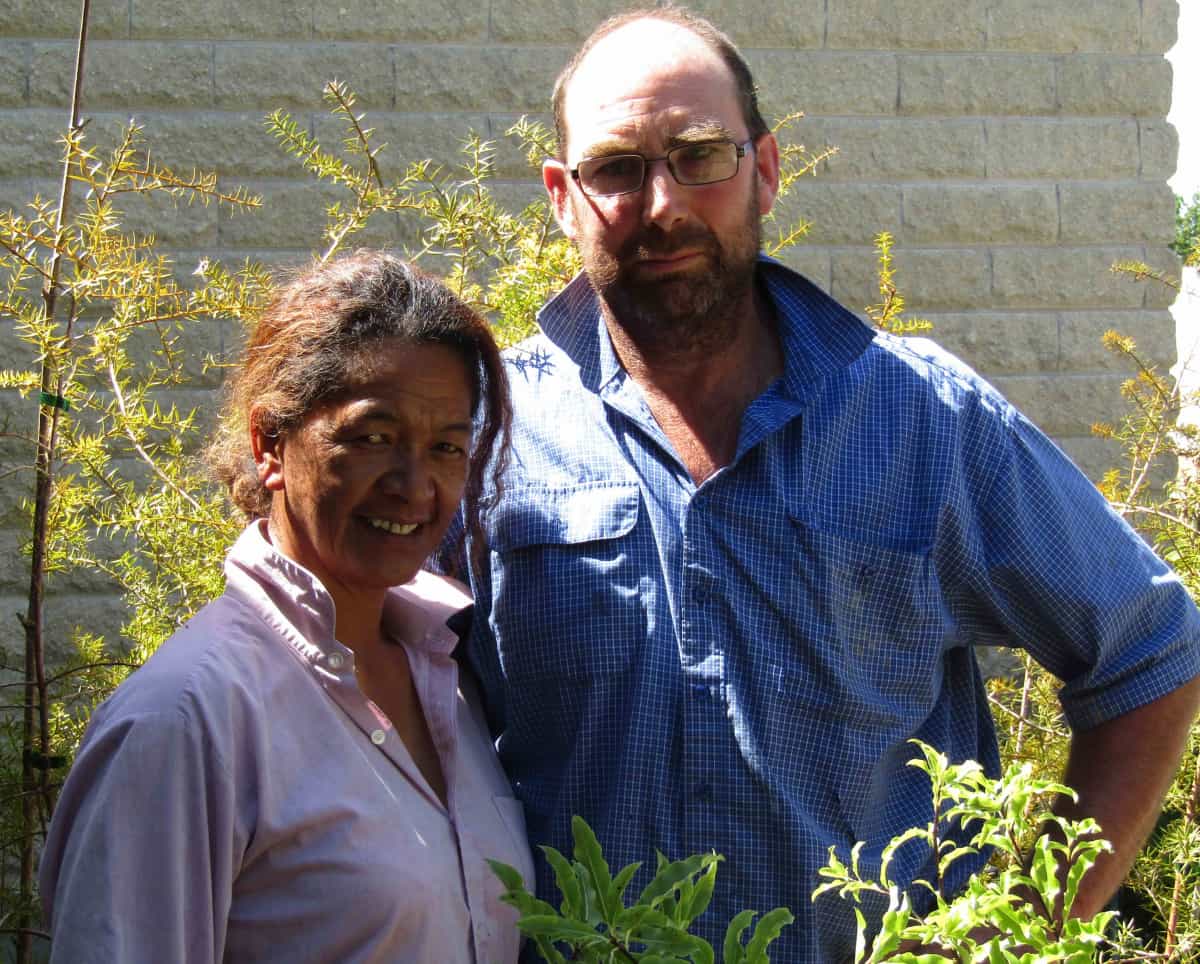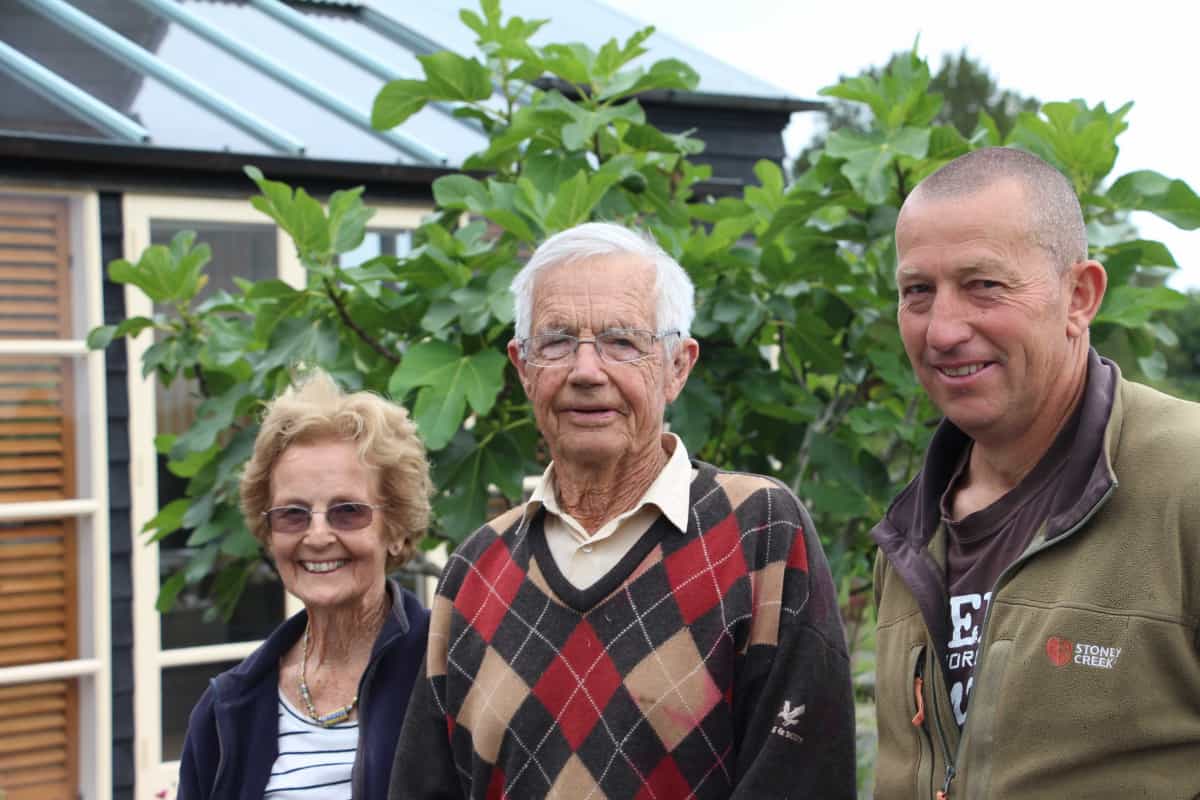The spring lambs have started to drop and Waipukurau sheep and beef farmer Steve Wyn-Harris tells me to take my chances if I want to catch him for a phone interview. I struck it lucky on Sunday morning.
The photo Steve sends me of where he’s sitting in the sun is picture postcard beautiful. Brilliant blue sky, fluffy white clouds, lush green pastures and a view clear across to the snowclad Ruahines. There’s good phone reception at the top the hill, he’s got an eye on a heavily pregnant ewe that is having contractions, “all is well in the world,” he says.
It’s beautiful, but not beautiful enough to make him change his mind about retiring. His farming days, he says, are over…’mostly’. He’s putting away his laptop having written a weekly column for 27 years, shutting down his mic, except for his own Cockies Hour on the Central FM station he owns and an occasional appearance on RNZ with Jessie Mulligan to help explain farming to city folk – saying goodbye to chairs, boards and directorships and handing over the farm, and the life that goes with it, that has consumed his life for the past four decades.
Steve has become a familiar voice, both in print with his Farmer’s Weekly column and his regular appearances on Newstalk ZB and RNZ. His farming advocacy on behalf of the sector has seen him scoop numerous awards, most recently being made an Officer of the New Zealand Order of Merit in the King’s Birthday Honours.
The citation describes him as an advocate for sustainable farming practices who has worked to raise awareness of farmers’ wellbeing in rural Hawke’s Bay.
“It’s all just getting a bit physically harder now,” he says. It’s not only his ‘crook, arthritic hips’, but also that the past few years have not been easy ones.
“Seasonally, in this part of the country we’ve had two drought years in a row followed by the wettest year ever. In my 40 years’ farming, last year was the wettest winter ever; it was a boghole – gumboots, leggings, motorbikes getting stuck, cattle making a mess, you name it – and then just when you think the summer sun is going to dry everything out, we had two cyclones, Hale and Gabrielle.”
He says it’s not only the physical toll that’s taken, but the emotional one as well.
“I’ve had heaps of challenges over the past 40 years, no money, low product returns, the risk of going broke for about 10 or 15 of those years.
“But I was young, it was a challenge, and I had the opportunity. It was either work hard and get better at farming or go broke.”
Going broke wasn’t an option and Steve and his wife, Jane, channeled their passion and energy into their farm. And the rest is history. They got better and better at farming, even if it meant sharing the thrill of the good years with hanging on for dear life during the bad ones.
He says that with a tightening regulatory environment, dropping returns, product prices uncertain, “wool still a disaster, milk fat dropping and the Chinese economy gone off the boil, the next market correction has come and as a sector we will just have to work our way through this as in the tough times of the past.”
It all sounds a bit gloomy, so isn’t he worried, I ask, that he’s handing his son, Jason, and daughter-in-law who have taken over managing the farm as majority shareholders, a really nasty hospital pass.
“That’s their challenge. We’ve had a good few years with a long period of good returns, so I’ve warned him there’s inevitably going to be a drop. But it’s not a bad thing to start off tough.”
“We are producing quality products and just want to carry on feeding 35 million well off people with good quality products. We not going to try and feed everyone.”
He says the young farmers are up for the challenge. They’re even getting more social, keeping followers of Marlow Genetics, the farm’s facebook page up to speed with what’s happening in the paddocks, including an update on the old owner. “Steve has opted for a more of a millennial approach to life,” the post says, “but no one actually knows what this means for The Steve.”
Least of all Steve, who says he’s pleasantly surprised by how cathartic the decision to leave farming has been.
“With nearly half a century of certainty under my belt about what I’ll be doing every day, it’s the first time I’m not quite sure about what lies ahead.”
Among their many awards collected over the years, Steve and Jane’s first was Supreme Award at the inaugural East Coast Ballance Farm Environment Awards in 2011. That experience was the beginning of long relationship with the Ballance Farm Environment Awards, including being appointed chair of the East Coast Region for the awards in 2015.
“The award didn’t change a lot for how we were farming but did reinforce that we were going in the right direction,” says Steve, “because we were already on that path of planting trees and being more environmentally aware.”
Steve had an interest in protecting his farm’s environment before it was even fashionable. He visited Australia with a group in the early 1990s to see how they coped with their droughts and salinity issues and was impressed with their new national Landcare organisation which promoted repairing the natural environment. On their return to New Zealand they encouraged the Hawke’s Bay Regional Council to acknowledge sustainable landuse with regional awards to help promote good practice.
Winning the Regional Supreme Award for the East Coast region vindicated his call for more sustainable farming practices. Over the past 40 years, he and Jane have gone on to plant more than 80,000 trees across the property. He even collects seeds from old cabbage trees and gives them to Marie Taylor of Plant Hawke’s Bay, a regional nursery, to raise seedlings which he buys and replants. It’s ecosourcing that keeps the genetics of the plants in his wetland areas authentic.
A love of the land that runs so deep it’s likely nothing will stop him looking after every little growing thing on the property, even the smallest koru. So even though he faces a future of uncertainty, he describes walking with his new granddaughter, appropriately named Fern, down to the letterbox under a sunny, bright blue Hawkes Bay sky, as the most perfect of days. And he’s quite certain about that.
Enter the Ballance Farm Environment Awards
